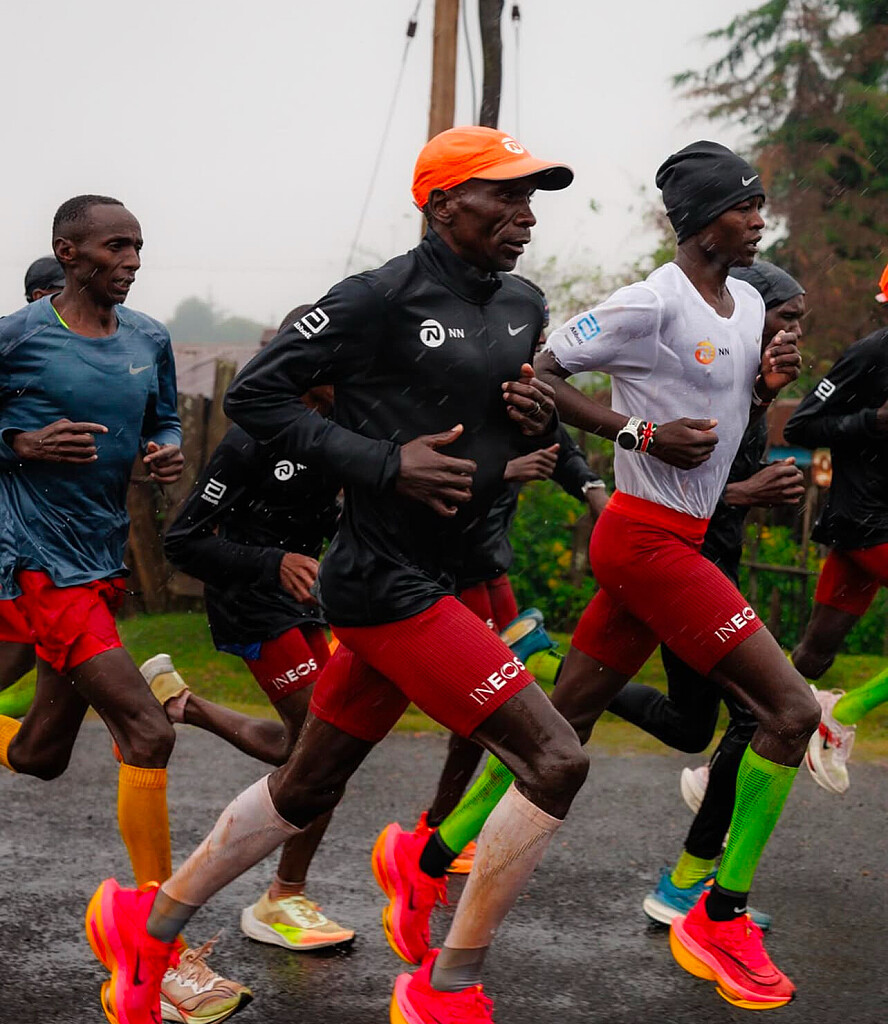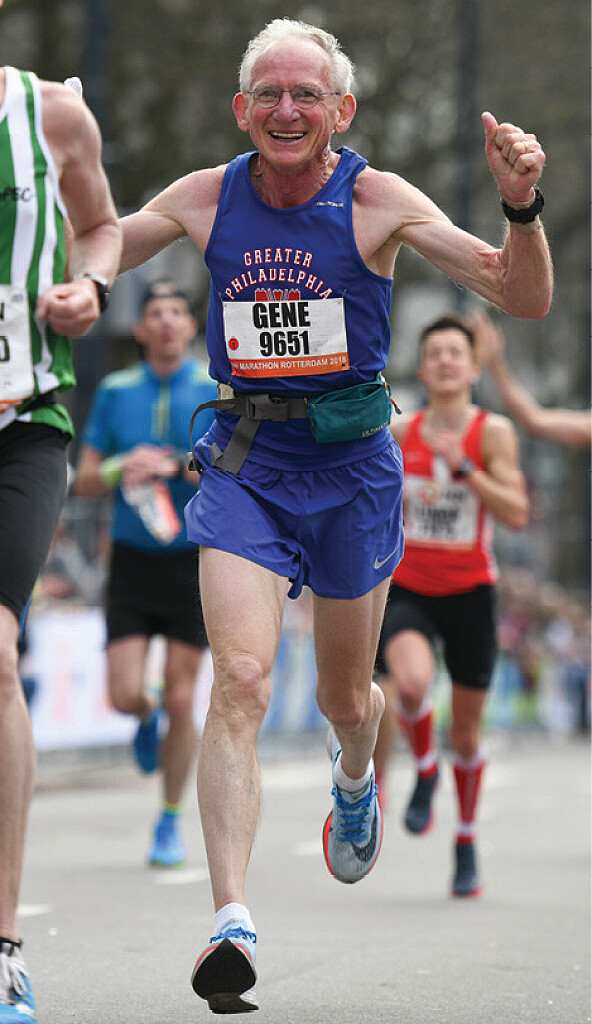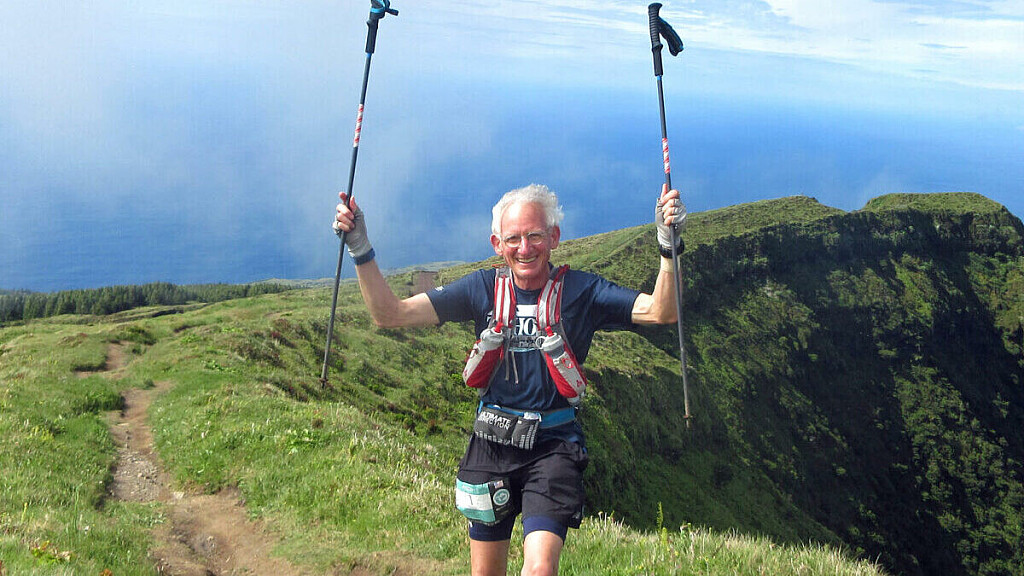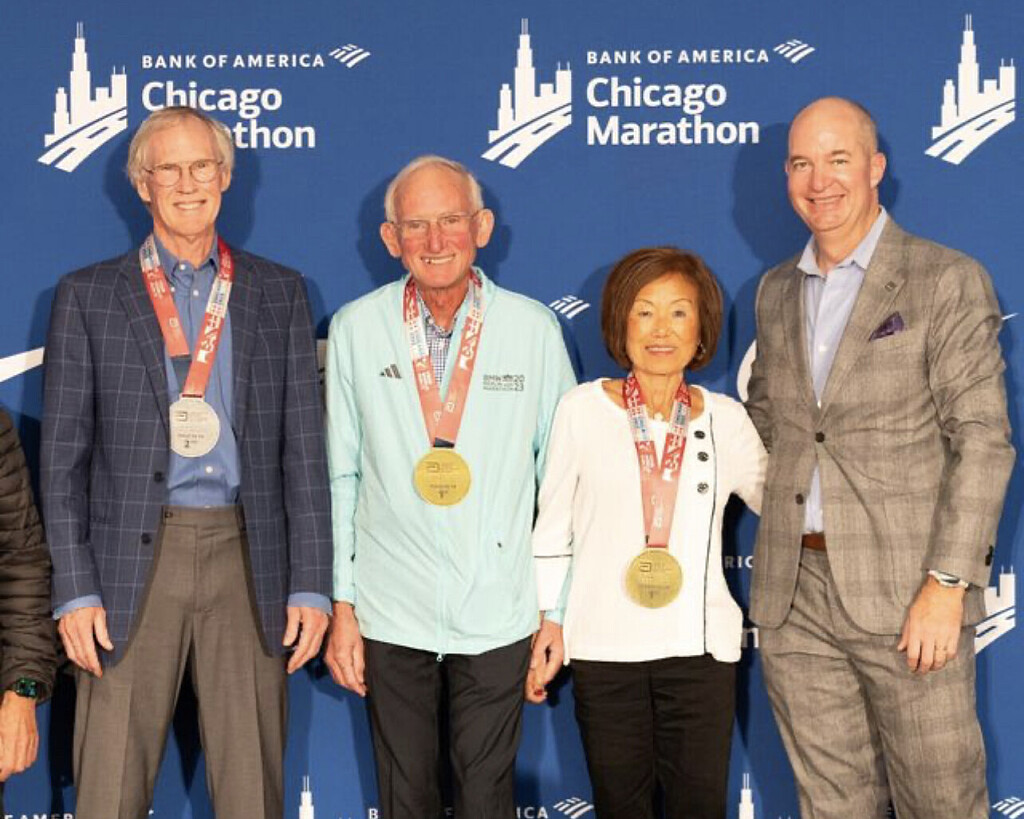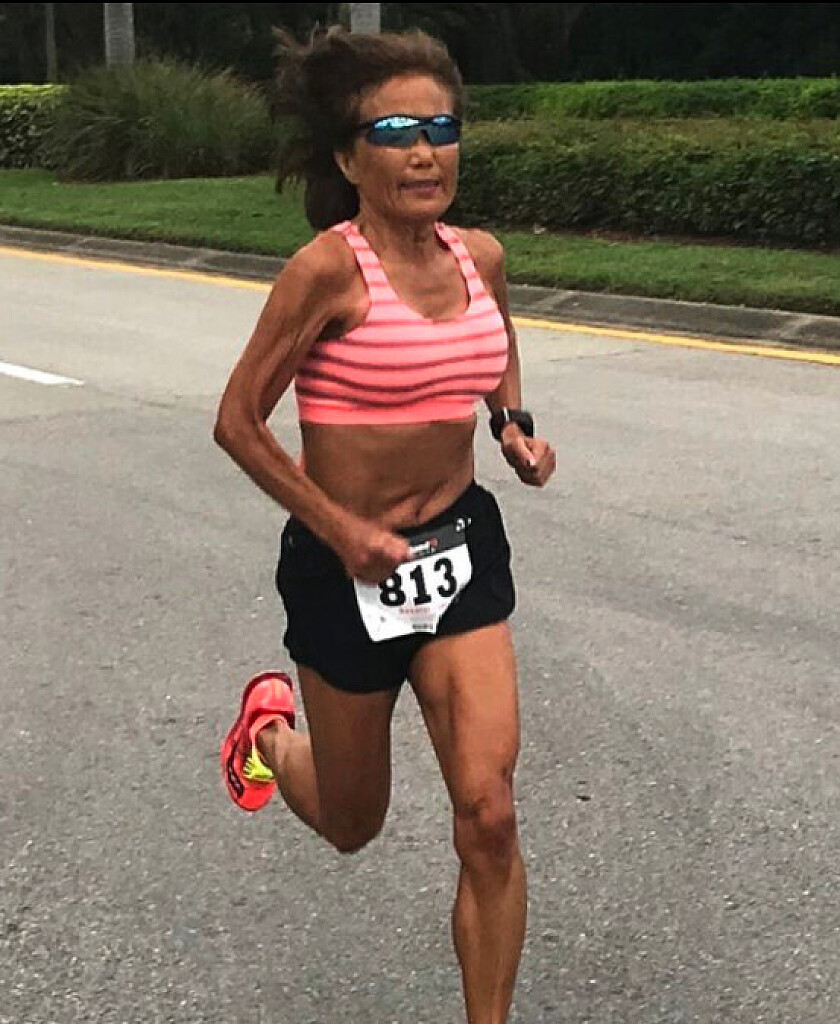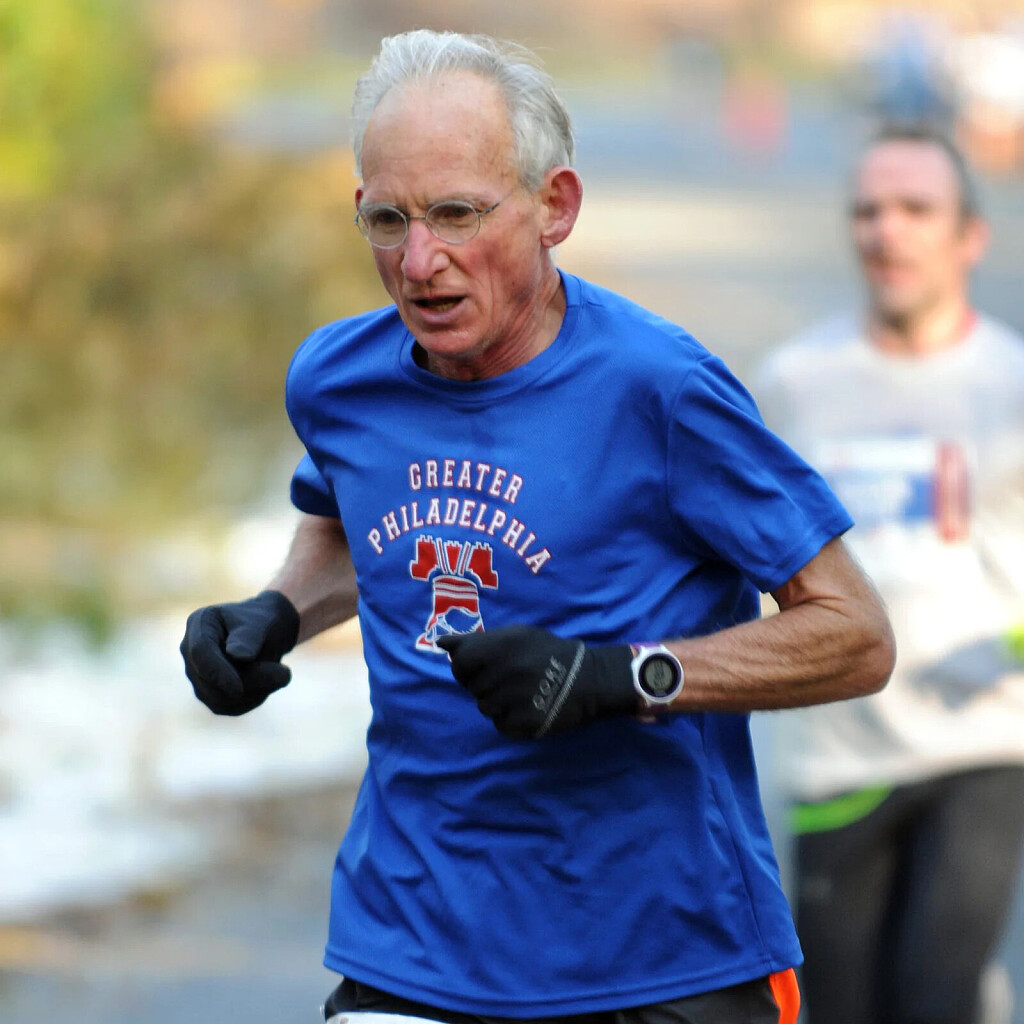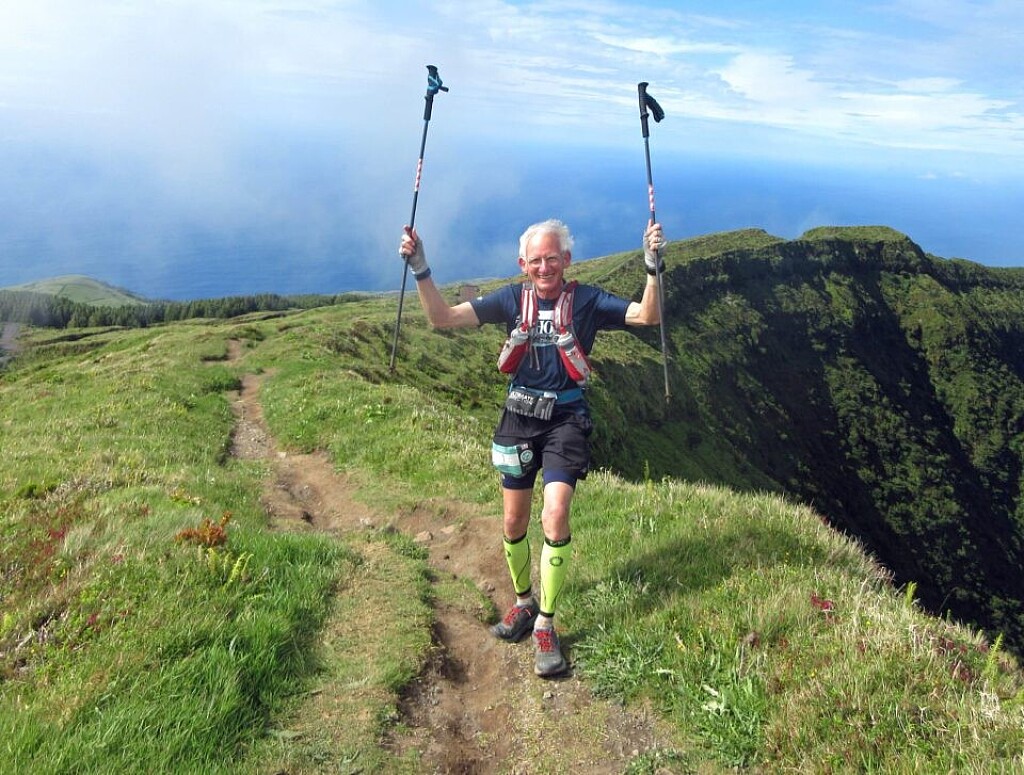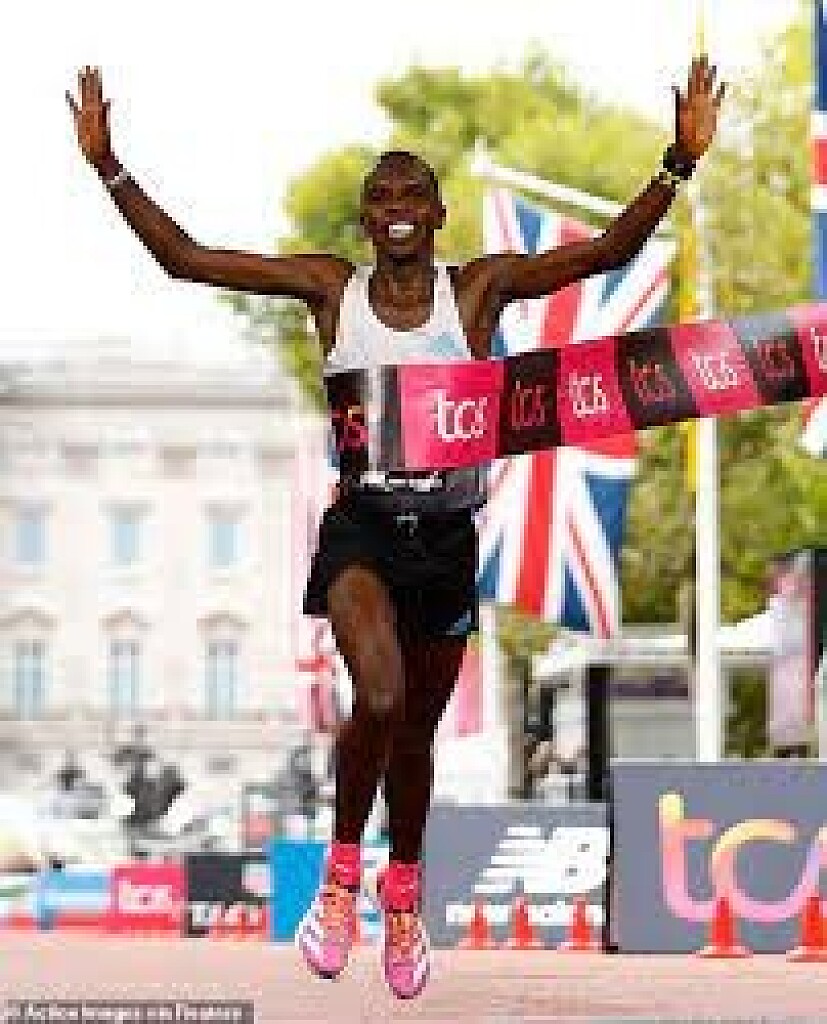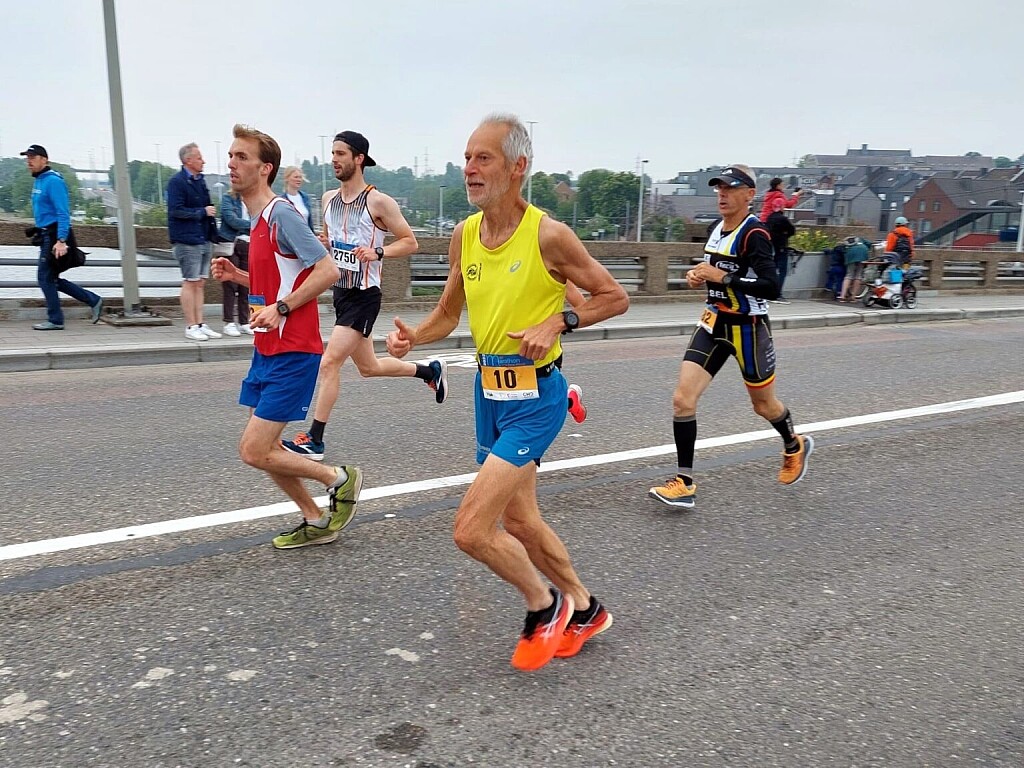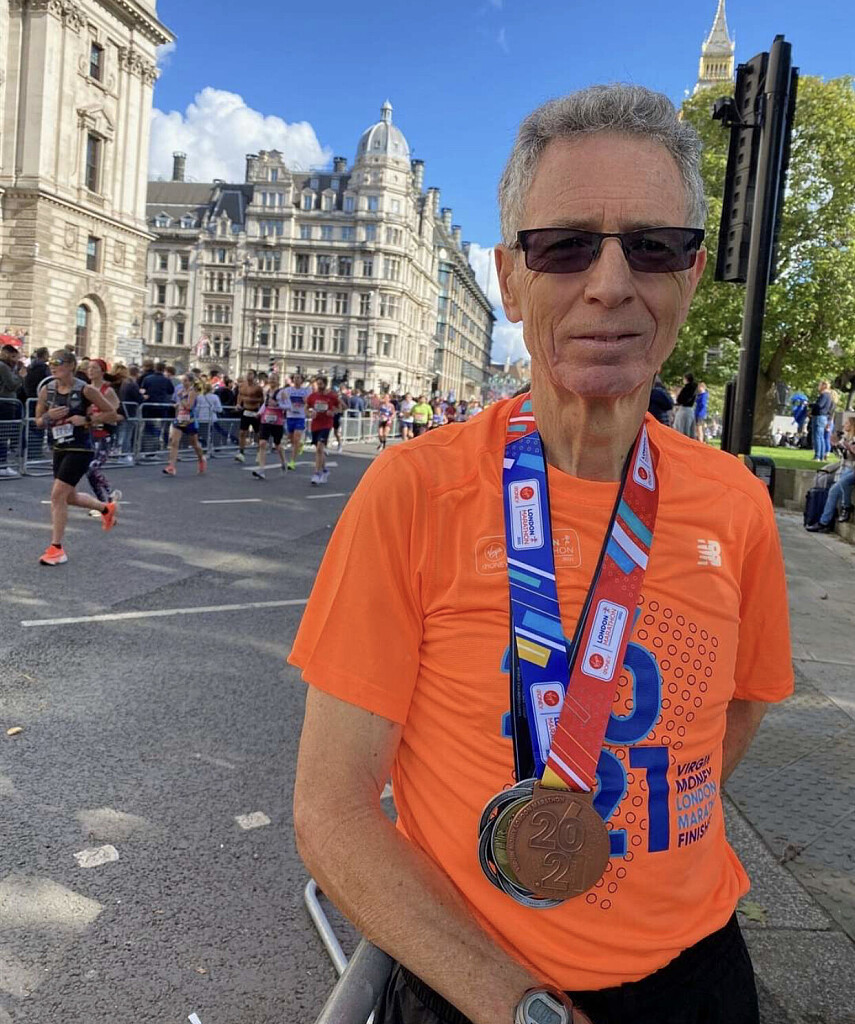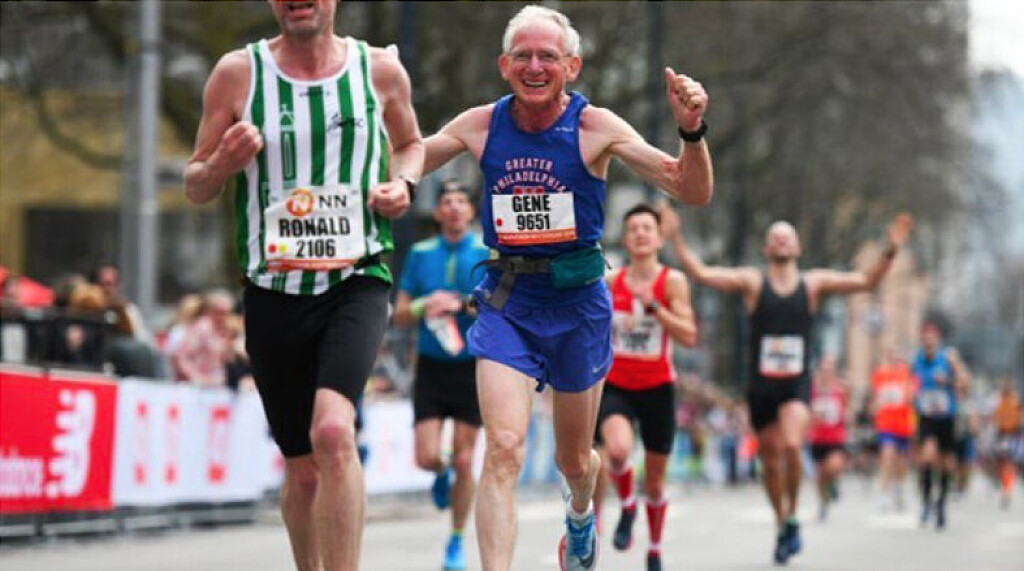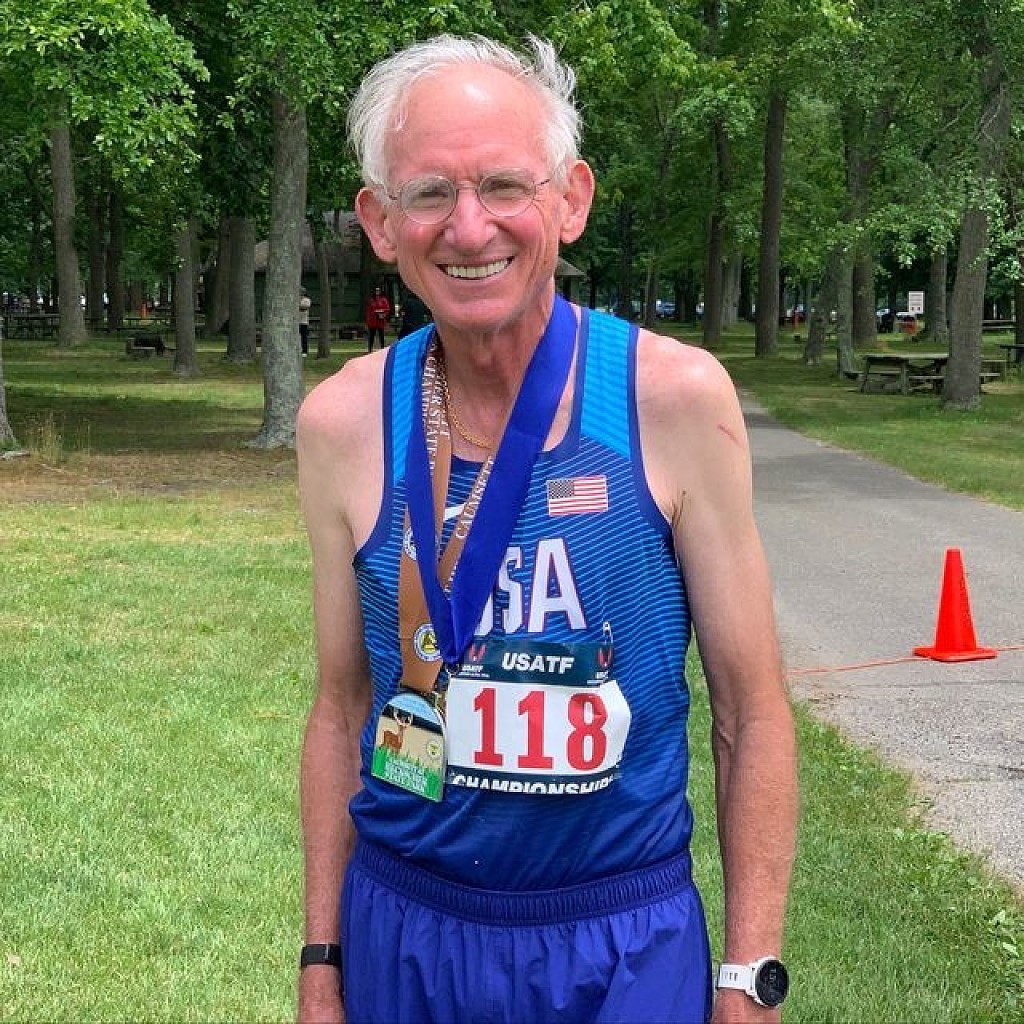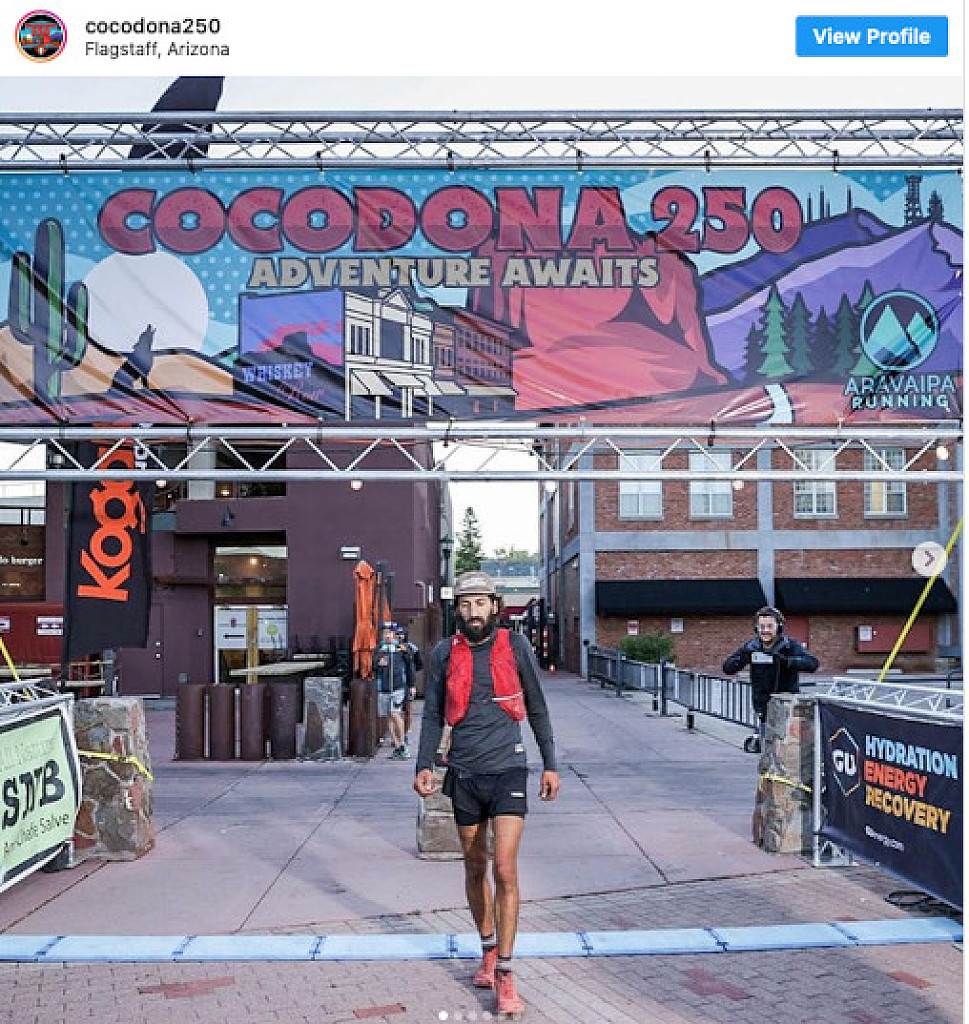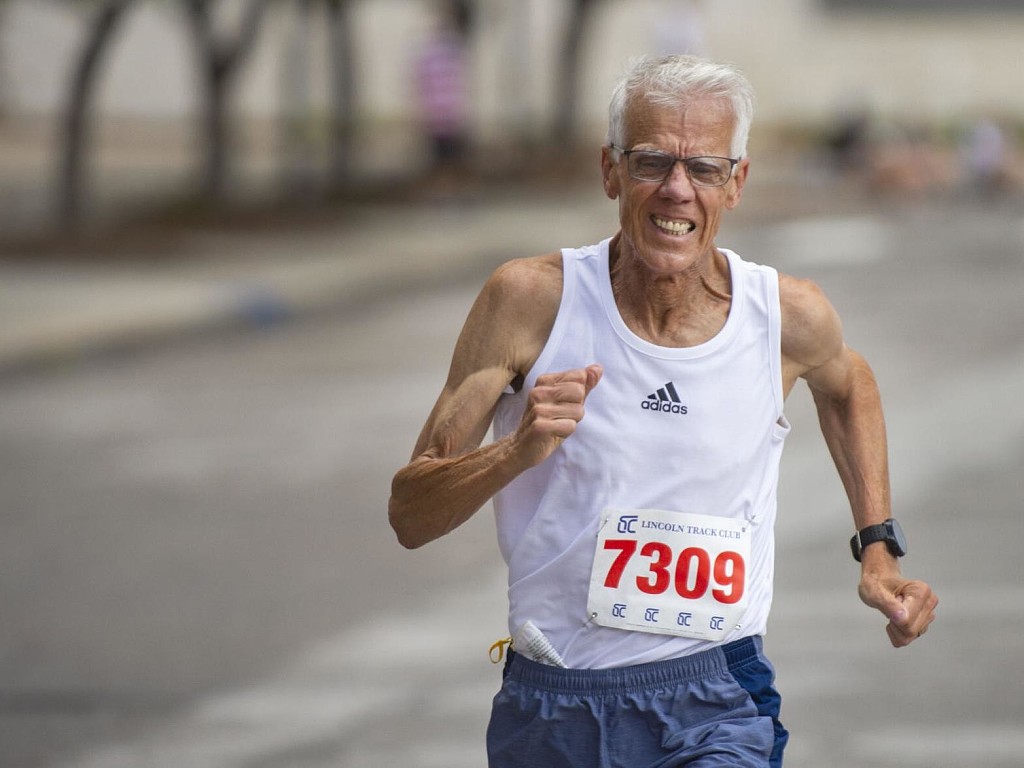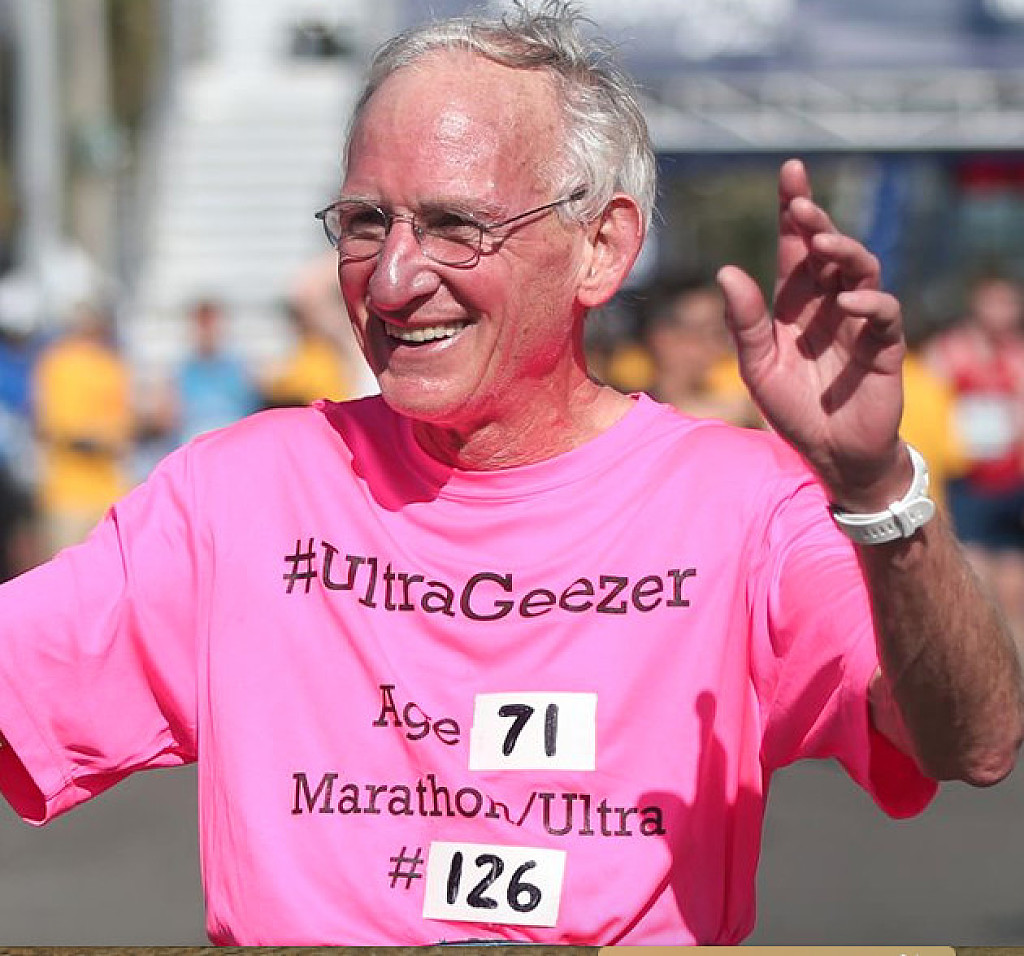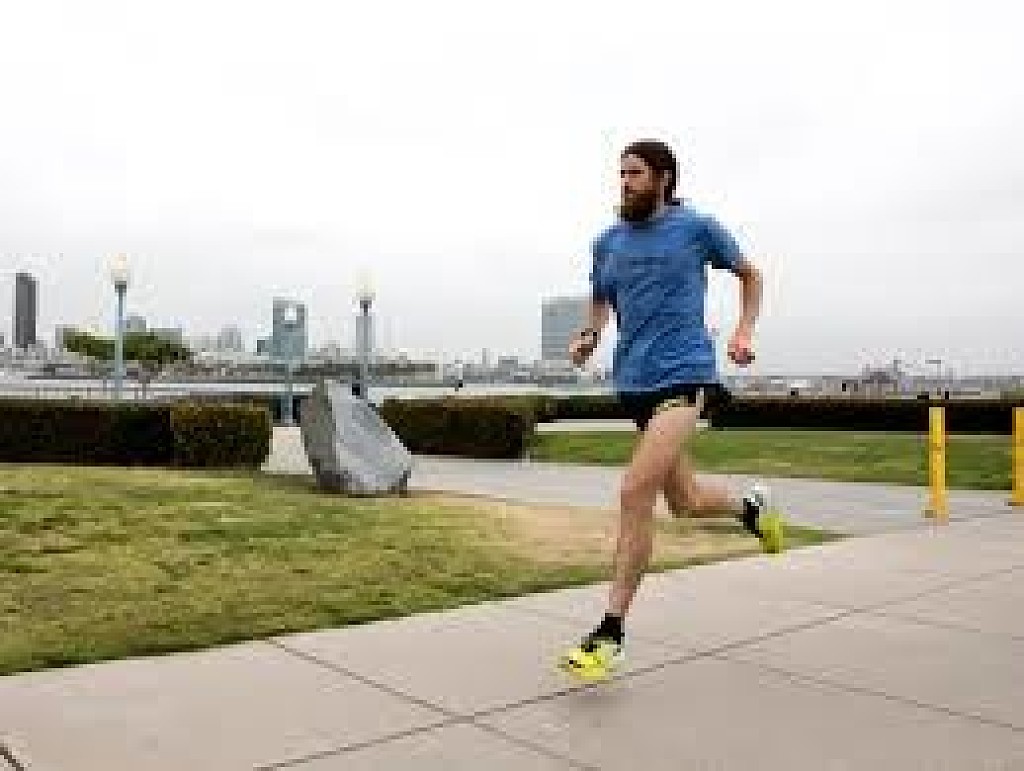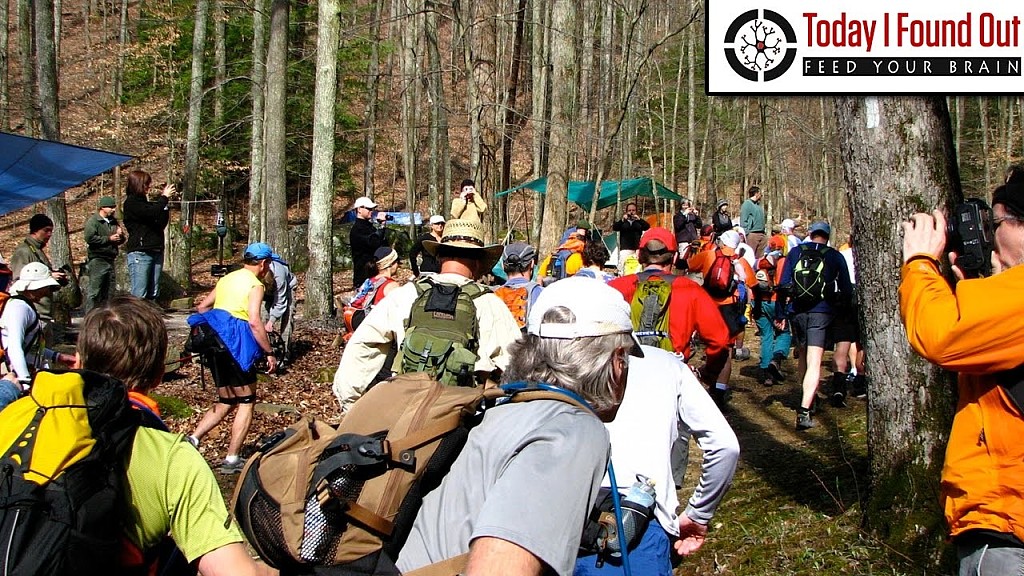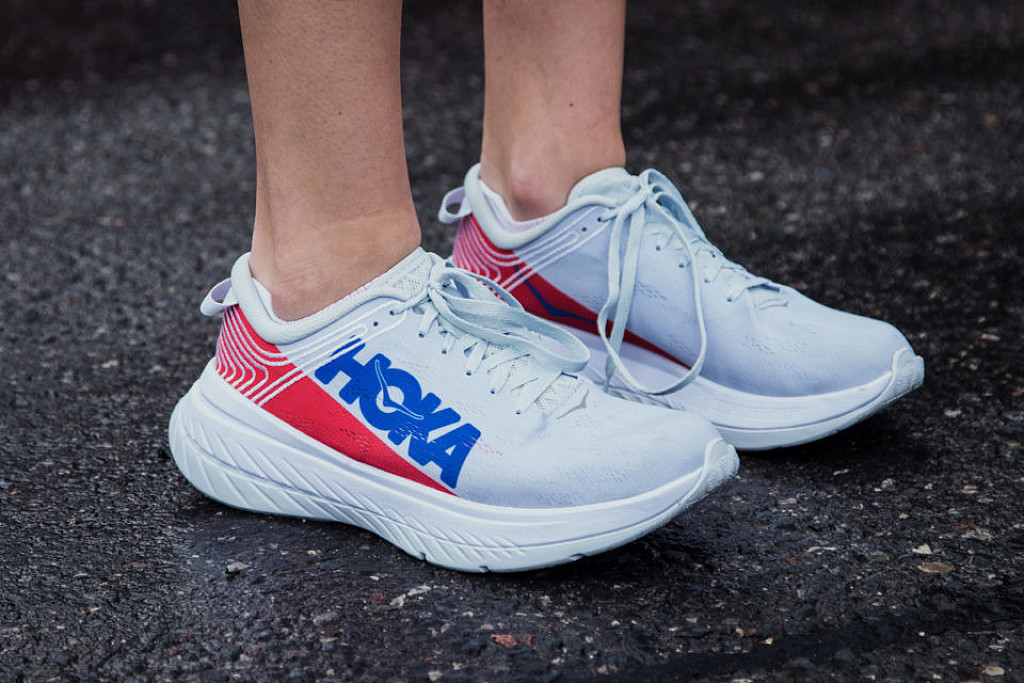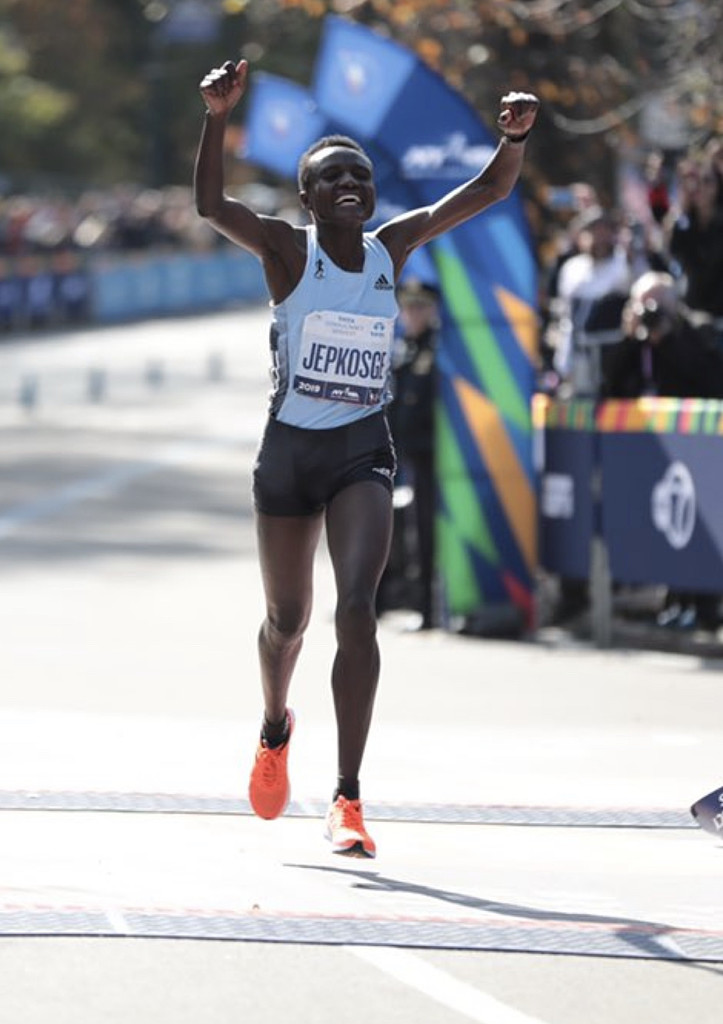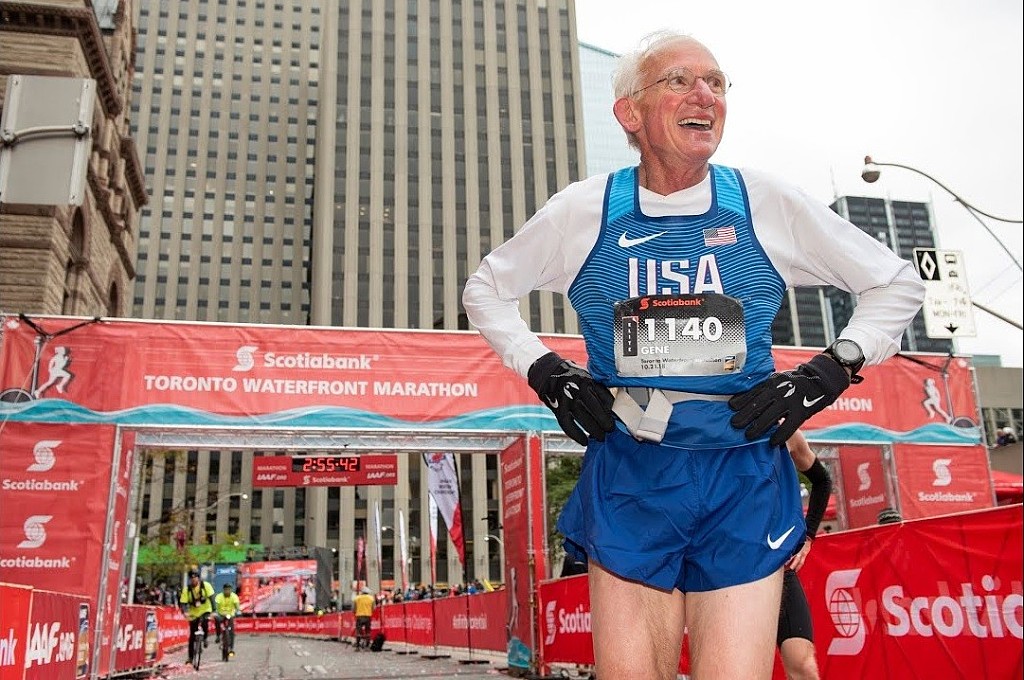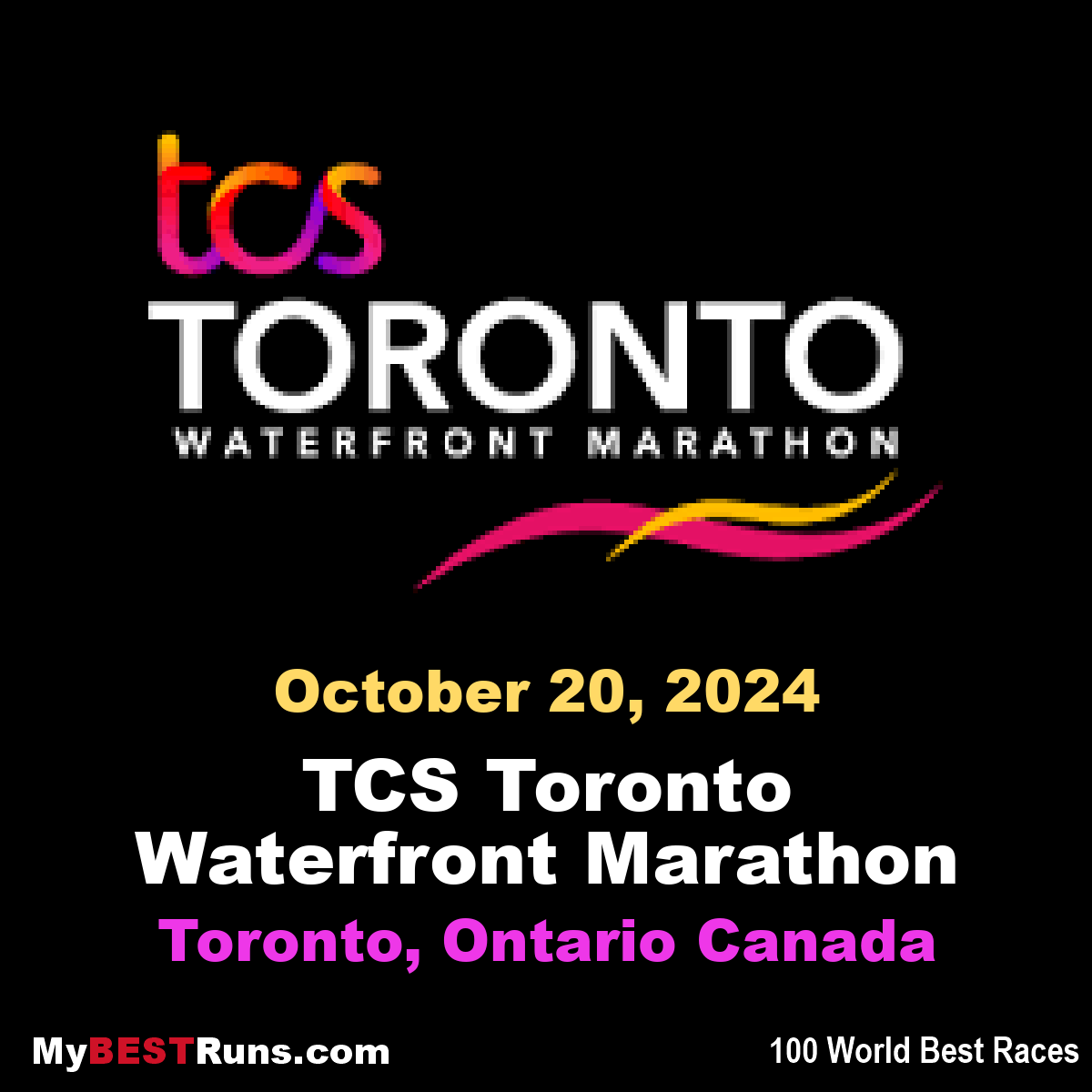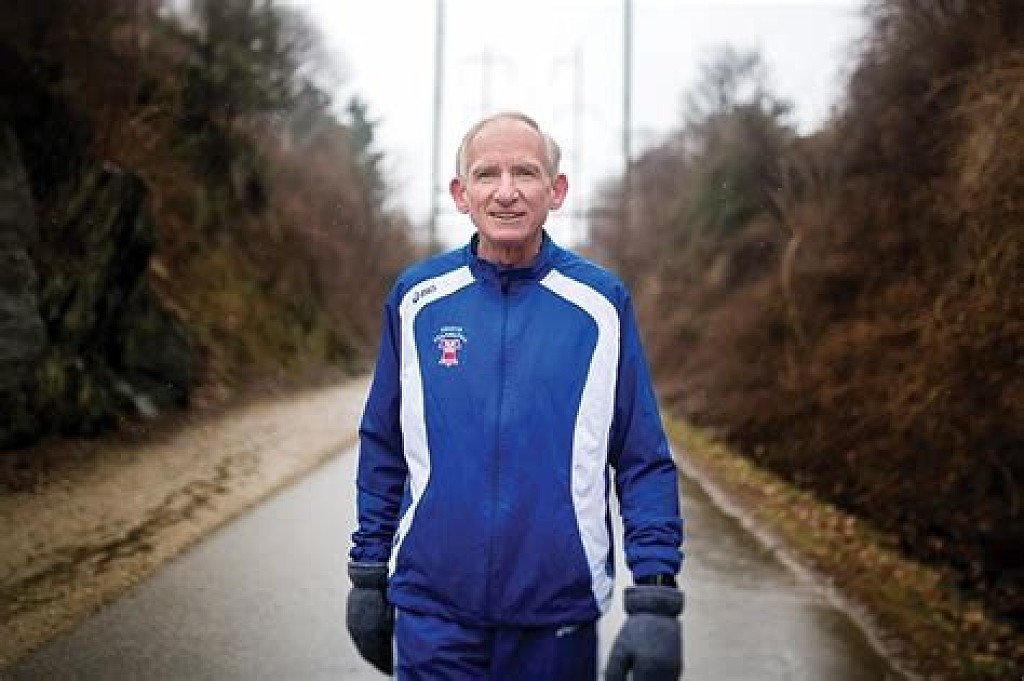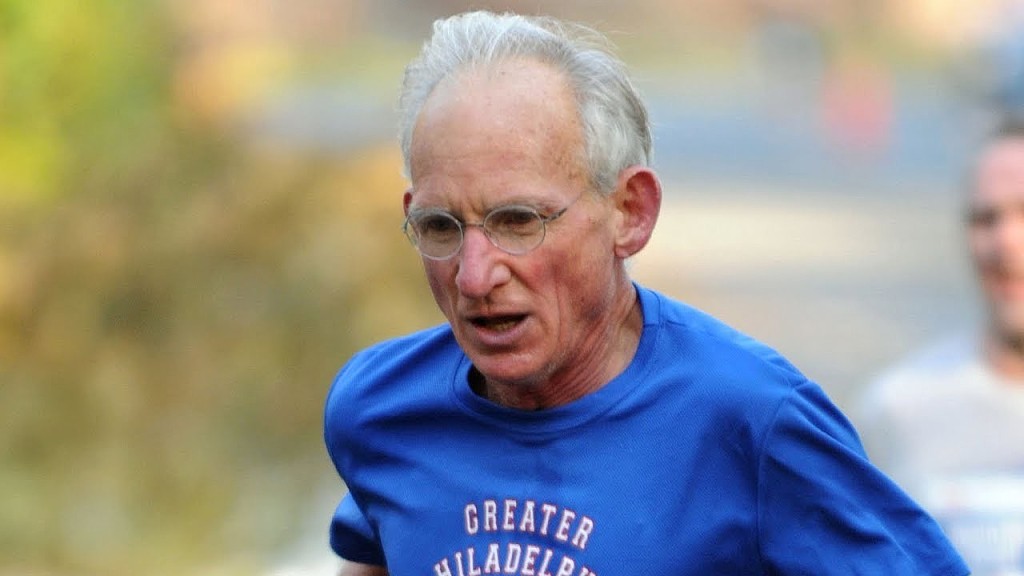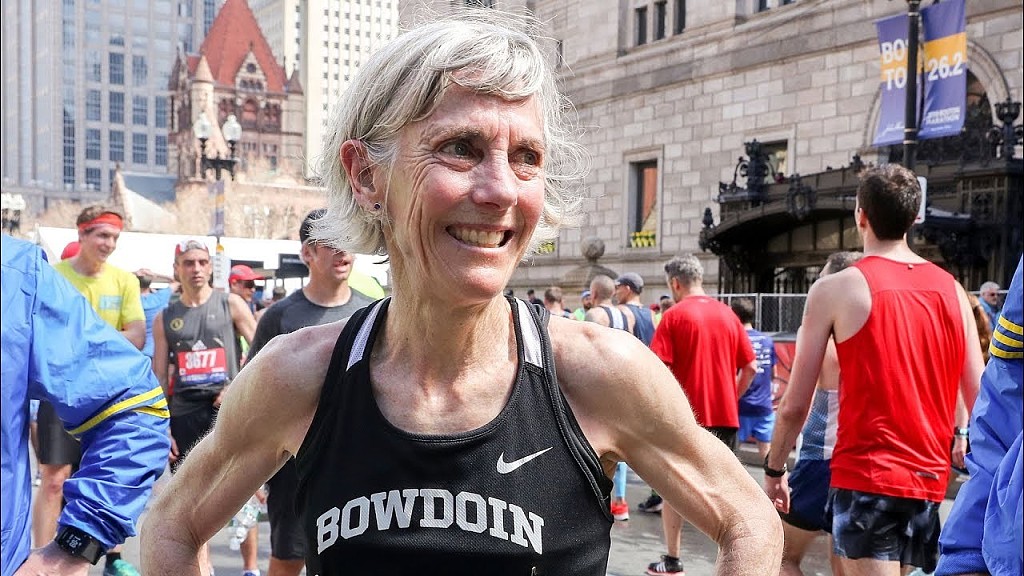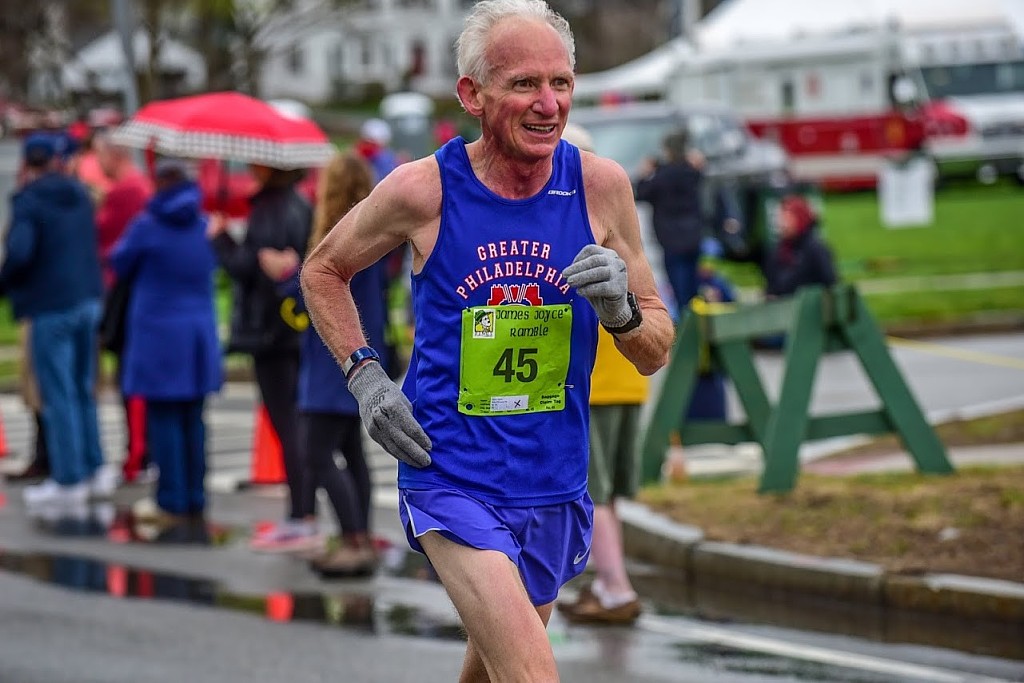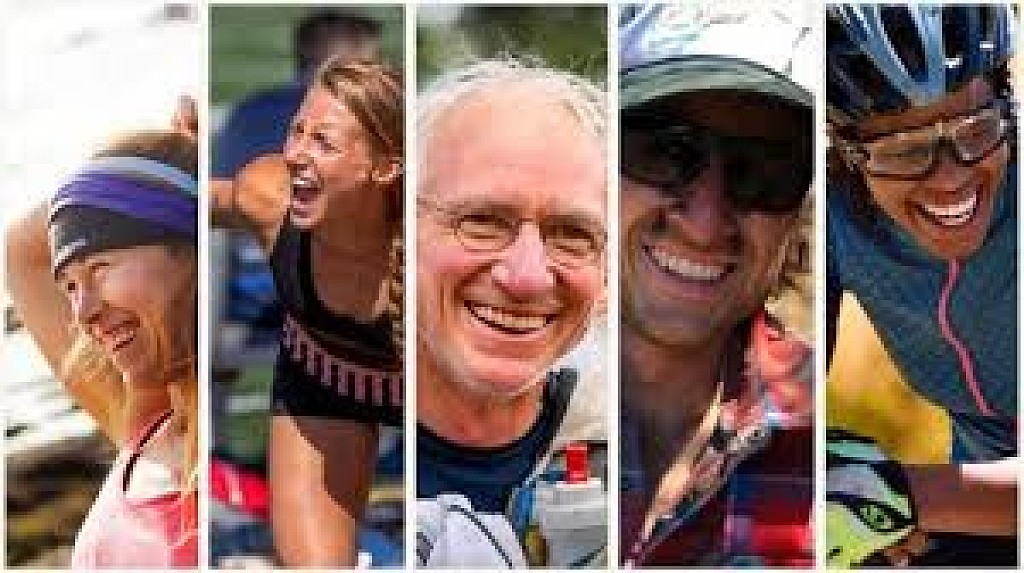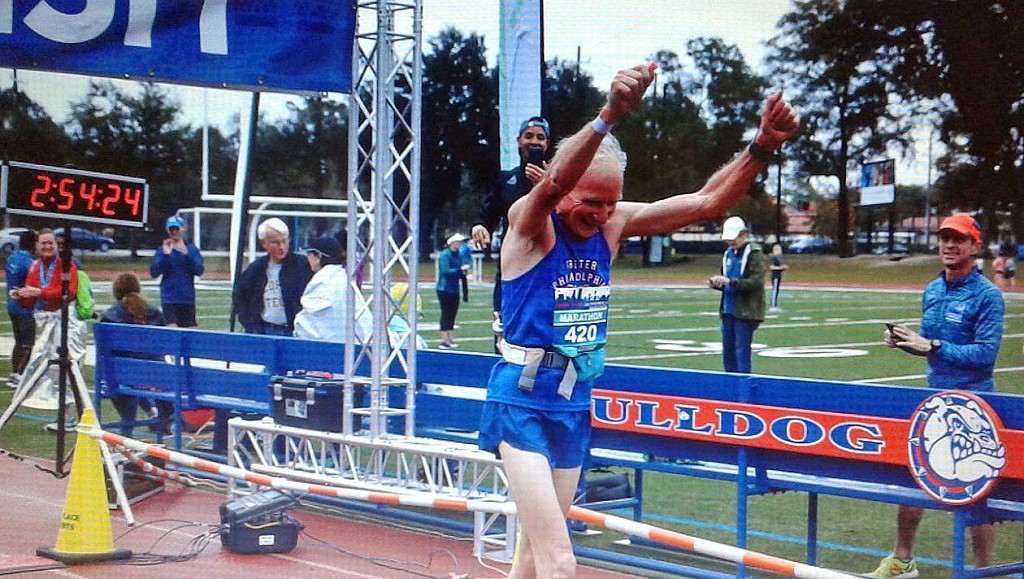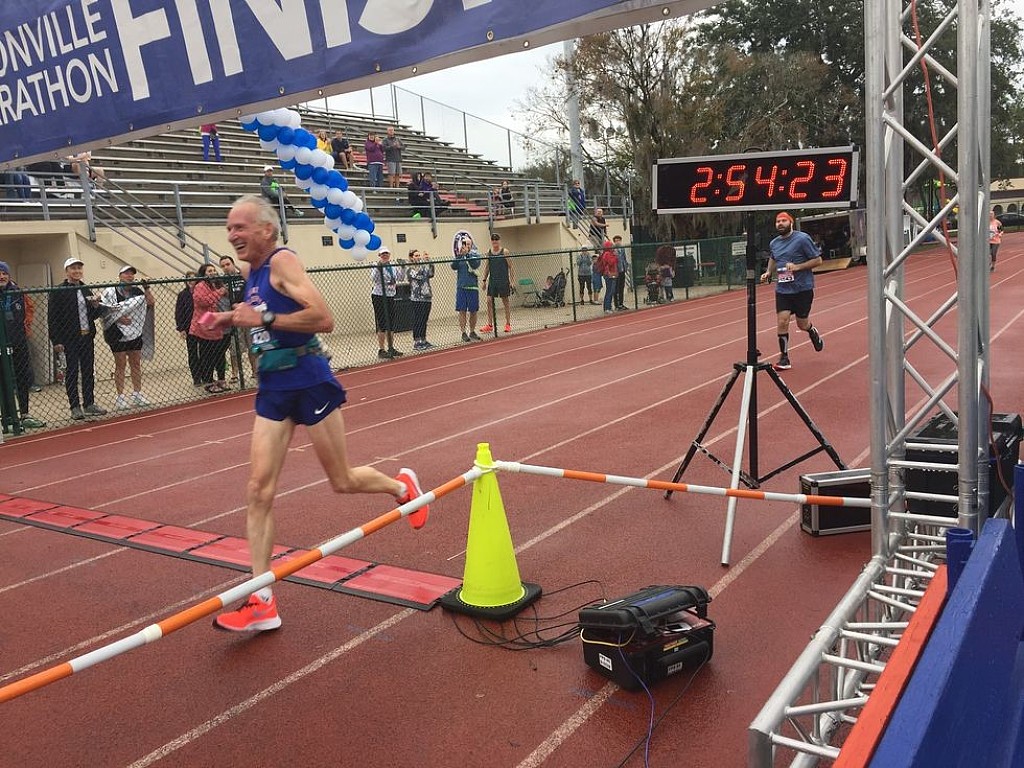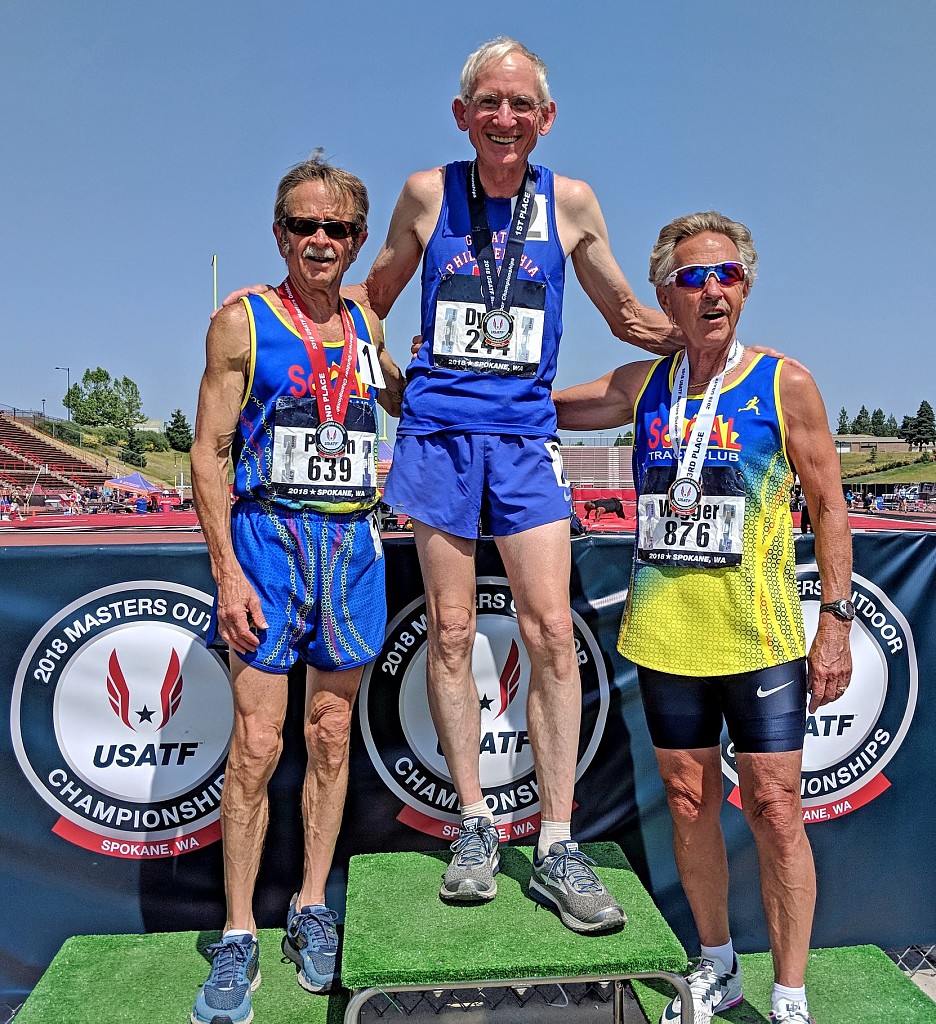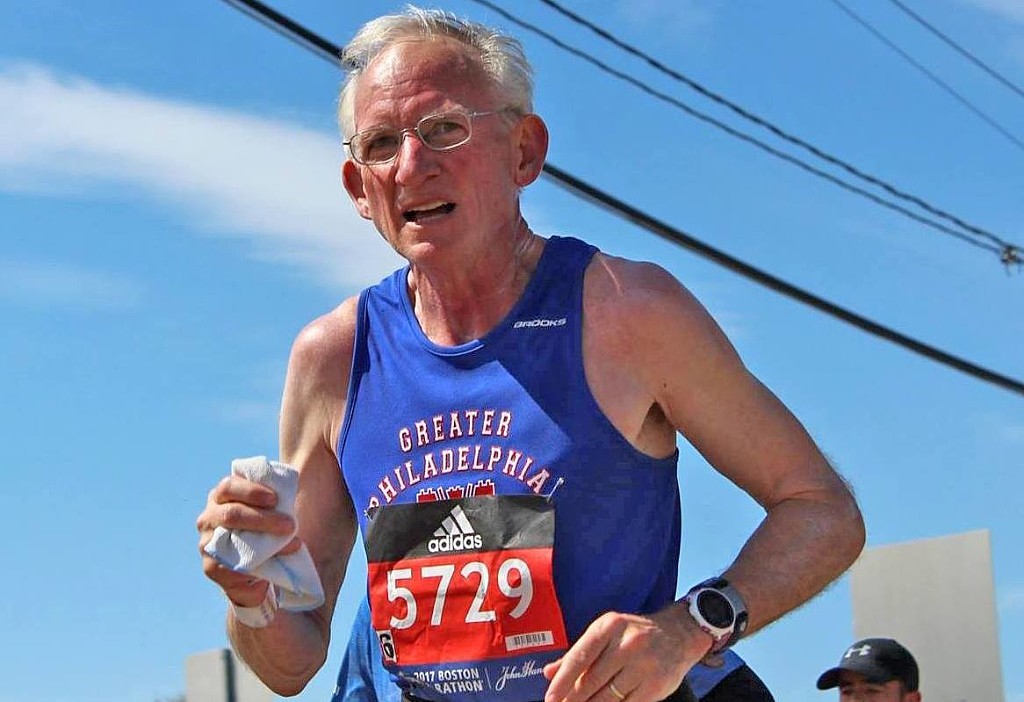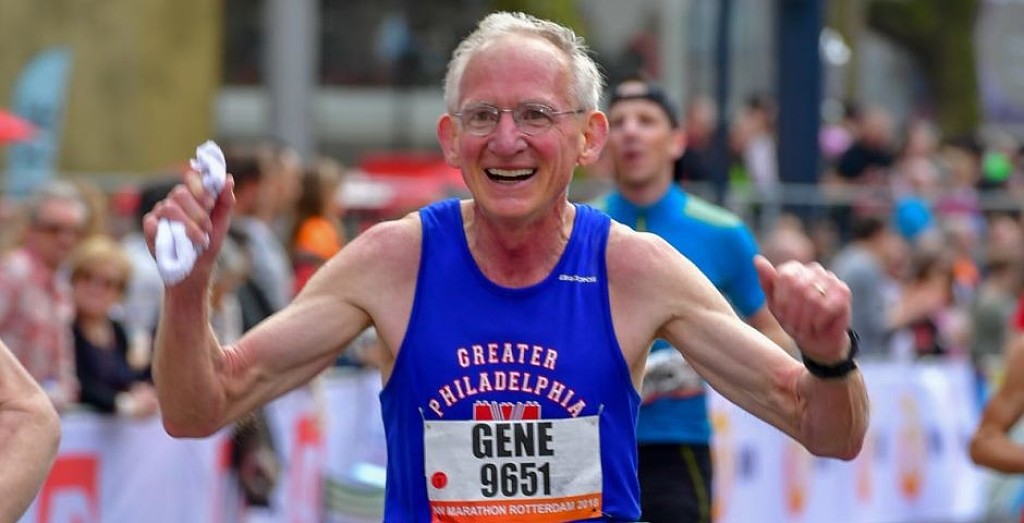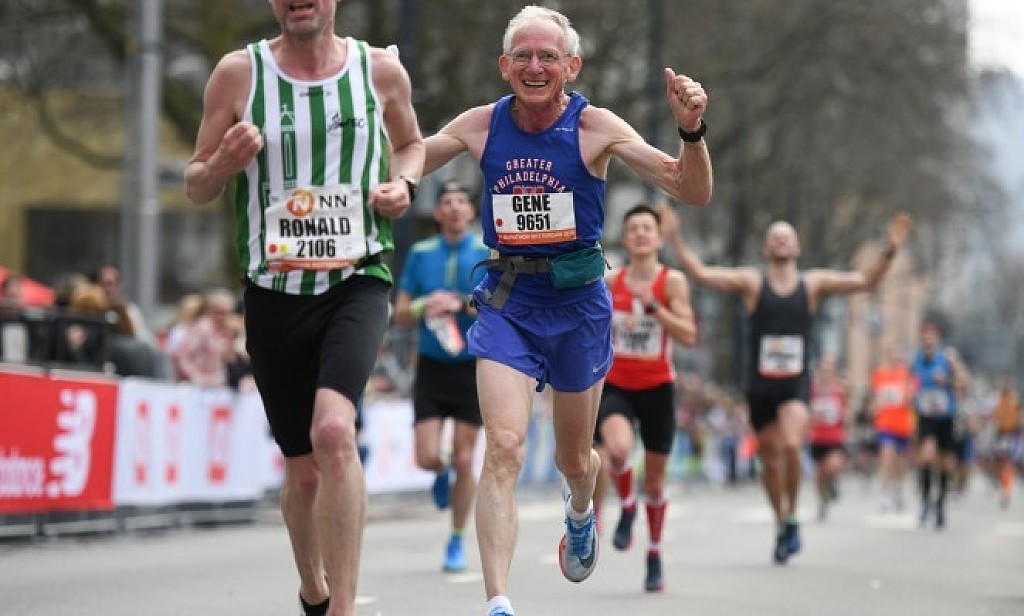Running News Daily
Running News Daily is edited by Bob Anderson. Send your news items to bob@mybestruns.com Advertising opportunities available. Train the Kenyan Way at KATA Kenya and Portugal owned and operated by Bob Anderson. Be sure to catch our movie A Long Run the movie KATA Running Camps and KATA Potato Farms - 31 now open in Kenya! https://kata.ke/
Index to Daily Posts · Sign Up For Updates · Run The World Feed
Articles tagged #Gene Dykes
Today's Running News
Running Outside Your Comfort Zone: How to Push Your Limits and Achieve More
Running outside your comfort zone is about pushing past your usual limits, stepping into a place of discomfort, and embracing the challenge that leads to improvement. It’s the difference between running at a comfortable, familiar pace and pushing yourself to a point where your body and mind are tested.
For an elite athlete, this means running at world-class paces that demand peak physical and mental effort. For an average runner, it means running faster, longer, or with greater intensity than they are used to—whether that’s shaving seconds off a 5K time, running a new distance, or finishing a tough interval workout.
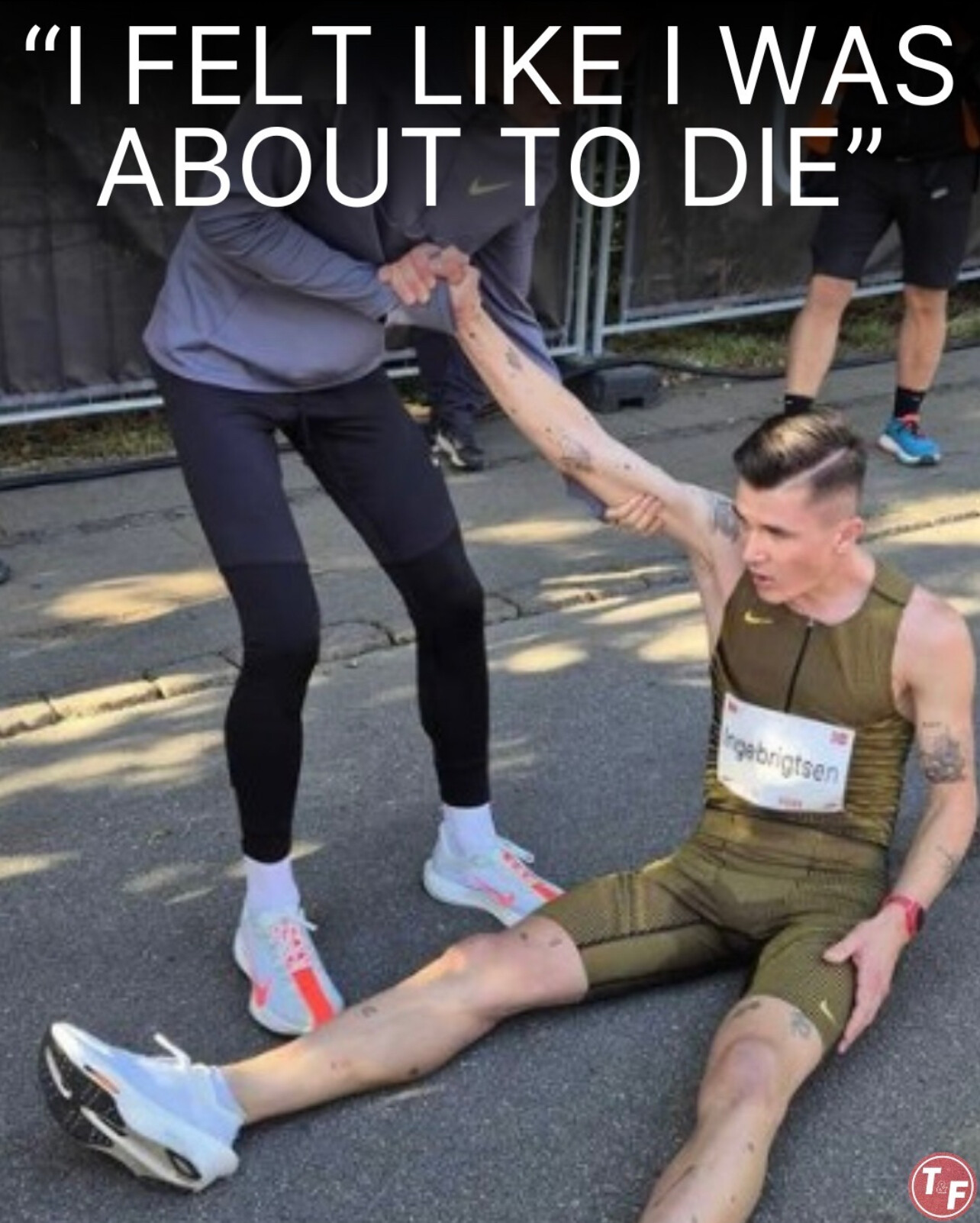
This powerful image captures Jakob Ingebrigtsen at the absolute limits of his endurance, a moment that epitomizes what it means to push beyond the comfort zone in elite racing. Ingebrigtsen, one of the most dominant middle-distance runners in the world, is seen completely spent, collapsed on the ground, relying on assistance just to get up. His quote, "I felt like I was about to die," is not just dramatic-it's a reflection of what it takes to compete at the highest level, where the margins between victory and defeat are razor-thin.
For elite athletes like Ingebrigtsen, racing is about embracing suffering rather than avoiding it. He has trained his body and mind to withstand extreme discomfort, knowing that to achieve greatness, he must run through the pain, not away from it. This image serves as a powerful reminder that whether you're an Olympic champion or an everyday runner chasing a personal best, the only way to truly improve is to push beyond what feels comfortable and into that space where breakthroughs happen.
The key to improving as a runner is learning how to handle discomfort without giving in to it. The body adapts when it’s challenged, but only if you consistently step beyond your comfort zone.
How the Average Runner Can Learn to Push Their Limits
Many runners stay at the same pace for years because they never challenge themselves beyond their current ability. Here’s how an average runner can start running outside their comfort zone.
Run at a Pace That Feels Uncomfortable
Most runners settle into a pace that feels sustainable and manageable. To break through plateaus, introduce faster running into your routine.
Progression runs: Start slow and gradually increase your pace so that the final third of the run is at a challenging but controlled effort.
Threshold runs: Run 10-15 minutes at a comfortably hard pace, where you’re breathing heavily but still in control.
Strides and surges: Add 20–30 second accelerations at the end of easy runs to build speed without fatigue.
Train with Purposeful Discomfort
Pushing beyond your limits doesn’t mean running recklessly—it means training your body to handle discomfort efficiently.
Intervals: Short, fast efforts (e.g., 6 x 400m at 5K pace) followed by short rest periods train your body to sustain effort even when tired.
Hill repeats: Running uphill improves strength and stamina, forcing you to push through discomfort.
Long runs with fast finishes: Ending long runs at a faster pace teaches your body to keep going when tired.
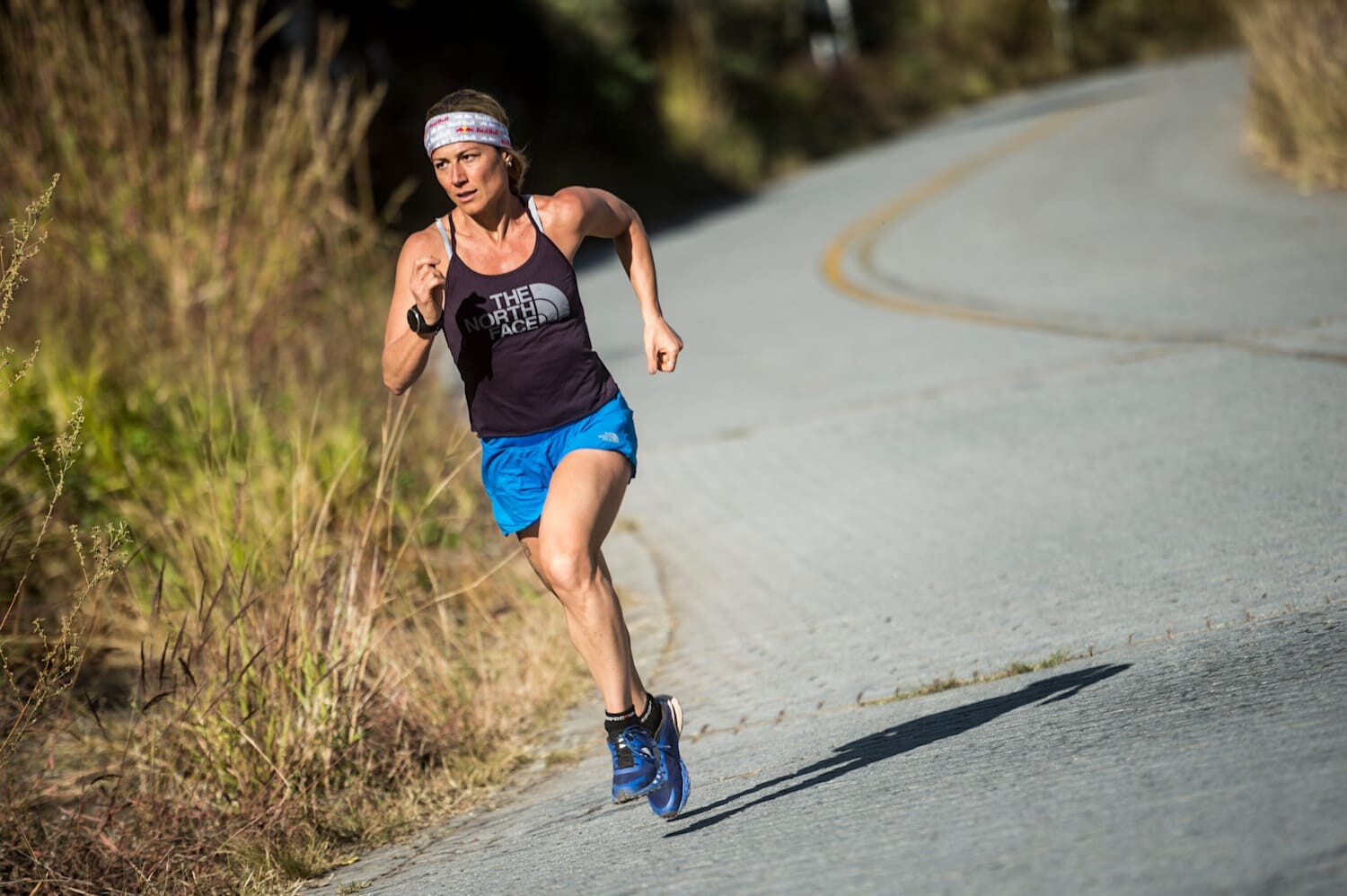
Improve Mental Toughness
Running outside your comfort zone isn’t just physical—it’s mental. When your legs get tired and your breathing gets heavy, your mind will tell you to slow down. Learning to override that voice is crucial.
Mantras: Repeating phrases like “strong and steady” or “I can do this” can help override negative thoughts.
Controlled discomfort: Remind yourself that pain in running isn’t the same as injury—it’s a sign of growth.
Visualization: Picture yourself finishing strong before your run starts. Your body follows what your mind believes.
Race More Often
The best way to step out of your comfort zone is to race regularly. In a race setting, you’re more likely to push yourself harder than you would in training. Even if you’re not at peak fitness, toeing the start line forces you to test your limits.
How Elite Athletes Push Their Limits at World-Class Pacing
When watching professional runners race, it’s easy to think they make it look effortless. The truth is, they are almost always on the edge of discomfort, running at a pace that would break most runners within minutes.
World-Class Pacing and the Pain Zone
Elite runners train to be comfortable with discomfort. Whether it’s a marathoner running under five-minute miles for 26.2 miles or a sprinter giving 100% effort for just 10 seconds, they are conditioned to hold their effort at a threshold most people can’t sustain.
Marathoners like Eliud Kipchoge spend years training their bodies to maintain high speeds without breaking down. His sub-2-hour marathon (averaging 4:34 per mile) was only possible because of relentless training outside his comfort zone.
Middle-distance runners like Jakob Ingebrigtsen in the 1500m race push through extreme fatigue in the final lap, training their bodies to hold off the competition while running at speeds most runners can’t even sprint.
Mental Fortitude at the Elite Level
At the world-class level, running outside the comfort zone is as much mental as it is physical. Elite runners:
Train to tolerate pain – They expect discomfort and use it as a signal to push harder, not slow down.
Use tactical thinking – Instead of panicking when they feel tired, they focus on form, breathing, and staying in the race mentally.
Embrace suffering – They view discomfort as part of the journey, knowing that real improvement only happens when they challenge their limits.
Gene Dykes and Rosa Mota: Masters of Pushing the Limits
Some of the best examples of runners stepping outside their comfort zones come from masters athletes.
At age 70, Gene Dykes ran a marathon in 2:54:23 at the Jacksonville Marathon. His ability to continue running world-class times at an age when most runners have slowed dramatically is a testament to smart training, mental fortitude, and a willingness to embrace discomfort.
Rosa Mota, the 1988 Olympic marathon champion, continues to redefine what’s possible for older runners. In December 2024, at age 66, she ran a 10K in 38:23 at the San Silvestre Vallecana, setting a new world record for the W65 category. Even decades after her Olympic victory, she remains a fierce competitor, proving that world-class pacing and a commitment to pushing limits don’t have an expiration date.
Why Running Outside Your Comfort Zone Matters
If you want to improve as a runner—whether you're chasing a faster 5K, your first marathon, or simply becoming stronger—you have to train beyond what feels easy.
Running outside your comfort zone doesn’t mean reckless overtraining, but it does mean challenging your limits in a controlled, smart way. Whether it’s picking up the pace, racing more often, or simply not backing down when things get tough, stepping beyond what feels comfortable is where real growth happens.
Elite athletes live in this zone during competition. The average runner can train to experience it too—and that’s how true breakthroughs happen.
by Boris Baron
Login to leave a comment
The Science of Longevity in Running: How Some Runners Stay Fast for Decades
Running is often thought of as a young person’s sport, but time and time again, we see athletes defying age, continuing to run and even race well into their 60s, 70s, and beyond. Some runners, like My Best Runs founder Bob Anderson, who started running in February 1962 and is still going strong today, prove that longevity in the sport isn’t just possible—it’s achievable with the right approach.
What allows some runners to maintain speed and endurance over the decades while others slow down? The answer lies in science, training adaptations, mindset, and lifestyle choices. This article explores how runners can stay competitive for life—and perhaps even improve with age.
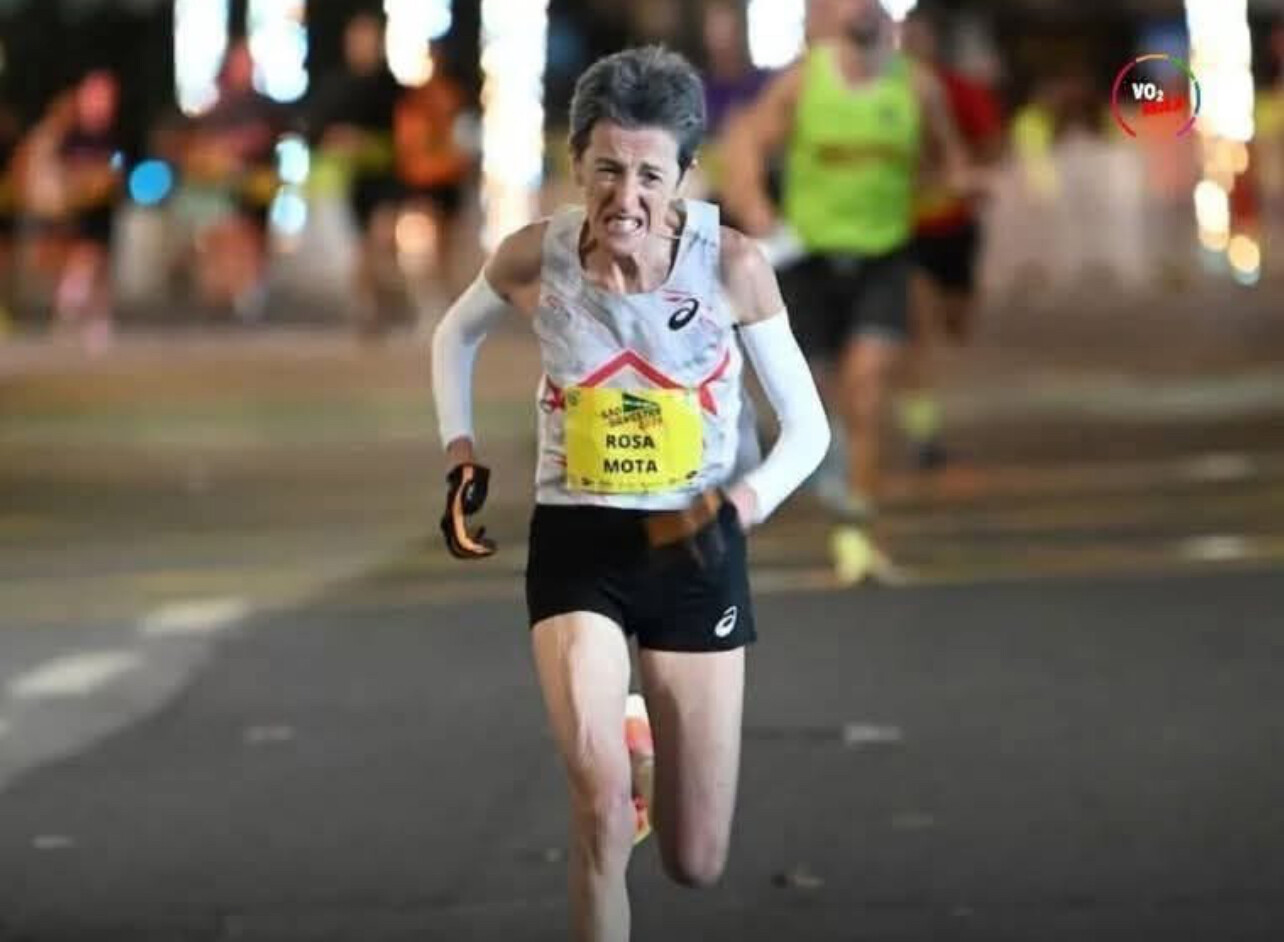
The Science of Aging and Running Performance
Physiologically, runners experience certain changes as they age:
• VO2 max naturally declines at a rate of about 10% per decade after 40. However, regular training can slow this decline significantly.
• Muscle fibers shrink, and fast-twitch fibers deteriorate faster than slow-twitch fibers, impacting speed and power. Strength training and sprint workouts can help counteract this.
• Tendons lose elasticity, and cartilage wear increases, making injury prevention crucial.
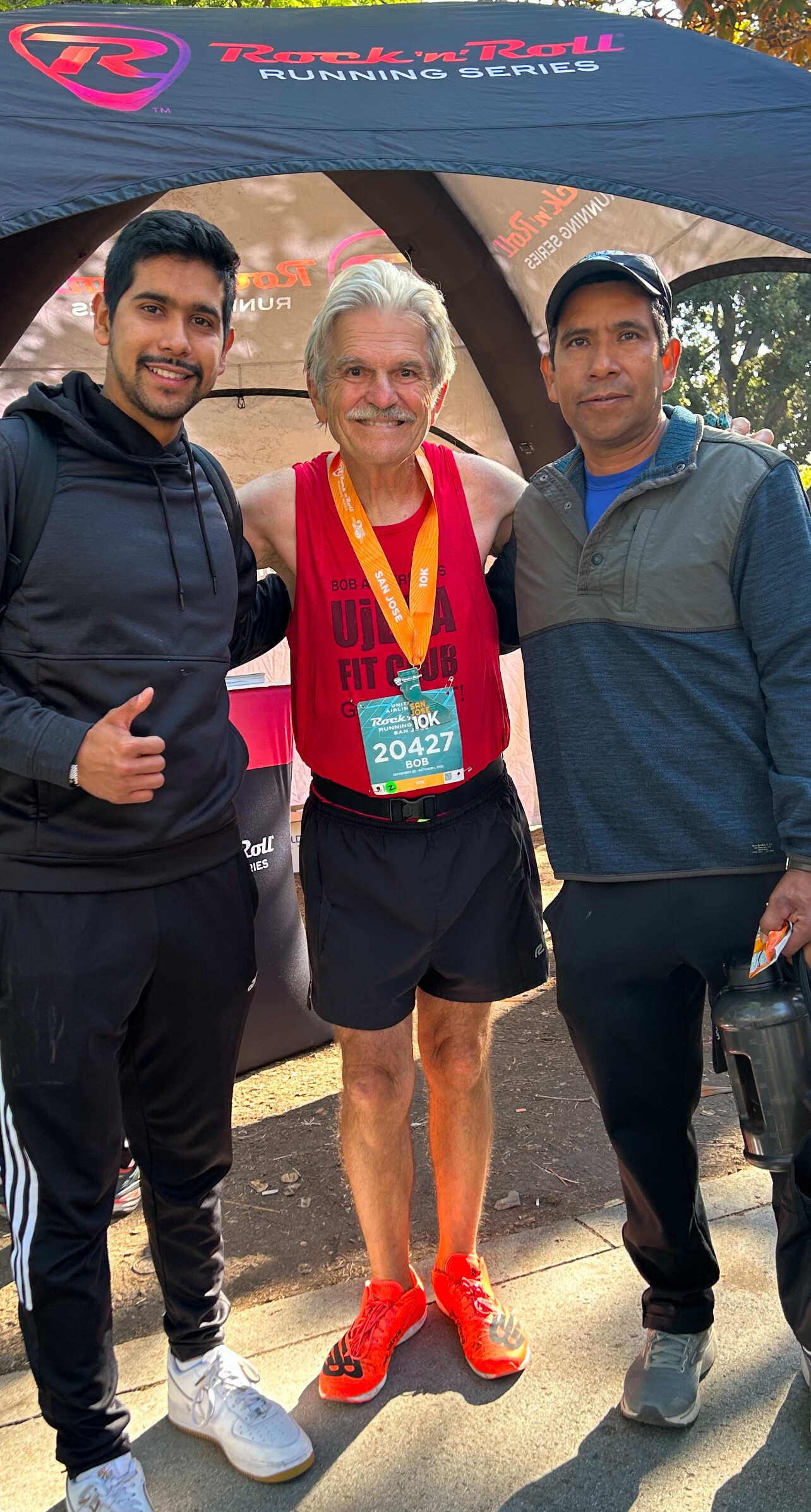
• The body takes longer to recover from hard workouts, making rest, nutrition, and cross-training essential for long-term success.
The good news is that lifelong runners often have stronger hearts, denser bones, and slower biological aging than non-runners. Regular endurance training can reduce the risk of cardiovascular disease, osteoporosis, and cognitive decline.
Training Smart: Adapting Workouts for Longevity
Many runners burn out or get injured because they don’t adjust their training as they age. Here’s how to train smart for decades.
Maintain Speed with Strides and Intervals
Fast-twitch muscle fibers decline faster than slow-twitch fibers, but incorporating short sprints, strides, and intervals helps retain speed. Even just six to eight 100-meter strides at the end of easy runs can keep the neuromuscular system sharp.
Prioritize Strength Training
Strength training two to three times per week can help counteract muscle loss, improve bone density, and prevent injuries. Key exercises include squats, lunges, core work, and hip mobility drills.
Adjust Recovery
Younger runners recover quickly, but for those over 50, rest and active recovery days become more important. Running every day might not be sustainable, but alternating hard workouts with cross-training, such as cycling, swimming, or hiking, can help maintain fitness without overuse injuries.
Keep Mileage Consistent
Aging runners who maintain a consistent but moderate mileage base tend to perform better long-term than those who dramatically reduce or increase mileage. The key is staying active year-round and avoiding long breaks that lead to muscle loss and decreased aerobic capacity.
Nutrition and Recovery: Fueling for the Long Run
Proper nutrition plays a major role in running longevity.
Focus on Anti-Inflammatory Foods
Chronic inflammation contributes to aging and joint pain. Long-term runners benefit from foods rich in omega-3s (salmon, walnuts), antioxidants (berries, leafy greens), and lean proteins (chicken, beans).
Stay Hydrated and Maintain Electrolyte Balance
As we age, our sense of thirst declines, so staying hydrated becomes more critical. Older runners are also more prone to electrolyte imbalances, making magnesium, sodium, and potassium intake vital.
Increase Protein Intake
After 50, the body needs more protein to maintain muscle mass. Aim for 1.2–1.6 grams of protein per kilogram of body weight daily, focusing on high-quality sources like eggs, lean meats, Greek yogurt, and plant-based proteins.
Mental Toughness and Staying Motivated
Longevity in running isn’t just about the body—it’s also about the mind. Many lifelong runners stay motivated by setting new goals, training with a group, and embracing the aging process rather than resisting it.
Bob Anderson, founder of My Best Runs, started running in February 1962 and continues to train and race today. His ability to sustain a high level of performance comes down to consistent training, smart adaptations, and a passion for the sport. His 6:59 per mile pace for 350 miles of racing (50 races totally 350.8 miles over one year) at age 64 is proof that age is just a number when you train right. More recently he ran 49:48 for 10k at age 76.
The Role of Cross-Training and Injury Prevention
Even the most dedicated runners face injuries. The key to longevity is knowing when to rest and when to cross-train.
Some of the best cross-training options for runners over 50 include cycling, swimming, pickleball, hiking, and yoga. Incorporating at least one non-running workout per week reduces injury risk and keeps running sustainable for the long haul.
Gene Dykes and Rosa Mota: Icons of Running Longevity
Bob Anderson is not alone in proving that age is just a number. Gene Dykes, one of the most remarkable masters runners in history, has shattered records in his 70s. At age 70, he famously ran a 2:54:23 marathon.
His secret? A high-mileage approach combined with interval training and a love for the sport that keeps him motivated year after year.
On the women's side, Rosa Mota, the legendary Portuguese marathoner and 1988 Olympic gold medalist, continues to inspire runners worldwide. Even in her 60s, she remains an active ambassador for the sport, showing that passion, consistency, and smart training allow runners to stay competitive for life.
In December 2024, at age 66, Rosa Mota set a new W65 10K world record by completing the San Silvestre Vallecana race in 38:23.
Both Dykes and Mota exemplify the idea that the body can continue to perform at a high level if treated right. Their stories, along with those of runners like Bob Anderson, prove that longevity in running is not just about genetics-it's about persistence, training adaptations, and maintaining the joy of ring.
Final Thoughts: Running for Life
Longevity in running isn’t about fighting age—it’s about embracing the journey, adapting intelligently, and staying passionate. The best runners understand that while paces may slow, the love of the sport grows deeper with time.
Whether you’ve been running since February 1962 like Bob Anderson or are just starting in your 50s or 60s, consistency, smart training, and joy in the process are the real secrets to running for life.
by Boras Baron
Login to leave a comment
Is this Pennsylvania senior the most prolific runner of 2024?
Gene Dykes, 76, racked up an astounding 43 races in 2024, including eight marathons and nine ultras.
At 76 years young, Pennsylvania’s Gene Dykes has made 2024 a year of milestones that most runners of any age would envy. Here’s a closer look at why this runner might just be the most prolific of the year—from breaking records to embracing DNFs (Did Not Finish) with humour, Dykes continues to prove that age is not a barrier.
Races around the globe (and in his backyard)
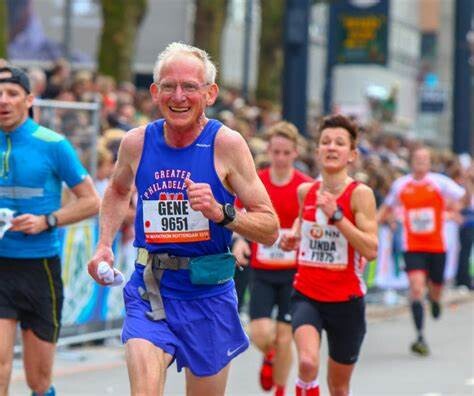
With 43 races completed in 2024, Dykes’s calendar reads like a globetrotter’s dream. He raced in three countries and racked up 19 starts in Pennsylvania alone. From marathons and ultras to shorter races like 5Ks, he tackled every distance imaginable. Dykes says a highlight was completing three stunning trail races in Australia. Dykes’s philosophy of “just run”—no stretching, no weights and no cross-training—clearly works for him.
But it wasn’t all wins. Six DNFs(did not finish), including one at mile 160 of a 200-mile race, remind us that even the most determined, experienced runners face challenges. His attitude? Brush it off and keep running.
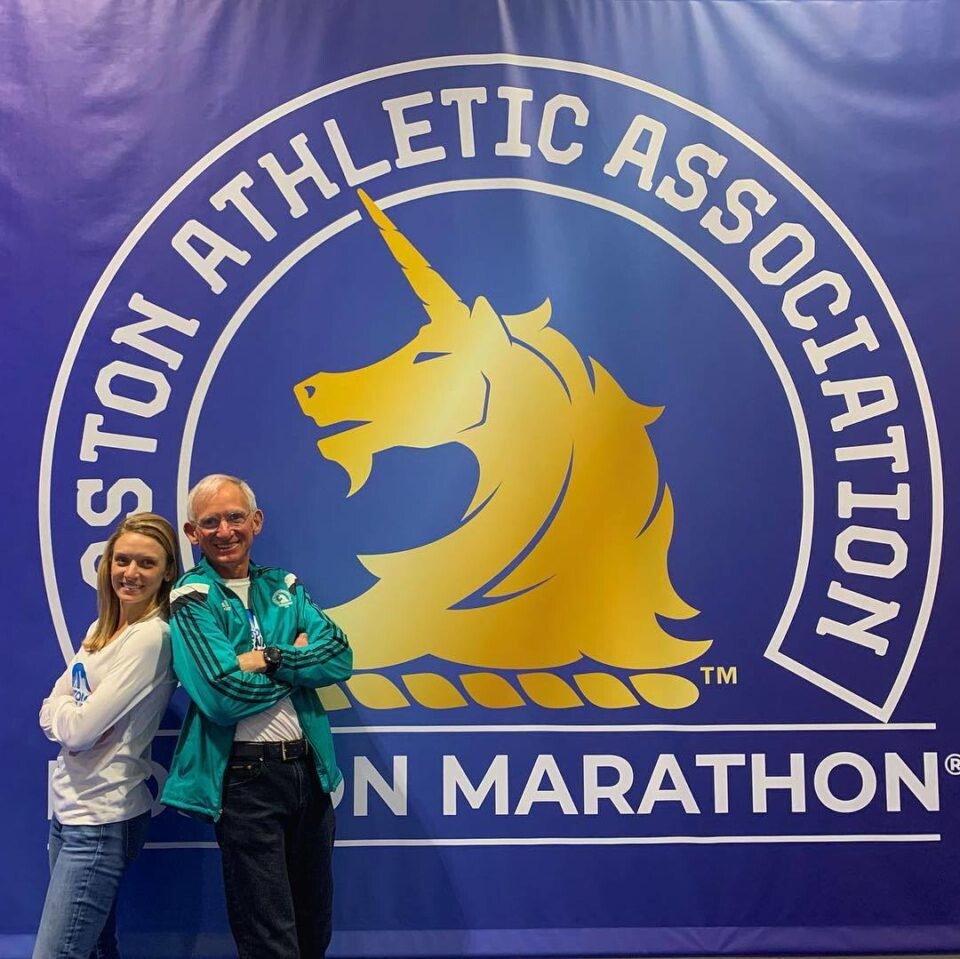
Breaking records and smashing goals
“This past year was all about running as many races as I could,” says Dykes. He compares his 2024 running season to 2018, when he ran 40 races and trained hard in between. “Every race and every training session made me faster,” he explains. “How did it go this year? I ran 43 races and every race and every training session just made me more and more tired. But I had a lot of fun!” Dykes captured five national championship races and three Pan American championship races throughout the year, but he was most pleased with setting the M75 course record at the Boston Marathon.
A family affair and adventure-driven philosophy
Running isn’t just a solo adventure for Dykes, and he says his marathon and ultra finishes with his daughters stand out as one of the highlights of his year. Adventure also motivated some of his races; he undertook a six-day trail running adventure in Newfoundland, covering 87 miles of rugged, breathtaking terrain.
What’s next for this marathon machine?
With 184 marathons and ultras to his name since 2006, including a 2:54:23 marathon PR at age 70, 2024 adds another incredible chapter for Dykes. Next year’s schedule is already packed, from the Tokyo Marathon (where he aims to complete his Marathon Majors clean sweep) to a 300-mile trail race in Arizona. After May, Dykes plans to take a well-deserved sabbatical, gearing up for a future in the M80 age group.
by Keeley Milne
Login to leave a comment
Men and women 75-79 age group records set at the Chicago Marathon
While Kelvin Kiptum’s world record time of 2:00:35 stole the show at the 2023 Chicago Marathon, the race saw a slew of masters records go down on Sunday.
Two runners in the 75-79 age group racked up numerous accolades. Jeannie Rice, 75, broke the women’s masters world record in the marathon with a time of 3:34:32, and also racked up American records over the course of the race, including the 10K (49:14) and half marathon (1:43:09). Gene Dykes, 75, also set an American marathon masters record of 3:17:01.
Login to leave a comment
Training Advice from the Greatest Women Masters Marathoners Alive
While Jeannie Rice and Jenny Hitchings are busy setting masters world records, their differences in training are even more instructive than their similarities
The spring marathon season has come and gone, and it didn’t disappoint, producing sensational races and world headlines. This was particularly true in Boston and London. However, you might have heard little or nothing about two of the best marathon performances in those events.
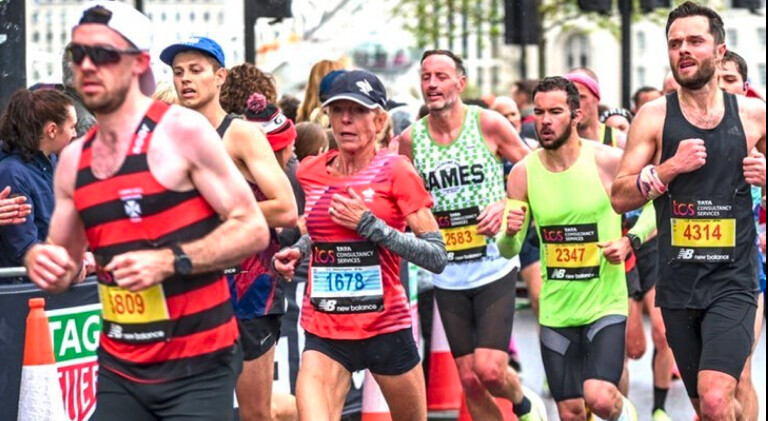
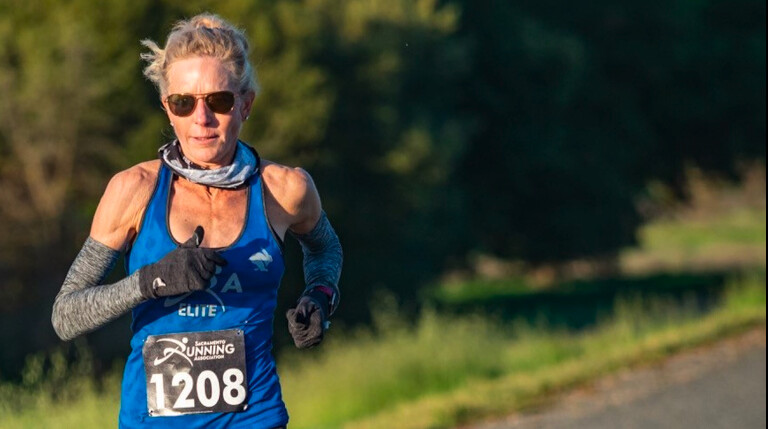
The big media coverage went to seemingly-unbeatable Eliud Kipchoge, who finished sixth at Boston, where Evans Chebet gained his third straight World Marathon Major victory in 12 months. At the London Marathon, Kelvin Kiptum ran 59:45 for the second half, en route to a course record 2:01:27, and Sifan Hassan demonstrated that she can win in the marathon as she has at multiple shorter distances.
But 75-year-old Jeannie Rice and 59-year-old Jenny Hitchings outran them all, on an Age-Gender performance basis, both setting new world records for their age groups. Rice’s 3:33:15 in Boston won’t count, since the Boston course is considered ineligible due to its significant downhill slope and point to point layout, which allows for a tailwind boost. Still, she beat the fastest 75-79 age-group male runner by more than 20 minutes, which has likely never happened before in a global marathon. And five weeks before Boston, at age 74, she ran 3:31:22 in the Tokyo Marathon.
A week after Boston, Hitchings ran 2:45:27 in London—a marathon world record for women in the 55-59 age division. Remarkably, she’s at the high end of that age range, as she’ll turn 60 in early July. Not only that, but it was her personal best marathon in 40 years of running.
Rice was born in South Korea and immigrated to the U.S. in her mid-30s. A retired real estate agent, she now divides her time between south Florida and Cleveland. Hitchings is a longtime resident of Sacramento, California, where she works as a middle-school cross-country coach and a private running coach.
Rice and Hitchings live on opposite coasts, but they have much in common. They’ve both been running for decades, both are extremely consistent in their training, and both log multiple 20-milers in their marathon buildups. Surprisingly, neither makes a particular effort to include hill training, a staple among other top marathon runners. Both are small and lean. Rice stands 5-foot-2 and weighs 96 pounds; Hitchings is 5-foot-4 and 100 pounds.
But Rice and Hitchings also present some stark contrasts. These differences carry an important message: There are many paths to marathon success, and the best senior runners understand this. Through their experience and wisdom, they’ve learned to focus on the positives and jettison the junk.
Here’s a look at some of the major contrasts between master marathon greats Jeannie Rice and Jenny Hitchings.
Both Rice and Hitchings had previously won age-group titles at Boston. Rice chose to return there in April for emotional reasons, as Boston marked her 40th anniversary of marathon running and her 130th marathon. Hitchings selected London for technical reasons. In 2021, she ran 2:45:32 at Boston. It would have been a record except for the point-to-point course prohibition. So this spring she opted for London’s record-eligible course.
Rice: “Boston has always been a special marathon for me,” said Rice. “My preparation wasn’t the best, as I ran the Tokyo Marathon in early March, and then did some traveling. But I wanted to have my Boston celebration, and I had quite a few running friends there with me.”
Hitchings: “London was on my marathon ‘bucket list’ anyway, and it gave me a great opportunity to set an age-group world record,” said Hitchings. “Since my 2:45 at Boston didn’t count, I figured I should take a crack at London while I was still in the age group.” [She will turn 60 in early July.]
Rice has always been self-coached. Hitchings, a running coach herself, has had a longterm coach-athlete relationship with Chicago-based Jenny Spangler. Spangler won the U.S. Olympic Trials Marathon in 1996 and ran a 2:32:39 marathon in 2003, after turning 40.
Rice: “I’ve been approached by people who wanted to coach me, but they seemed expensive and had other demands I didn’t like. I listen to what my friends do and what others are doing in training. I try to run 50 miles most weeks, and a bit more before my marathons. But I don’t actually follow a schedule. Mostly I just train the way I feel. I’m still running strong and beating records, so I must be doing something right.
“I know it’s possible that a coach could help me the way Gene Dykes’s coach helped him, but it’s also possible that things could go wrong. I like to decide my training according to how I feel each day.”
Hitchings: “I coach other runners, and I could certainly coach myself, but you know what they say about doctors who treat themselves: They have a fool for a patient. I think that can also apply to athletes who coach themselves. It’s just smarter to have someone looking over your shoulder, and adding some perspective.
“I’m one of those who’s often guilty of running too fast on my easy days, or getting excited and going too hard when I’m training with friends. Jenny [her coach] holds me accountable for those kinds of things. She has a great personal performance record that I respect a lot, and has been coaching for many years.
“It’s also important to me that she’s a female coach of my own age. She understands what I’m going through and dealing with in terms of female physiology.”
Both runners say they enjoy a relaxed morning cup of coffee before launching into their days. But Rice is up earlier, and often out the door quicker. Hitchings needs more time to be ready for a solid run.
Rice: “I like to get my run done early, so I have the whole day in front of me when I get back home at 7:30 A.M. or so. I’m usually running by 6 A.M. In Florida, where I spend my winters, that can be important for the cooler weather.
“But on days when I’m going 20 to 23 miles, I’ll get up at 3:30 A.M. and begin running at 4:30 A.M. I’ll go two hours on my own, and then join a local training group for their morning loop, which gives me another hour or so.”
Hitchings: “I coach a number of people who can roll right out of bed and start running. I’m not one of those. My favorite time to run is about 8 A.M. or 8:30 A.M. in the morning. I like my coffee first, and the morning newspaper, and I always make sure to get a light breakfast in my stomach. Since my favorite place to run is the American River Parkway, that gives me another 15 minutes of drive time before I get going.
“There have been times when I had to be a noontime runner, and that was OK, too. But 4 P.M. or 5 P.M.? That’s not going to happen. By that time of day, I’m too tired or depleted.”
This one is easy for Rice, who has never been injured except for a fall (and banged-up knee) in 2021 that cost her several weeks of running. Hitchings also considers herself relatively injury-free, but she has encountered an assortment of typical runner injuries through the years: Achilles tendinitis, piriformis pain, and surgery for Haglund’s deformity (a bony growth at the back of the heel resulting from mostly genetic causes).
Rice: “I go to the gym three times a week for a light strength workout, some pushups, and some stretching. But it’s not a serious session at all. I also golf for fun; I really enjoy golfing.”
Hitchings: “I try to do light weight work as much as I can, and I ride my bike 20-30 miles a week outdoors, and do Peloton indoors. Recently, I added Pilates once a week to improve my strength and mobility.
“Also, Jenny and I have agreed to take one hard running day out of my weekly schedule. I used to do speed work of some kind on Tuesday and Thursday, and a long weekend run. Now I’m down to speed on Wednesday, and a weekend long run that often has some tempo-pace segments.”
While both are clearly fit, Rice and Hitchings say they enjoy a wide variety of foods, and have no particular restrictions in their diets. Both enjoy wine drinking. Hitchings admits to a sweet tooth, too, but desserts are not a problem for Rice.
Rice: “Breakfast is usually oatmeal with fruit and nuts. At lunch and dinner, I enjoy a green salad with some sort of seafood or fish on top. I’ve never liked sweets and don’t crave them, but I love cheese and nuts. That’s my big downfall—cheese and nuts. The only supplements I take are calcium with vitamin D, B-12, and magnesium.”
Hitchings: “I eat ‘clean,’ a well-balanced diet with an emphasis on carbs. I simply don’t feel good if I eat heavy, creamy, or fried foods. I get most of my vitamins and minerals from real foods, though recently I’ve added Athletic Greens to my routine.
“When I’m in heavy marathon training, I find it hard to maintain my weight, so I’ll have some protein shakes and maybe one chocolate bar, muffin, or pastry per day. I’ve got a drawer full of vitamins, calcium, collagen, and iron supplements, but I never seem to stick with any for long. It’s just too much.”
While realistic about their futures, neither Rice nor Hitchings sound the least bit intimidated by the unwritten future. Despite aging, both are driven to perform. They hope to keep running hard and fast, and chasing age-group records. Both plan to run the Chicago Marathon on October 8, as it will be the site of this year’s Abbott World Marathon Majors Wanda Age Group Championships.
Rice: “Getting faster at 75 is almost impossible, but this year I’m going to run a few road miles to work on my speed. I’ve won my age group in every World Marathon Major but London, so I want to get back to London in the next several years. I want to run the Sydney Marathon, the Ho Chi Minh City Marathon, and, of course, I must run the Seoul Marathon in the country where I was born.”
Hitchings: “I’m running faster at 60 than I’ve ever run in my life. My time in London was literally my lifetime best, and I’ve been running a long time. Sometimes I get asked, ‘When are you going to stop running?’ My answer is always: ‘Why would I stop?’ I’m still getting faster, and I’m still enjoying it.”
Rice, though 15 years older, feels the same. It’s fun winning major marathons, of course, especially when she beats most men her age. In local and regional races, she challenges herself to finish as high as possible in the masters division against females three decades younger (and sometimes wins outright).
“I love competition,” she says. “I’m motivated to train hard, and I’m excited about setting more records as long as I can. Maybe into my 80s.”
Running is about finish times, sure, but it’s even more about attitude. Find the goal that’s right for you, and go after it. This is the approach both Rice and Hitchings have followed successfully, and neither plans to change course now, no matter how many candles adorn their next birthday cake.
Both are on a shared mission, and they’d like others to join them. As Hitchings says: “I think if we keep a positive attitude and motivation, we can go out there and do much more than people think. It’s important to show others that we can defy the way aging has been defined for us for so long.”
by Outside Online
Login to leave a comment
Gene Dykes, 75, sets seven U.S. masters records
Accomplished ultrarunner Gene Dykes, 75, looks to have set no fewer than seven U.S. masters records at a 12-hour race in his home state of Pennsylvania over the weekend, surprising himself as he pushed past health issues to pass the 100-km mark with 400 metres to spare.
The records, which have yet to be ratified by USA Track and Field, include the fastest outdoor track times in the U.S. men’s 75-79 category for 25K (2:48:33), 30K (3:24:08), 50K (5:40:39), 20 miles (3:41:28), 50 miles (9:25:10) and 100K (11:56:26), and the longest distance run in that category for a 12-hour period (100,481 metres). Dykes set the records during his 12-hour overnight effort at the Dawn to Dusk to Dawn Track Ultras in Sharon Hill, Pa., on May 13-14.
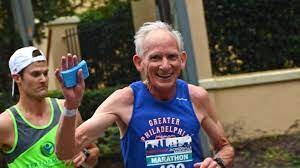
The 100K record was the most surprising to Dykes, who has broken multiple records since he took up competitive racing in his 60s. “I didn’t think I had a prayer,” he says. “It’s hard running 100K at my age. I only made it by four minutes.”
Making his latest effort even more remarkable was the fact he was battling a host of health issues on race night.
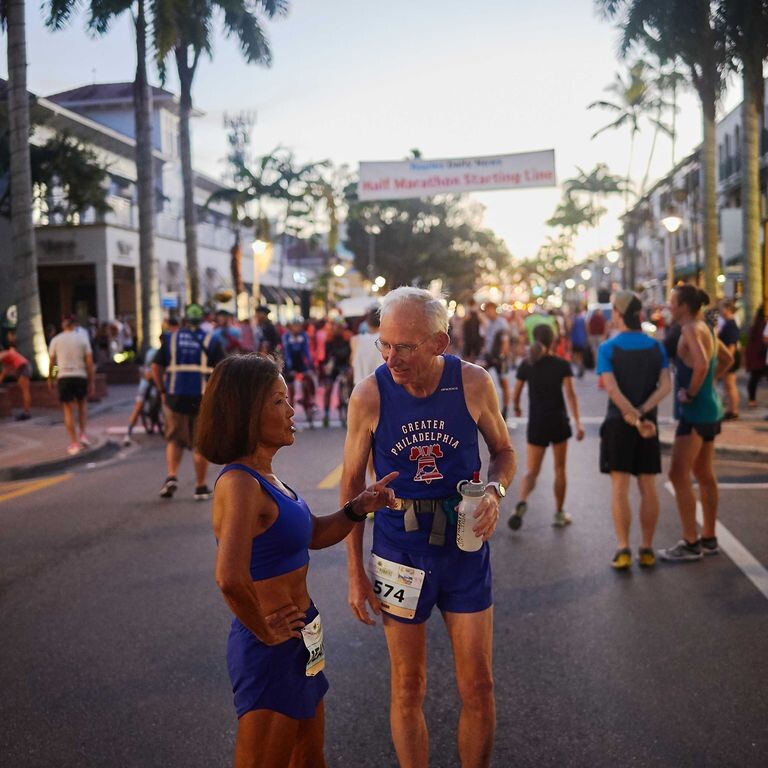
“I told people I’m battling the three C’s out here,” says Dykes. “Two weeks ago I contracted COVID, and I also had cold symptoms going into the race. Six months before I had been diagnosed with blood cancer, and that’s been really hurting my fast pace, but I have this theory that it doesn’t affect ultra paces and that seems to have really been borne out here. The only symptom I have is that I can’t breathe hard enough when I run fast, but when you’re running 12 hours, you’re never running hard. I was really happy to be able to get through 12 hours with all those health problems.”
Dykes says although he has been sitting out races recently due to health challanges, it was important for him to step up to the starting line over the weekend, as he prepares to make history next month as the oldest finisher of the 100-mile Western States Endurance Run.
“I kind of had to take a chance, because the really big race is next month,” says Dykes. “That’s a big deal. I’ve got a sponsor, and everybody’s expecting me to become the oldest-ever finisher there. So I thought, If I can’t run for 12 hours, how am I going to run for 30 hours?”
The self-described “ultra geezer” says his race on the weekend—his longest since receiving his cancer diagnosis—is a good confidence booster ahead of Western States.
“When you haven’t done something that like in a while, doubts creep in. A lot of things could have gone wrong. I could have got nauseated, I could have bonked, running out of glycogen, in which case you’re going to slow down no matter how much you want to run faster. None of those things happened. You get in this strange mindset where you just kind of dial out misery and keep on going.”
Reflecting on his latest effort with humility, Dykes says many of the U.S. masters records he set on the weekend were “low-hanging fruit,” saying he could “think of a half a dozen 75-year-olds out there” who could have set records in the 25- and 30-km distances “if they had the mind to.”
He adds, however, that he was proud to have hit the 100-km distance under the wire. “At 50 km I asked my crew to find out the new pace I would have to run over the next 50 km for the 100 km. I had to pick up from my comfortable pace. I thought I don’t care if I have no chance—I’m going to run the pace I need and keep doing it until I can’t do it anymore.’ Somehow, for seven hours I managed to keep pushing myself right up to the ending bell.”
Dykes is now looking forward to bringing that same determination to Western States on June 24-25. “It’ll be fun trying,” he says. “There are just so many ways to enjoy running. I’m really fortunate.”
by Paul Baswick
Login to leave a comment
Western States 100
The Western States ® 100-Mile Endurance Run is the world’s oldest and most prestigious 100-mile trail race. Starting in Squaw Valley, California near the site of the 1960 Winter Olympics and ending 100.2 miles later in Auburn, California, Western States, in the decades since its inception in 1974, has come to represent one of the ultimate endurance tests in the...
more...Gene Dykes hopes to become oldest Western States finisher
Gene Dykes, the record-setting 75-year-old ultrarunner from Philadelphia, will hit the trail this summer in a bid to become the oldest finisher in the history of the 100-mile Western States Endurance Run.
This year’s event, which takes place June 24-25 in Auburn, Calif., will mark the race’s 49th year.
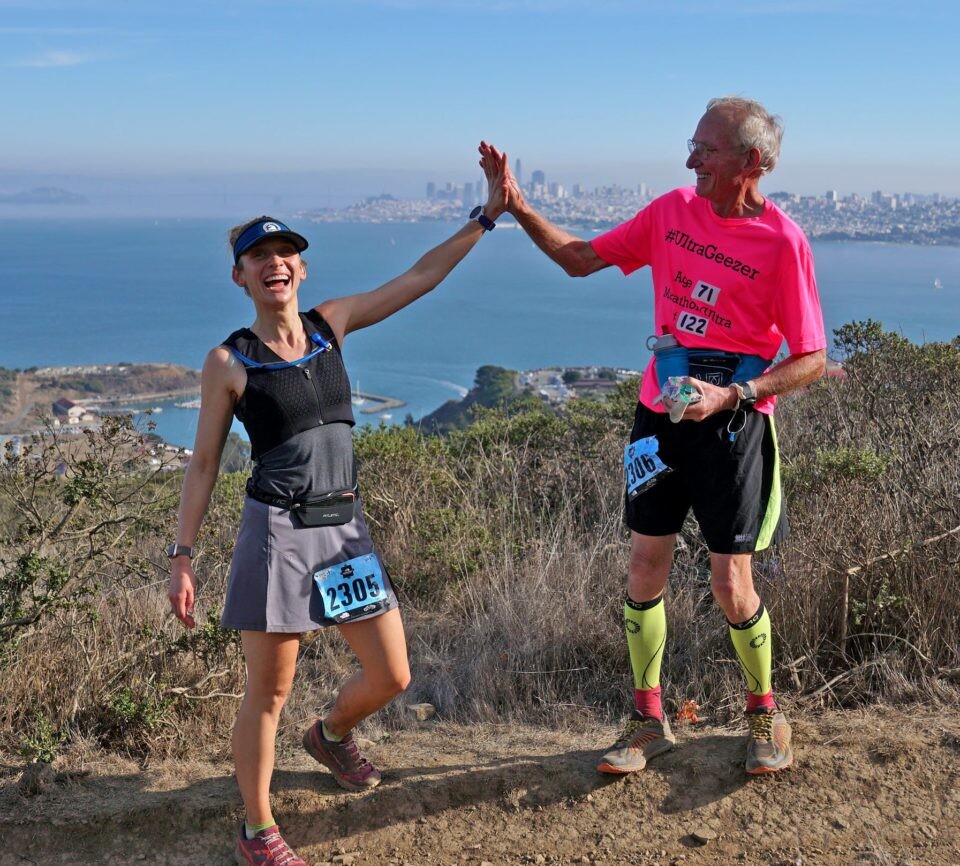
The current oldest finisher is Nick Bassett of Cheyenne, Wy., who finished the 2018 race in 29:09. (The cutoff for all finishers is 30 hours.) Bassett was 73.
A self-proclaimed “ultra geezer,” Dykes started competing in races when he was in his 60s and has since broken multiple records for his age group. In 2021, he broke the M70 50K world record at the USATF national 50K road championships in East Islip, N.Y., crossing the finish line in 3:56:43 and beating the previous record of 4:15:55, set by Germany’s Wilhelm Hofmann in 1997, by nearly 19 minutes. Dykes broke the M70 100-mile and 24-hour track records at the Dawn 2 Dusk 2 Dawn 24-hour ultramarathon in Sharon Hill, Penn., in 2019.
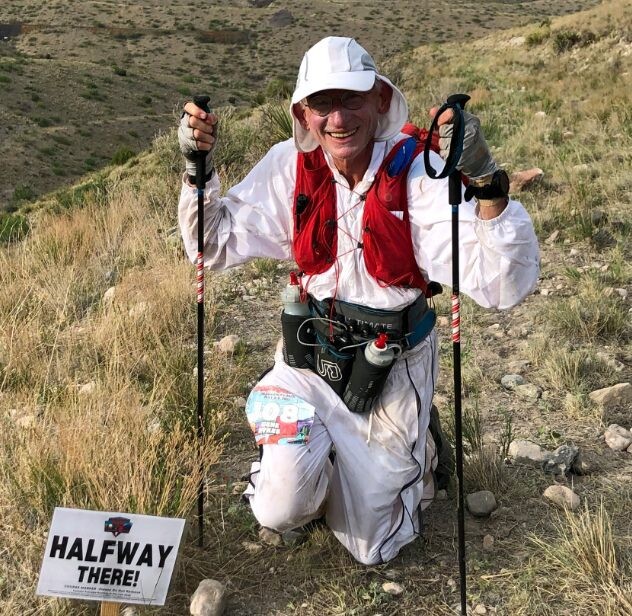
In 2018, Dykes ran his fastest marathon time—2:54:23—at age 70 at the Jacksonville Marathon in Florida. The result would have seen him take the world M70 marathon title from former record holder Ed Whitlock, but Dykes’s final time was not ratified due to the race not being a USATF-sanctioned event.
In total, Dykes has run 157 marathons and ultras since 2006. His daughter Hilary will pace him at this year’s WSER.
Dykes is being sponsored in his latest effort by Calgary-based Stoked Oats. As part of their support, the company has kicked off its Breakfast with Gene series on Instragram and YouTube. The series will feature guests including Vancouver-based WSER female record holder Ellie Greenwood, three-time WSER racer Michael Wardian and race director Craig Thornley.
In 2016, 72-year-old Wally Hesseltine made a valiant and heartbreaking attempt to break the “oldest finisher” record, but missed the 30-hour cutoff by two minutes.
“We are thrilled to be supporting Gene on his journey to WSER,” says series host and Stoked Oats founder Simon Donato. “Running 100 miles is a tall order for professional runners, let alone someone in their 70s. What Gene is trying to accomplish is truly remarkable and we’re looking forward to supporting him every record-setting step of the way.”
Western States, first run in 1974, is the world’s oldest 100-mile trail race and one of the most prestigious. Each June, 369 runners from across the United States and around the world embark from the start line in Olympic Valley, Calif., to tackle a challenging course to the coveted finish line at Placer High School in Auburn.
by Paul Baswick
Login to leave a comment
Western States 100
The Western States ® 100-Mile Endurance Run is the world’s oldest and most prestigious 100-mile trail race. Starting in Squaw Valley, California near the site of the 1960 Winter Olympics and ending 100.2 miles later in Auburn, California, Western States, in the decades since its inception in 1974, has come to represent one of the ultimate endurance tests in the...
more...Yehualaw and Kipruto cruise to convincing wins at London Marathon
In just the second marathon of her career, Yalemzerf Yehualaw overcame a heavy fall to win the women’s race at the TCS London Marathon, while Kenya’s Amos Kipruto made a decisive move with two miles to go to take the men’s title at the World Athletics Elite Platinum road race on Sunday (2).
Yehualaw won in 2:17:26 – the third-fastest time ever achieved on the streets of London – while Kipruto’s closing speed brought him home in 2:04:39.
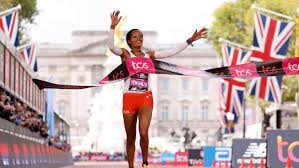
The opening pace in the women’s race was swift, as it often is on the slightly downhill section of the course. The lead pack of eight women – including Yehualaw and defending champion Joyciline Jepkosgei – passed through the first 5km in 16:01 and they reached 10km in 32:18. That early pace suggested a finishing time of 2:16:15 – well inside the women-only world record of 2:17:01 – but the tempo soon started to drop.
The same eight women were still together through 15km (48:51) and at half way, which was reached in 1:08:46. Hiwot Gebrekidan was unable to stay with the pack for much longer and the lead group was reduced to seven women by 25km (1:21:29), the pacemakers having now dropped out.
Asefa Kebede started to push the pace as the lead group embarked on the second half, with Yehualaw biding her time near the back of the pack. Jepkosgei and Joan Chelimo Melly, meanwhile, looked comfortable in the middle of the pack.
With about 10km to go, Yehualaw tripped on a bump in the road and fell hard, just as she had done at the 2020 World Half Marathon Championships where she went on to take bronze. She quickly got back up on her feet and rejoined the lead pack a minute or two later.
Melly and Ashete Bekere were next to drop off the pace, followed by Kebede, leaving just four women in the lead pack: Jepkosgei, world silver medallist Judith Jeptum, Alemu Megertu and Yehualaw. They reached 35km in 1:54:30, their predicted finishing time now outside 2:18:00, but the real racing was just beginning.
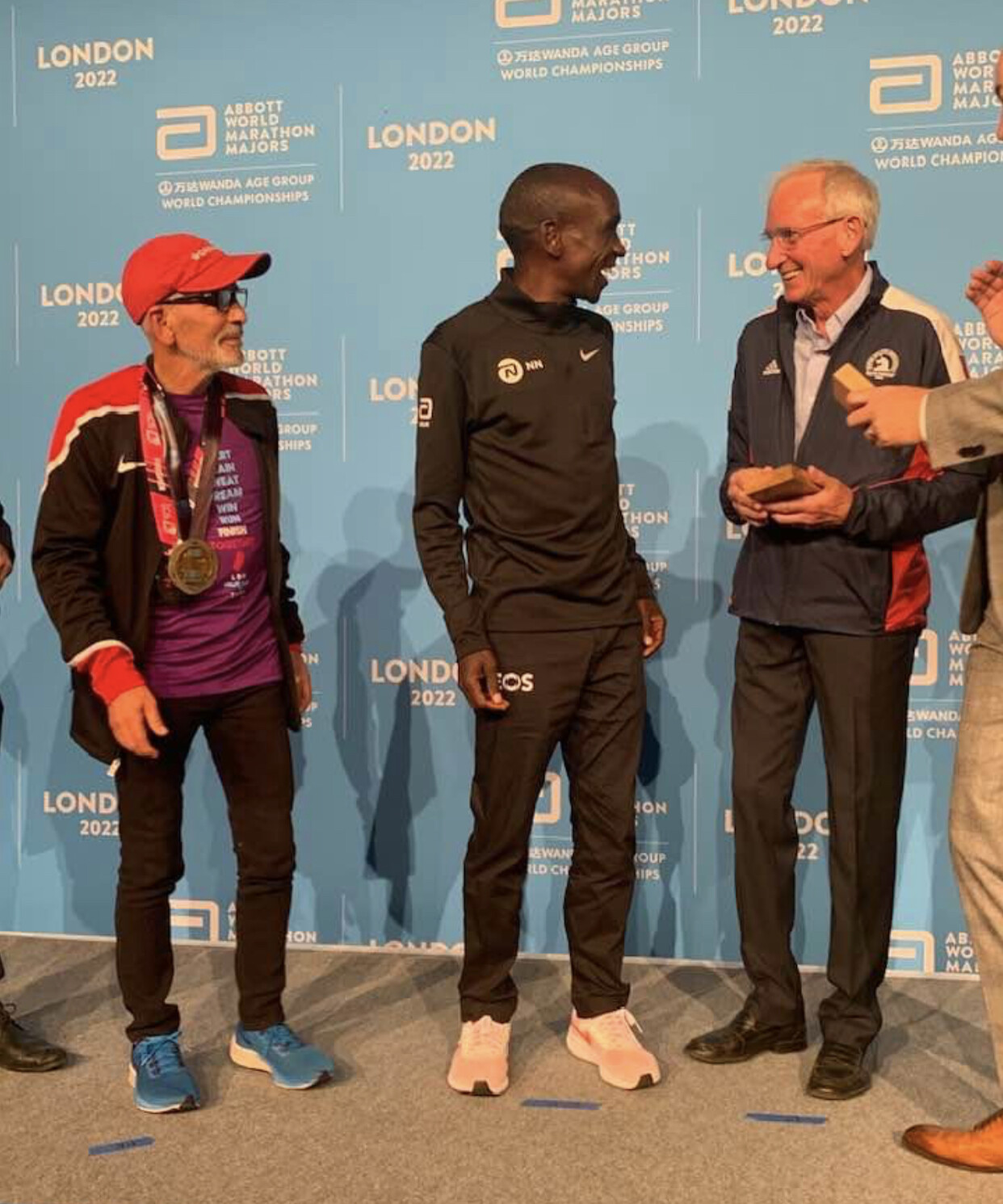
After two hours of running, Yehualaw started to increase her pace. A sizzling 4:43 split for the 24th mile broke up what was left of the lead pack, and within a couple of minutes the Ethiopian had a clear lead over Jepkosgei with Megertu and Jeptum further behind.
Showing no ill effects of her earlier fall, and running with the confidence of a seasoned marathon runner, Yehualaw continued to forge ahead in the closing stages and went on to win by 41 seconds in 2:17:26, just three seconds shy of the PB she set on her debut in Hamburg earlier this year. It’s also the third-fastest time ever recorded in London, behind the world records set by Paula Radcliffe (2:15:25) and Mary Keitany (2:17:01, women-only).
"I am so happy to win here in London," said Yehualaw. "I have worked very hard to prepare for this race and to take the victory is amazing."Jepkosgei held on to finish second in 2:18:07 and Megertu completed the podium in 2:18:32, a PB by 19 seconds. For the first time ever, six women finished in 2:19:30 or quicker.
Kipruto conquers quality field for first world marathon major
The opening pace in the men’s race was more steady and consistent than the women’s race, but the race unfolded in a similar fashion with a group of seven men running together through the early checkpoints. They covered 5km in 14:45, 10km in 29:26 and 15km in 44:20, suggesting a finishing time inside 2:05.
Kenenisa Bekele featured prominently in the lead pack, while defending champion Sisay Lemma held back slightly near the rear of the group. World and Olympic bronze medallist Bashir Abdi and Kenya’s Amos Kipruto were also in contention.
They reached 25km in 1:13:41, still on course for a finishing time just outside 2:04 and with the same seven men still running together. At about 33km, Bekele started to fall off the pace of the lead pack, but he stayed in the race and kept the leaders in sight.
About 15 minutes later – and at roughly the same part of the course where Yehualaw made her move in the women’s race – Kipruto accelerated away from the rest of the pack, opening up a significant lead within a relatively short space of time. A 4:21 split for the 25th mile proved decisive and it soon became clear that victory would be his.
He went on to win by more than half a minute, crossing the line in 2:04:39 to achieve his first victory in a marathon major, following three podium finishes in Berlin and Tokyo in recent years. Ethiopia’s Leul Gebresilase came through to take second place in 2:05:12, seven seconds ahead of Abdi.
Kinde Atanaw was fourth in 2:05:27, followed by Bekele in fifth in 2:05:53, his fastest time for three years. He also becomes the first 40-year-old to run a marathon faster than 2:06.
third photo: Gene Dykes on podium after winning the 70-74 age group with Eluid Kipchoge, the Goat!
by Jon Mulkeen (World Athletics)
Login to leave a comment
TCS London Marathon
The London Marathon was first run on March 29, 1981 and has been held in the spring of every year since 2010. It is sponsored by Virgin Money and was founded by the former Olympic champion and journalist Chris Brasher and Welsh athlete John Disley. It is organized by Hugh Brasher (son of Chris) as Race Director and Nick Bitel...
more...71-year-old Jo Schoonbroodt ran 2:54:19 at Maasmarathon in Belgium to break the M70+ world record by 29 seconds
Over the weekend (May 8, 2022) at the Maasmarathon of Visé in Belboom, Belgium, Jo Schoonbroodt of the Netherlands broke Ed Whitlock’s M70+ marathon world record of 2:54:48 by 29 seconds. Schoonbroodt ran 2:54:19 to win the men’s 70-74 age category (by an hour and a half) and also set the M70+ world record.
Schoonbroodt set out with the a goal of running under three hours to complete the 75th marathon he has run under the three-hour barrier, but he had a slight tailwind in the first half of the course, covering it in 1:26:18. The second half was into the wind, but Schoonbroodt tucked in behind another runner to help mitigate the effect.
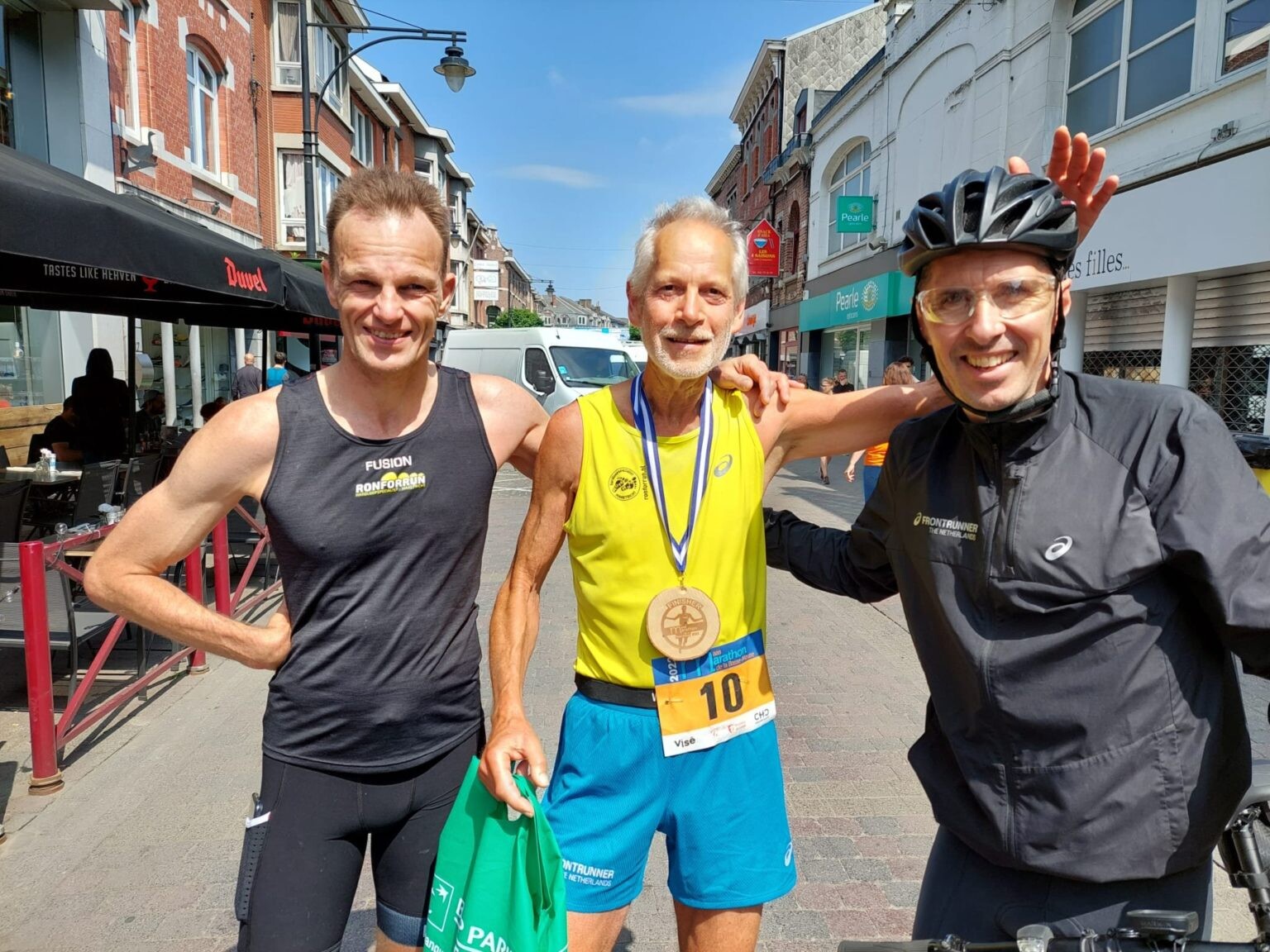
His time not only beat Whitlock’s official record of 2:54:48, but also U.S. masters runner Gene Dykes unofficial record time of 2:54:23 by four seconds; Dykes ran this time at the Jacksonville Marathon in 2018, only to discover the course was not sanctioned by USATF.
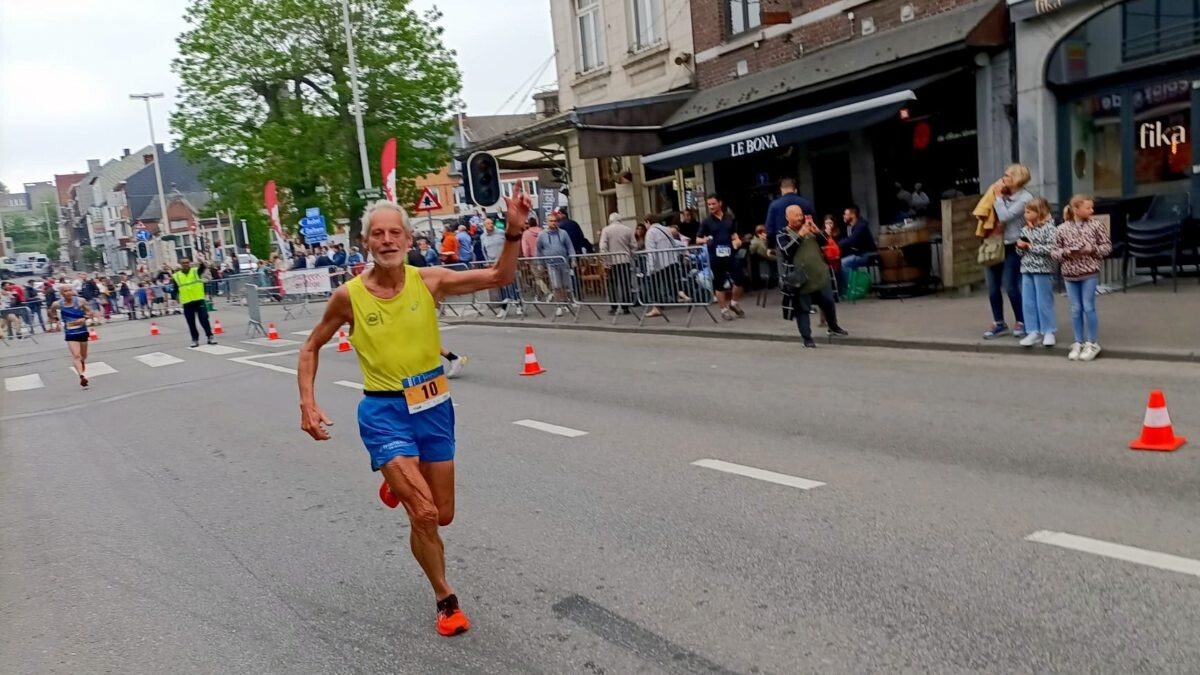
We reached Dykes for a comment: “I’ve been watching with anticipation for Jo to break the record!” he told us in a Facebook message. “My odds of retaking the lead this fall are extremely long–I’m looking forward to tussling with Ed at M75 next year. It would appear that Jacob Nuris going to wipe out the M70 records three years from now.”
According to Strava, Nur is a runner from Elk Grove, Calif. He is 66. And according to USATF, he broke the M65-69 American record in the 10K in November in Sacramento (35:42), as well as the 10-mile American record in 59:11 at the NorCal John Frank Memorial 10-Mile in March.
Schoonbroodt said on his Instagram page that he was not fixated on breaking the record before the race. “A time under three hours was my goal, but I am now happy I can call myself the fastest 70+ runner on the planet.”
This record is not Schoonbroodt’s first, as the Maastrict, Netherlands, resident ran the M60+ six-hour world record in 2012, covering almost 79 kilometres. “I have always been inspired to run by others,” Schoonbroodt says. “Hopefully this record inspires others around my age to start running.”
When the 71-year-old marathoner isn’t running, he is usually playing with his grandkids or hiking in the Dutch countryside. According to his website, he likes to live according to the motto of enjoying every day and being present in the moment.
by Running Magazine
Login to leave a comment
Maas Marathon De La Basse-Meuse
Ever since the initial steps, in 1999, all the organizers, the towns, cities and municipalities involved in this 26.2 mile challenge have constantly been expressing their delight at their investment. Over the years, we have noticed the marathon participants looking for races that are able to offer an extra and original dimension in terms of the circuit and activities. We...
more...Only three men in the world over the age of 70 have run a marathon in under three hours
History was made at the 2021 London Marathon held in October. Mike Sheridan became the first British runner over the age of 70 to complete the race in under three hours.
The 72-year-old finished the 26.2 mile course in an official time of 2:59.37, to write his name into the history books.
Mike Sheridan (first photo) also became only the third person in the world to achieve this feat.
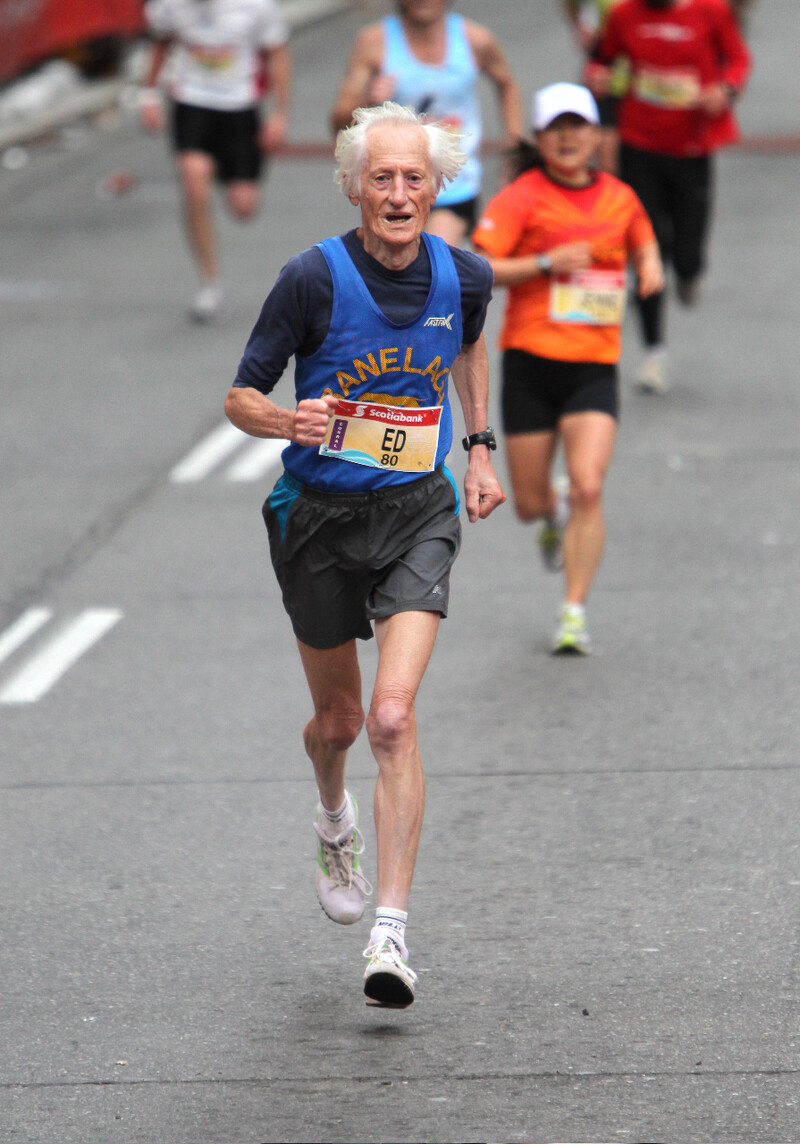
Ed Whitlock (second photo), who died in 2017, and Gene Dykes are the only other two who are on the list of runners over 70 to have completed a marathon in under three hours.
Ed Whitlock was an English-born Canadian long-distance runner, and the first person over 70 years old to run a marathon in less than three hours, with a time of 2:59:10 in 2003.
Whitlock, who ran as a teenager and took up the sport again in his forties, first became the oldest person to run a marathon in less than three hours in 2000, at the age of 69, with a time of 2:52:47. He later extended this record, running a time of 2:58:40 at the age of 74. At 73, he set a world record in the marathon for men 70 to 74, running a 2:54:48, his fastest time after turning 70.
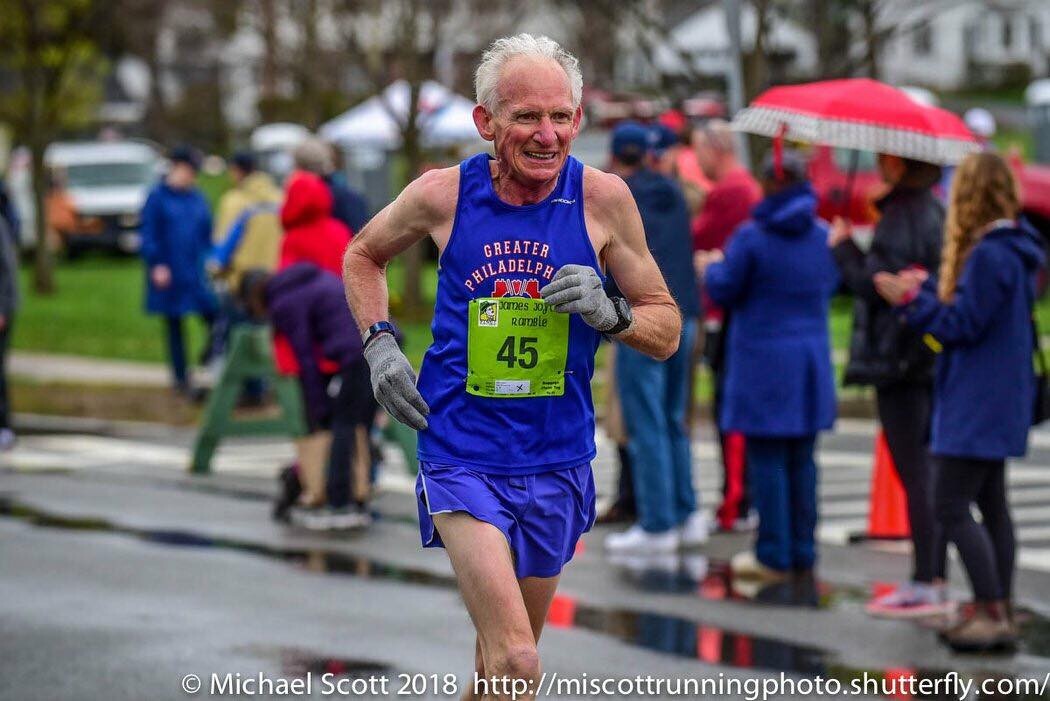
Gene Dykes (third photo) ran his best race, by his own estimation, on December 15, 2018, when he clocked a 2:54:23 at the Jacksonville Marathon. That gave Dykes, then 70, the fastest marathon ever by a 70+ runner. While his time can not be ratified as an official record, because the Jacksonville race was not USATF sanctioned, no one has questioned the legitimacy of the flat, certified, out-and-back course.
Dykes, from suburban Philadelphia, also ran two other sub-3:00s after turning 70 in April, 2018 — Rotterdam and Toronto.
The new member of the 70 plus sub three hour club, Mike Sheridan hit halfway in London in 1:30:16, but got quicker over the second half and his fastest 5km split of 20:41 came from 35km to 40km. He picked up an even faster pace over the last 2km.
The 72-year-old compared running a marathon to ‘physical chess’ as there is a lot you have to take into account.
“A marathon is physical chess,” he said. “You start on the start line, you know you have 26.2 miles to do, but you also know that the human body does not have enough reserves to run the whole thing flat out.
“You have to manage the conditions, other runners, the wind and the rain sometimes.
“You have to manage your own fuel sources and you have to carry gels and you have to top up at the right time.
“You have to eat properly and all of these things come into it and that’s why I call it physical chess.
“You can plan it very well, but if you get a headwind in the last 10 miles then you have a battle on your hands and you have to adapt. It’s why I love it, it is a brilliant distance really.”
Login to leave a comment
Jo Schoonbroodt 71 on May 10, 2022 ran 2:54:19 breaking the record. Now there are four 70+ runners under three hours. More to come I am sure too! - Bob Anderson 5/11 11:19 pm |
TCS London Marathon
The London Marathon was first run on March 29, 1981 and has been held in the spring of every year since 2010. It is sponsored by Virgin Money and was founded by the former Olympic champion and journalist Chris Brasher and Welsh athlete John Disley. It is organized by Hugh Brasher (son of Chris) as Race Director and Nick Bitel...
more...How Gene Dykes Became the World's Fastest 70-Year-Old
Gene Dykes is a heck of an athlete. In his serious bowling days, he four times rolled a perfect score (300). On the golf course, he has recorded a best round of 68 on a par 70 layout. And a little less than three years ago, Dykes ran the fastest time ever by a 70-year-old in a certified, out-and-back marathon (2:54:23 in December 2018).
What's he been up to since that marathon record? Quite a bit, especially when you consider his prolific race and ultramarathon schedule. But a bit less than planned, given a broken shoulder in 2019 (trail run fall), Covid restrictions in 2020, and a hamstring injury from August this year.
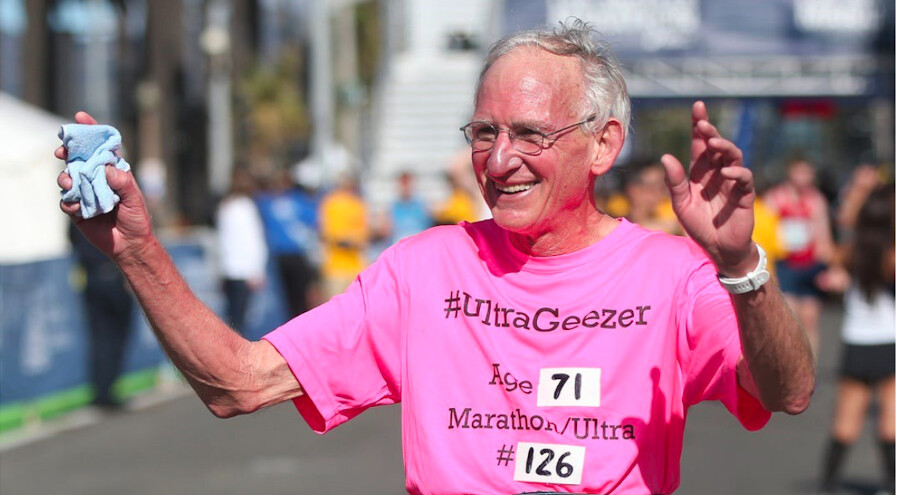
Dykes, now 73, had hoped for peak 2021 races to come at the WADA WMM Age Group Championships in London in early October, followed 8 days later by a fifth consecutive in person, age-group win at Boston. His hamstrings didn't cooperate, however. He had strained them in August at the Hood To Coast Relay.
As late as 24 hours before London, Dykes figured he wouldn't run. But he's irrepressible when it comes to starting lines, so he was there the next morning, and eventually hobbled and walked to the finish in 5:37:56.
At Boston, he hoped to continue his four-year age-group victory streak (65-69 victories in 2016 and 2017, 70-74 in 2018 and 2019). His legs felt a bit better, so he decided to aim for 3:30 pace, which he calculated would give him a 50/50 chance of winning his age group.
His math proved remarkably good, but he ended up on the short end of the 50/50. Dykes hit the tape in 3:30:02, just 28 seconds slower than Mike Wien's first-place 3:29:34.
"If I had known I needed 30 seconds, I could certainly have found them in the last 5 miles," Dykes says.
Other 70-somethings have broken 3 hours in the last month, including Jo Schoonbroodt in Amsterdam (2:56:37) and Michael Sheridan in London (2:59:37). Dykes will turn 74 next April. If he wants to remain atop his age-group, he'll face serious competition for the first time.
To get ready, and to heal an ailing body, Dykes plans a full month of no running from mid-November to mid-December. He and his wife will be cruising the waters around Antarctica and chasing a solar eclipse. He hopes to return to competition at the Naples (FL) Half Marathon in January.
Here, Dykes answers questions about his remarkable past three years of running and what he has learned along the way. His coach, John Goldthorp, adds more information about Dykes's training routine.
Q &A with Gene Dykes
Why did you run London and Boston if you were injured?
Before London, my coach didn't want me to run, my family didn't want me to run, my wife didn't want me to run, but I felt like my Facebook friends were all saying: "Run, run, run." I thought I'd drop out after 6 or 7 miles, but I kept going even though my hamstrings wouldn't allow anything under 10:15 pace. Then I didn't run a lick before Boston, but I could tell that my legs were a little better.
You were already running strong in your mid-60s when you hired a coach for the first time. How did that change things?
It was like night and day. I was a 3:29 marathon runner before, and six months later I ran 3:09 at Boston. When I coached myself, I pretty much ran all long, slow miles with occasional 800-meter repeats on the track. If I was sore after a workout, I figured it was best for old guys like me to rest. John had me out there working my ass off 6 days a week. Sure, a couple of those were recovery runs, but he had me doing lots of miles about a minute per mile faster than before.
I found that when a coach set expectations for me, there was no way I wasn't going to suffer to get the workout done. Needless to say, I discovered I had much more ability locked away than I had realized. I only needed the expertise and accountability that a coach provides.
I've read that you were mostly running around 45 to 50 miles a week. That seems low for your fast race times.
That's the trouble with averages. They hide a lot of variation. I ran close to 2800 miles in 2016, 2017, and 2018, which comes out to about 53 miles a week. But I did so many ultra-marathon races, that my training average was probably 45 to 50. When peaking for a specific, important marathon, I was in the low- to mid-60s.
You run a lot of ultras, and also race frequently. Is that to build endurance first, and then speed?
I'll probably never have another year like 2018. I ran 43 races that year. Hey, only seven of those were ultras! Because I raced almost every weekend, the race substituted for one of the week's harder speed workouts, yes, but I also trained pretty hard between races.
This year is instructive: You dropped out of a 256-mile trail race, ran a world best for 50K, did a road mile, then a 100-mile, then won three track races at USATF Masters, then jumped into Hood to Coast in late August. And these were only a few of your races in 2021. My question is: Is this a racing plan or a kid running amok in a candy store?
I guess there really is no grand plan most of the time. Every November I go through the list of races that pique my interest, either for fun or competition, and pencil the most important ones into the calendar. So many races, so little time! The most fun I have is when I'm running a long distance on trails. Even though I hate the 5K and shorter, any race is fun. Once upon a time, I figured that I would perform better if I didn't race so often. But in 2018, I raced 16 straight weeks and got faster every week. So why not go with it?
If 2021 had gone perfectly, what would have been your realistic goals at London and Boston?
At the beginning of the year, the dream was to set a world record at London and win at Boston. So, timewise, that would have been a 2:54 and, say, 3:07. As it turned out, absolutely nothing about that was realistic. After a 2020 filled with injuries and no races, I was off my game from the get-go in 2021. I realized pretty early that I wouldn't be setting a record in London, but I still thought I could win both London and Boston, at least until the hamstring injury.
What have you learned about yourself and running since your big year in 2018?
Don't run a bunch of fast legs at Hood to Coast on a body that's already tired! Otherwise, I'm not absolutely sure I've learned anything yet. I have some theories that I'll test out next year. I'll probably give myself more recovery time after ultras, and maybe stop doing the 200-milers. I might race less often, but I'm hoping I can still perform well at road races week after week.
Maybe I've learned two things: 1) Injuries are weird; and 2) Maurten is a game-changer for me.
What makes injuries so weird is you don't know when you're going to get one, or when it will get better. Every injury is different. Some only hurt when you run, and some don't hurt when you run, but they hurt around the house and yard. Some go away in a couple of days, but are suddenly replaced by others. You never know what's coming next.
Hamstring injuries really worry me. This is my third. The first one kept me from running for six years! The second knocked me out for six months. I'm hoping that this one is only six weeks (and the fourth one only six days).
Maurten has become an absolutely essential fuel for me in long races. It's more important than carbon shoes. It lets me get in more calories than ever before, and it eliminates nausea. When I'm feeling fatigued in a long effort, and then get some Maurten, my body feels happy again. [Note: Dykes has filmed a promotional video for Maurten, and might become a sponsored athlete.]
Have you changed your training over the years?
I don't think much about my training, I just do what my coach tells me.
What's in your future?
Sometimes I think I should just retire from trying to beat records. Maybe I should just have fun, and to hell with what everybody else thinks. I did set out to beat the marathon record in 2018, but I didn't do it for the attention. I just needed a good goal to motivate me for a couple of years.
I'll probably try to get back in shape and run fast next year. Then in 2023 when I'm 75, I'll try to repeat what I did in 2018. I'll prioritize whatever age-group records I think I can get, and the big championship races.
ohn Goldthorp answers questions about Gene Dykes's training
What kinds of workouts seem to work best for Gene? Which don't?
Every athlete is an N=1. Gene is fond of 'general aerobic' runs that are 60 to 90 seconds slower than his current 5K race pace, and he certainly loves long runs. Often we combine stamina training and short hills to make a longer session. We can tick off a lot of boxes in one day that way. Then he jogs very slowly the next day to recover.
Gene does so many ultras and other races, what role does recovery play in his training plan?
It's true that older athletes may need more time to recover, but sometimes a 70-year-old retiree can recover faster than a busy professional with young children. My marathoners aim for 2 harder workouts per week with everything else being very easy. Gene tends to run 5 to 6 days a week, depending on his gardening and golfing plans.
What about paces for intervals, tempo, long runs, etc.?
I prefer to help my athletes train by perceived effort instead of pace. Gene is unique in his ability to run marathons at a pace only about 35-40 seconds per mile slower than his 5K pace, where others are often 50 or 60 or more seconds slower. So we target many of our hard workouts close to his marathon effort. Gene's very good at not forcing things. Early in a workout, he's often convinced he won't be able to complete the planned session. But as he warms up, he usually finds that he can.
Anything else?
Gene's a master at listening to his body and doesn't hesitate to take a day off if necessary. On the other hand, I can't tell you how many times I gave him a light session only to learn later that he felt good and went out for a 23-miler instead.
How about Gene's racing schedule?
To say Gene's racing schedule is unorthodox would be putting it mildly. In 2017, he ran three 200-milers in three months and often raced the other weekends. But maybe this has contributed to his success. Running ultramarathons early in a training block allows him to develop tremendous endurance. Then, for about 8 weeks, he'll use shorter races and faster long runs to develop his threshold and efficiency.
I assume Gene's racing doesn't fit your ideal. How do you keep him under control?
At the end of the day, we have one life and we need to do what brings us joy. Gene loves going on adventures, challenging himself, and seeing the world via running. He's made a lot of friends and inspired a lot of people. If I were to say, "No, you must stick to one way of training and racing," I wouldn't be taking a client-centered approach to coaching.
I'm here to support Gene's journey. Sometimes that means getting out of his way. Other times, I try to gently nudge him back onto the path.
by Trail Runner Magazine
Login to leave a comment
Gene Dykes breaks M70 50K world record clocking 3:56:43, breaking the previous record by nearly 19 minutes
On a sunny Sunday in East Islip, NY, Gene Dykes broke the M70 50K world record at the USATF national 50K road championships, crossing the finish line in 3:56:43. He beat the previous record of 4:15:55, set by Germany’s Wilhelm Hofmann in 1997, by nearly 19 minutes.
This is the third world record Dykes can add to his resume, along with his M70 100-mile and 24-hour records. While his time has yet to be ratified, this is an incredible accomplishment for the already-decorated ultrarunner. To make his run even more impressive, he completed another 50K trail race only two weeks prior to his record-breaking run, and it’s been barely one month since he ran 152 miles (245 kilometres) at the Cocodona 250 in Arizona.
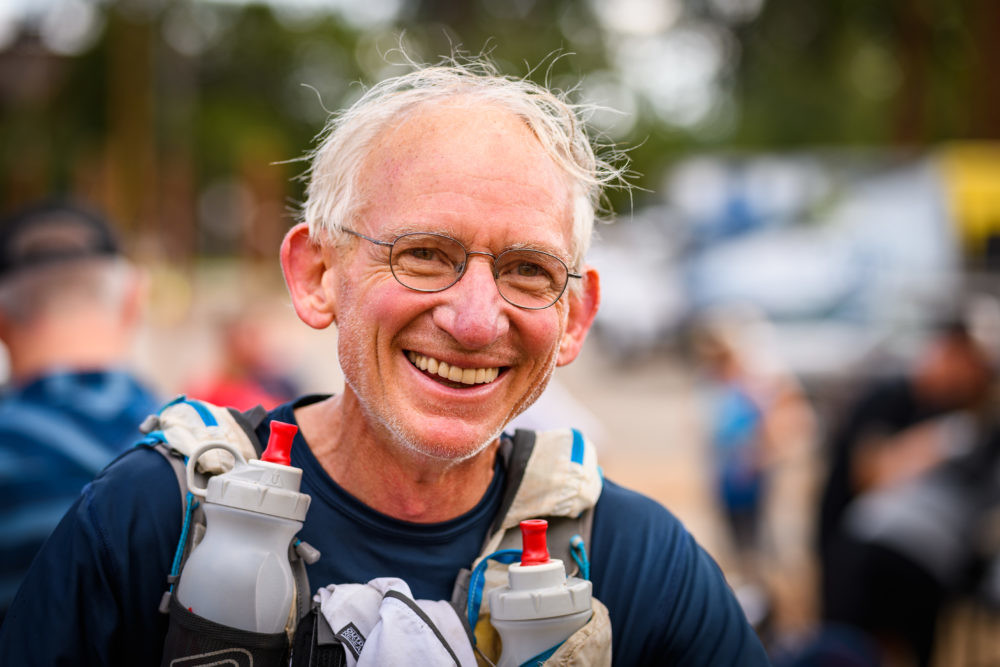
According to Dykes, the weather for Sunday’s race in Caumsett State Park was sunny, moderately windy, and not too hot, with temperatures hovering in the low 20s (Celsius) for most of the event. In a brief conversation with him after the race, he told Canadian Running (in a half-joking, half-serious manner) that he credits Canada’s late Ed Whitlock, one of the most decorated masters runners who ever lived, with his new 50K record.
“Thank you, Ed Whitlock, for never running a 50K,” he says.
Dykes is still aiming to take down Whitlock’s M70 marathon world record of 2:54:48, which he will attempt to do at this year’s London Marathon on October 3.
by Running Magazine
Login to leave a comment
Michael Versteeg wins inaugural Cocodona 250-miler, Maggie Guterl still running in 7th overall
Ultrarunner Michael Versteeg of Prescott, Ariz., won the inaugural Cocodona 250-miler on Thursday morning, crossing the finish line in Flagstaff after 72 hours of racing. Versteeg finished ahead of Flagstaff local Peter Mortimer, who is still in the final miles of his run toward second place. Maggie Guterl is currently the top woman in the race, and at the time of writing, she completed 228 miles (366K) of what event organizers describe as a “250ish-mile footrace,” which works out to a total of about 400K. Guterl sits in seventh overall
Versteeg’s win
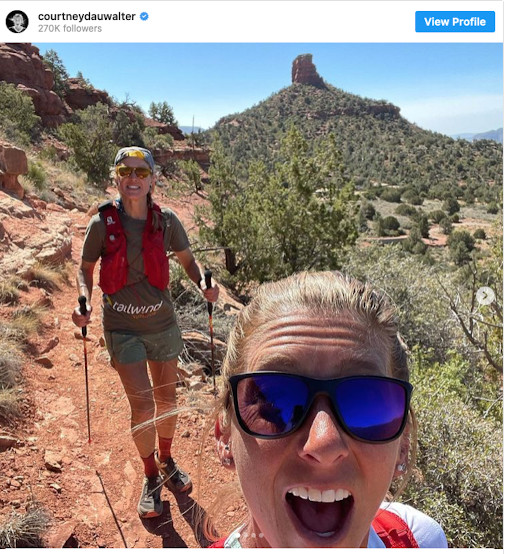
This is the inaugural running of the Cocodona 250, which was organized by the team at Aravaipa Running. The race started in Black Canyon City, about an hour north of Phoenix. From there, runners travelled north, passing through multiple towns (including Versteeg’s hometown of Prescott) before eventually making it to Flagstaff, 1,500m higher above sea level than where the race started. In total, the race features close to 13,000m of elevation gain, which is like running the height of one and a half Mount Everests.
The uphill battle, the heat of the desert and the sheer distance of the race didn’t stop Versteeg, who was at the front of the race throughout the 400K journey. This isn’t Versteeg’s first time stamping his name in the history books, as he won Aravaipa Running’s inaugural Whiskey Man Series in 2016 as well. On top of that, he has recorded many other ultramarathon race wins.
The chasers
Among the chase group (which is the rest of the Cocodona field, as Versteeg is the only finisher so far) is Guterl, who is in seventh place and currently being paced to the finish by fellow American ultrarunning star Courtney Dauwalter. Guterl and Dauwalter know each other well, and earlier this year, they both competed at the Barkley Marathons (although, like everyone else at this year’s race, they registered DNFs).
Like Dauwalter, Guterl is well known in the world of ultrarunning, and she has several big race wins to her name, including Big’s Backyard Ultra in 2019. Now, Guterl is looking to add another win to her resume, and with a 16K lead on the second-place woman Jessi Morton-Langehaug, the Cocodona crown is hers to lose.
Also racing this week was Gene Dykes, a 73-year-old runner from Pennsylvania who owns multiple age group records, including the American 100-mile and 24-hour bests (21:06:07 and 179.98K). Unfortunately, Dykes didn’t make it to the finish line, and he (along with close to 60 other runners, so far) recorded a DNF.
The race is ongoing, and despite the many DNFs, there are still dozens of other runners on the course making their way to the finish. To track live results of the Cocodona 250, click here.
by Running Magazine
Login to leave a comment
Lynn Rathjen of Grand Island broke the American age-group record in the mile August 9th
Lynn Rathjen, a high school cross-country coach and retired physical therapist in Grand Island, Nebraska, has been running consistently for the past 40 years. But he didn’t give a whole lot of thought to setting age-group records until his son, Andrew, looked them up.
As Rathjen was approaching a new age category—he turned 75 in January—a few marks suddenly looked attainable. He signed up for the USATF indoor and outdoor masters championships, with the goal of gunning down some fast times.
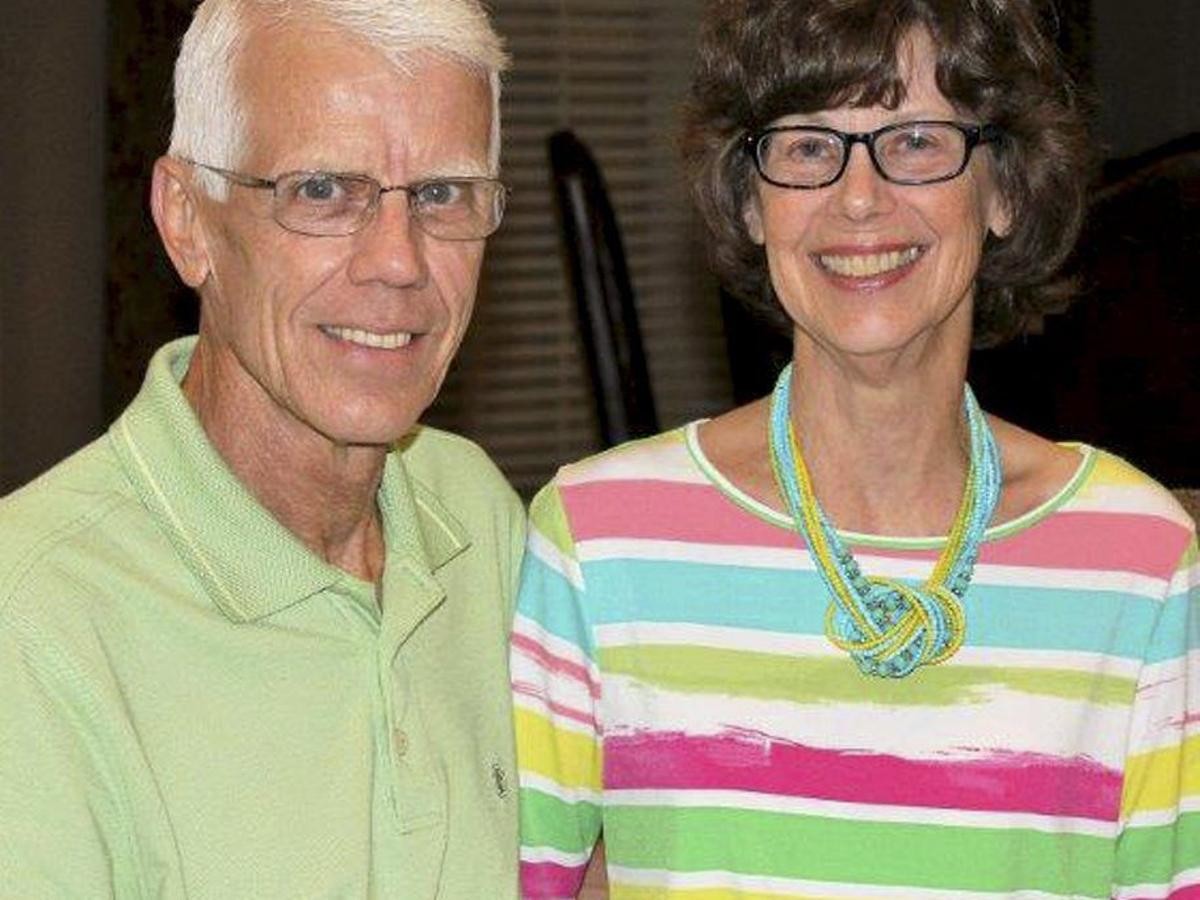
Then COVID-19 intervened, canceling the races Rathjen had targeted. But on August 9, at the socially distanced Lincoln Mile in Nebraska, he got his shot—and set an American 75–79 record for the road mile, running 5:59.18.
Rathjen took more than 17 seconds off the previous record, 6:17, set by multi-time masters champion Doug Goodhue in 2017. Rathjen ran mostly evenly, he said, hitting 3:00 for the half-mile split, slowing slightly on his third quarter, and finishing strong.
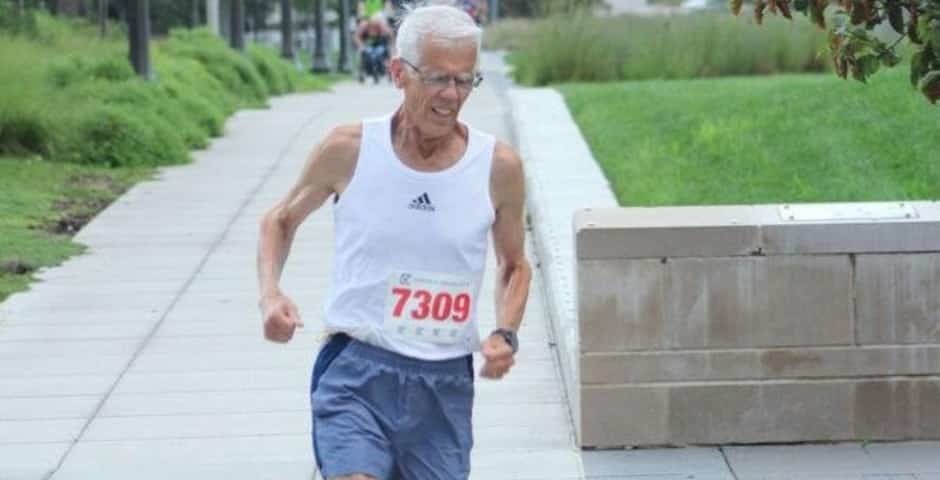
“I had a good sprint at the end,” he said, “and I could see the overhead big clock, which was a motivator in getting under 6:00.”
Rathjen was a strong high school runner, but he gave up the sport until he was about 35. Since then, he’s been running consistently, but never with high mileage—he rarely exceeds 20 miles per week in an effort to preserve his good health. In his practice as a physical therapist, he saw many runners who progressed too quickly from beginners to the marathon over the course of a year or two, before sidelining themselves with debilitating injuries.
Runners in their 70s who stick to the track and shorter distances on the roads continue to rewrite the American age-group records books. It’s not just the celebrity marathoners, like Gene Dykes and Jeannie Rice, who are lowering times; athletes like Patton, Goodhue, and Paul Perry, who earlier this year ran fast times indoor times for the 3,000 meters and mile at the Armory in New York, are finding success as well.
by Sarah Lorge Butler
Login to leave a comment
Why you can still run your fastest marathon after 50
Back in 2014, in a bid to identify the best age for marathon running, a team of Spanish researchers analysed the finishing times of 45,000 athletes at the New York City Marathon.
The results found that for men the golden age was 27 and for women 29. More surprising, perhaps, was the discovery that 18-year-old marathon runners had similar times to 60-year-old athletes. While that result can be partly explained by 60-year-old runners’ experience at the distance, there’s also some science to suggest why masters runners can still post some incredible times over the marathon.
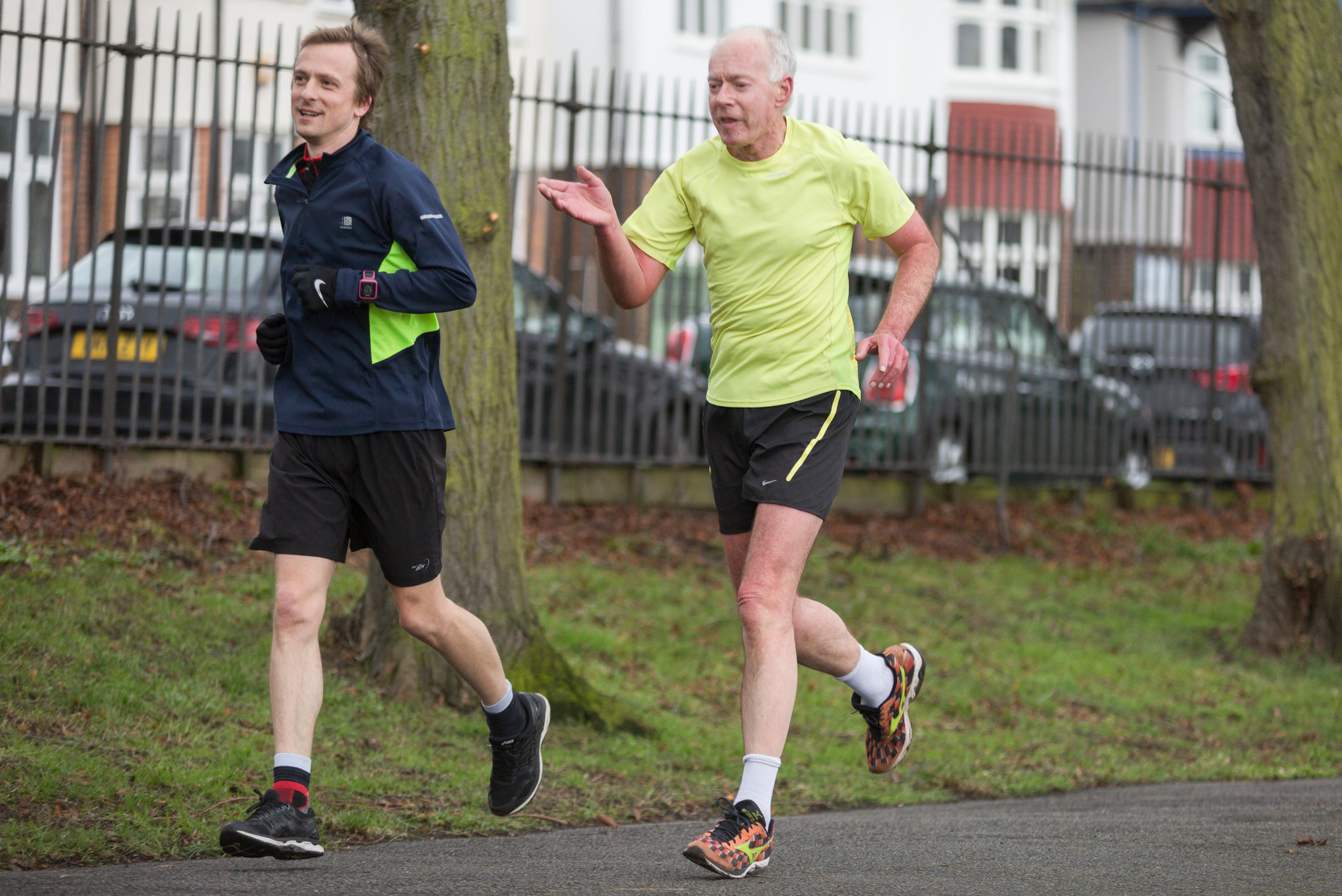
Take Tommy Hughes. The 59-year-old Northern Irishman ran a time of 2:27:52 at last year’s Valencia Marathon, finishing just under four minutes faster than his son, Eoin, 34, who posted a time of 2:31:30. (Their combined time of 4:59:22 was a Guinness World Record for fastest father-and-son duo.)
Following the result, the Hugheses took part in various physiological tests. Among other things, this tested their respective VO2 max (the amount of oxygen you can use while exercising). While Tommy and Eoin had very similar VO2 max scores – 65.4ml/kg/min for Tommy and 66.9ml/kg/min for Eoin – Tommy was seemingly able to run entire marathons at close to his VO2 max. Interestingly, the same is seemingly true of Gene Dykes, who ran a 2:54:23 marathon at the age of 70. The data would seem to suggest he ran the entirety of that race at 95 per cent of his VO2 max – an unbelievably high percentage.
So, one reason why it may be possible to run a blistering marathon in your fifties and beyond is some older runners’ ability to run close to their VO2 max for longer periods than some of their more youthful competitors.
But there’s more: another study showed that lifelong exercise can counteract the age-related decline in VO2 max. In other words, if you’ve been running consistently for decades, your VO2 max will not decline at the same rate as your more sedentary peers.
That’s an interesting development, as there has previously been a belief that at a certain age – approximately around 70 – people’s VO2 max falls off a cliff. By contrast, the study suggests that the steepest declines occur as a result of exercising less, not simply of adding another candle to your birthday cake.
by Runner’s World
Login to leave a comment
After over 50 hours ultrarunner Mike Wardian runs 63 laps for 422K to win the virtual race Quarantine Backyard Ultra
The Quarantine Backyard Ultra started Saturday morning, and over 2,400 runners from more than 50 countries joined the virtual race. Runners ran 6.706K every hour for as long as they could, and over 60 hours later, only two runners remained: American Mike Wardian and Radek Brunner of the Czech Republic. Brunner missed the start of the 63rd lap and was therefore disqualified, making Wardian the winner after 422K.
With every passing lap of the Quarantine Backyard Ultra, more and more of the world’s best ultrarunners dropped out and registered DNFs. Last year at the Big’s Backyard Ultra, Maggie Guterl ran 60 laps for 402K, but a nagging back injury forced her to pull out of the race this weekend after just nine laps.
After 15 laps and 100K, Jamil Coury called it a day. Three laps later, Canadian Cal Neff dropped out. At the 100-mile mark, Courtney Dauwalter threw in the towel, along with 72-year-old Gene Dykes. Later on, after 31 laps, Canadian Dave Proctor (who helped bring the event into fruition), had to end his race due to back pain.
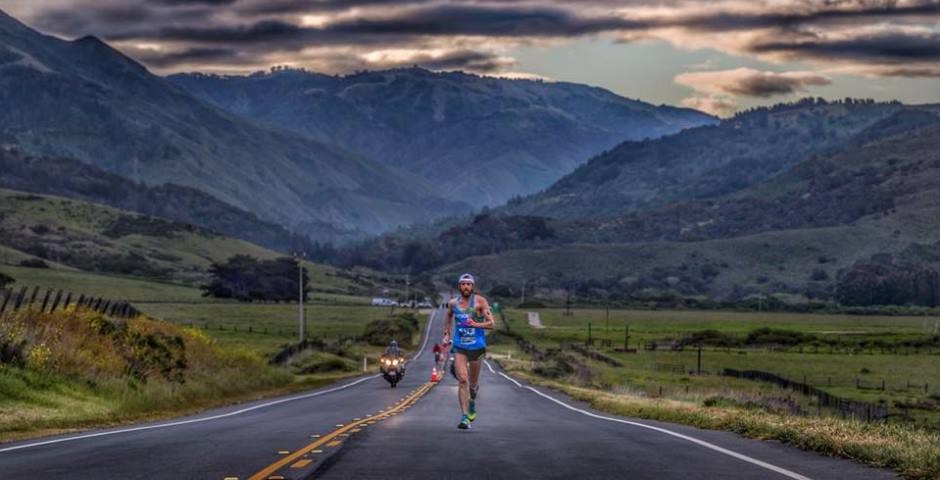
“It was a bit of a tough day for sure,” Coury said. “I was hoping to go as long as I could— 24 or 30 hours—but you never know with these things.” Although he didn’t get as far as he would’ve liked, Coury cut himself some slack, seeing as he’d run a marathon around a 27-metre course just four days earlier. In fact, just making it in time to race at all was an accomplishment for Coury, who slept at his office the night before and woke up only minutes before the event began.
“I was working late on Friday night, and i fell asleep at my office,” he said. “I fortunately had a pair of shoes and socks in my truck. I threw it on, started my livestream and just ran out the door.” Coury ran the first seven hours around his office’s neighbourhood, returning to finish work between laps. He eventually drove home (he made it to his treadmill with three minutes to spare before the start of the next lap) and made it to 100K before bowing out.
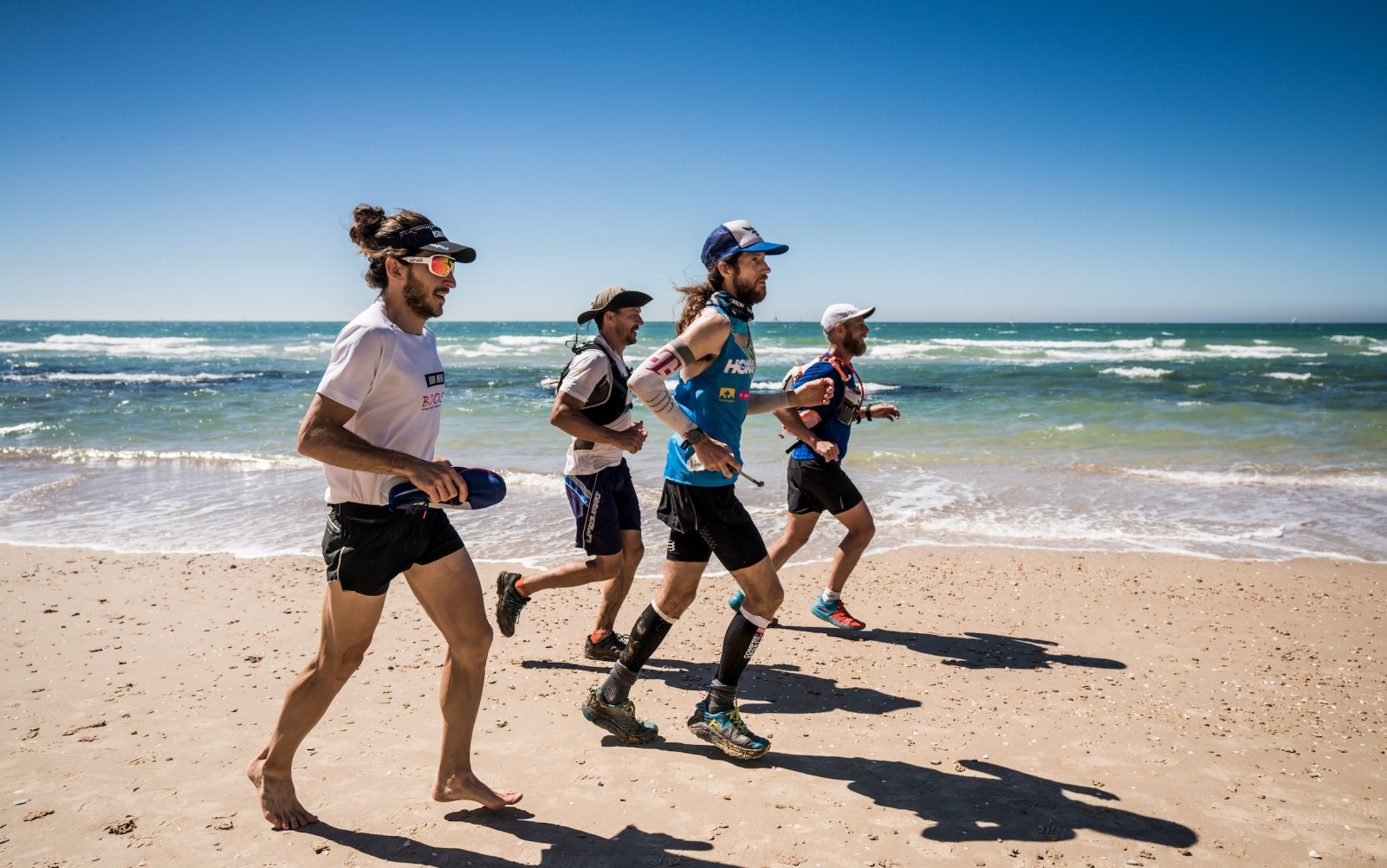
Dauwalter said she got to the 100-mile mark and decided that was “a solid day.”
“When I signed up I didn’t have major plans,” she said. “I wanted to make it at through the night, because that’s always special and fun to see the sunrise.” She did make it through the night, got her sunrise and retired from the race soon after.
“I think this is a really fun format,” she said. “It’s great with the camaraderie. You come back from a lap and go on the Zoom chat with the other runners.” Proctor also noted how fun it was to chat on the Zoom and YouTube feeds.
“It’s so unique,” he said. “When all the runners go off and do their thing, I get extraordinarily busy talking to everybody on YouTube.” He said that he spent around half of his time on the treadmill answering questions viewers had posted on the YouTube live video.
“I found that it was really quite rewarding. It gets your mind off of what you’re doing and it gives you something [else] to do.” While they were both still in the race, Proctor and Coury teamed up and answered questions together, adding some fun banter to the mix as well.
The two finalists had very different setups for the final laps. Brunner ran solo in his house on a treadmill while Wardian took to the streets with a support crew and several cyclists riding alongside him as he ran. The winner of multiple U.S. national titles at ultra distances, Wardian is well known in the running community. He has run the Western States 100 and the Ultra-Trail Du Mont-Blanc multiple times, and he finished 11th at the 2011 Comrades Marathon and third at the 2010 Marathon des Sables.
Brunner is more of an unknown, at least in the North American ultra community, but like Wardian, he has an impressive running resume. He has represented the Czech Republic on multiple occasions, competing at the 24-hour, 100K and trail world championships. At the 2017 24-hour worlds in Ireland, Brunner came 14th. He has also run to the podium four years in a row in the Spartathlon, a 246-kilometre ultramarathon in Greece. Although he didn’t win, after this run, Brunner’s name has become much more well known in the ultrarunning community.
by Ben Snider-McGrath
Login to leave a comment
More People Are Running Ultras Than Ever Before That’s not a guess. It’s a scientific fact.
Ultrarunning has become more mainstream over the past few decades as many runners have turned their attention to the trails to go beyond 26.2.
That’s not just an opinion, it’s a scientific fact backed by the research conducted by RunRepeat and the International Association of Ultrarunning, which teamed up to examine 5,010,730 race results from 15,451 races—roughly 80 percent of all ultras believed to have taken place worldwide since 1996.
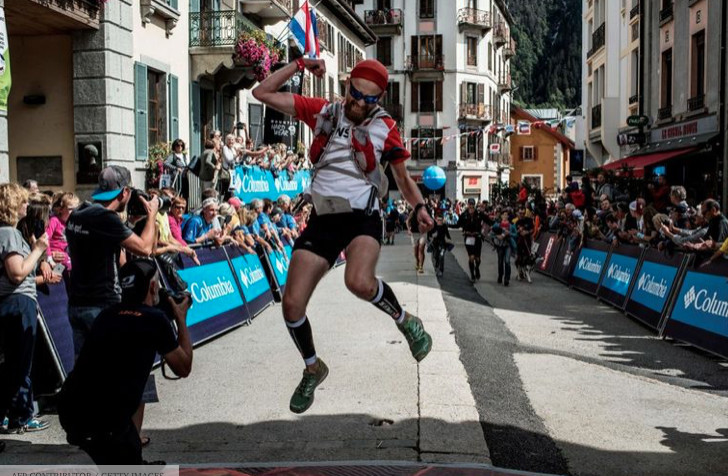
With that much data, we can safely make some conclusions about the sport and where it’s headed. (You can read the entire report RunRepeat.) Here’s what stood out to our Runner’s World editors.
It’s no surprise that as ultramarathons enter the mainstream, more people are signing up for races. This is a huge change compared to road races—5Ks have seen a decline since 2015, according to a RunRepeat and World Athletics study, while marathons have leveled off. In comparison, ultras have grown 345 percent since 1996 from 34,401 ultrarunners in 1996 to 611,098 in 2018.
That’s not to say everyone is doing the extreme distances. In fact, only about a quarter of ultrarunners prefer distances over 50 miles .
There is still a massive gender disparity in the ultrarunning world. In 2018, only 16 percent of race participants were female. Yikes! Work needs to be done to rectify that, but the current trend is promising.
That 16 percent represents around 97,700 women, whereas around 4,800 total women competed in ultras in 1996. The overall percentage still needs to tighten up, but it is exciting to see that there have never been more women going beyond 26.2 than right now.
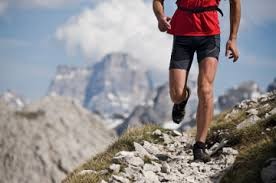
Most numbers seem to point up in the study, except for the average pace we see in races longer than 26.2. On average, ultrarunners are moving at about at 13:16-per-mile pace. That’s 1:41 per mile more than in 1996 when the average pace was 11:35. This is likely because of the increase in amateur participation.
That becomes clearer when we look at the longer race paces that actually become faster when the race is longer. Over 50 miles is typically where you’ll find the most dedicated ultrarunners, which translates to more training and faster times. With this is mind, it also makes sense that the longer distance paces have remained fairly steady over the years whereas the 50K distance has seen the biggest slow down in pace, going down more than 2 and a half minutes slower than in 1996—a 23-percent change.
The average pace may be declining, but females are gaining on—and even passing in some circumstances—the men.
Women have slowed down from a 12:25 to a 13:23—40 seconds—at all distances above the marathon. However, men have slowed down from 11:24 to a 13:21—a 1:57 difference. Yes, that’s a two-second difference between the average paces for the genders.
However, women, on average, are faster than men by 0.6% during races longer than 195 miles. We think Courtney Dauwalter, Camille Herron, and Maggie Guterl would agree with that information.
The average age of participants has gone down by a little over the last decade—43.3 years old to 42.3. It’s not a huge shift, but it’s still a sign that the participants are skewing a little younger.
That’s unlike the rest of the running world that has seen all race’s average ages steadily increase since 1996. When we look at the 5K to marathon, the average age goes up from 39.3 to 42.5, according to a RunRepeat and World Athletics study. The study states this is likely because of more dedicated runners sticking with it into their 60s and 70s.
Don’t let age fool you though. Anyone can run. Take it from George Etzweiler and Gene Dykes.The Demographic Is Getting Younger
The average age of participants has gone down by a little over the last decade—43.3 years old to 42.3. It’s not a huge shift, but it’s still a sign that the participants are skewing a little younger.
That’s unlike the rest of the running world that has seen all race’s average ages steadily increase since 1996. When we look at the 5K to marathon, the average age goes up from 39.3 to 42.5, according to a RunRepeat and World Athletics study. The study states this is likely because of more dedicated runners sticking with it into their 60s and 70s.
Don’t let age fool you though. Anyone can run. Take it from George Etzweiler and Gene Dykes.
The U.S. does Lag Behind the Rest of the World. Some of the best ultarunning talent in the world might come from the U.S. for both men and women, but overall, the country’s average pace is ranked eighth. Taking the podium spots when it comes to average speed over all distances beyond 26.2 miles are:
South Africa (10:36 average pace). Sweden (11:56). Germany (12:01)
After that, the Netherlands (12:41), United Kingdom (12:44), Belgium (13:03), and Australia (13:18) rank ahead of the U.S (13:22).
by Runner’s World
Login to leave a comment
It may come as a surprise, but Nike's popularity is not growing as fast among Strava users as other brands
The running/cycling/social media platform Strava, which is celebrating its 10th anniversary, has just published its much-anticipated Year in Sport. One of the most striking pieces of information in it, not surprisingly, concerns shoes. The fastest-growing shoe on Strava is not the Nike Vaporfly or NEXT%, as you might expect. In fact, it’s not even close.
That distinction belongs to the HOKA Carbon X, the brand’s carbon-plated racing shoe introduced last summer and worn by two-time Western States champion Jim Walmsley when he set the 50-mile world record in California in May 2019.
The second-fastest growing model is the Adidas Solar Glide, and the third is the Fresh Foam Beacon by New Balance, one of the shoes favored by American ultrarunner and multiple age-group record-holder Gene Dykes.
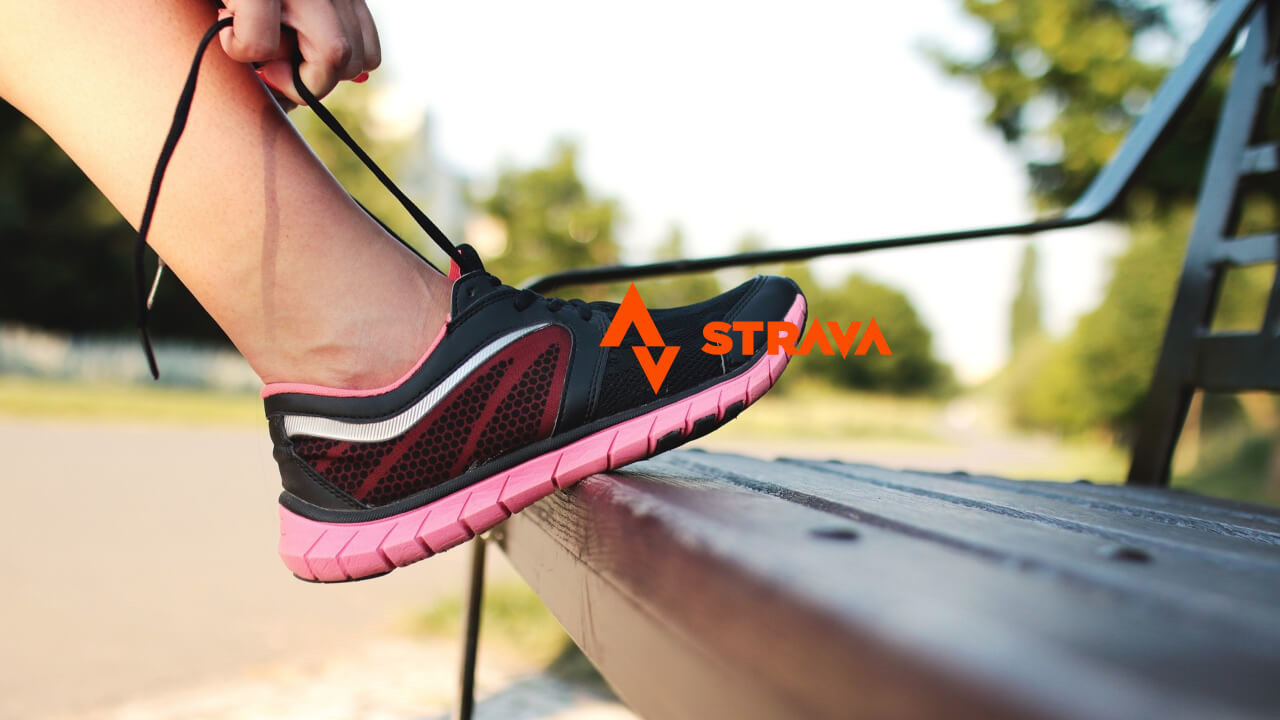
What the research did show, however, is that among Strava runners who ran the World Major Marathons and logged what shoe they were wearing, Nike NEXT% wearers posted the fastest times. Three guesses as to which shoe was next fastest: that’s right. The Vaporfly.
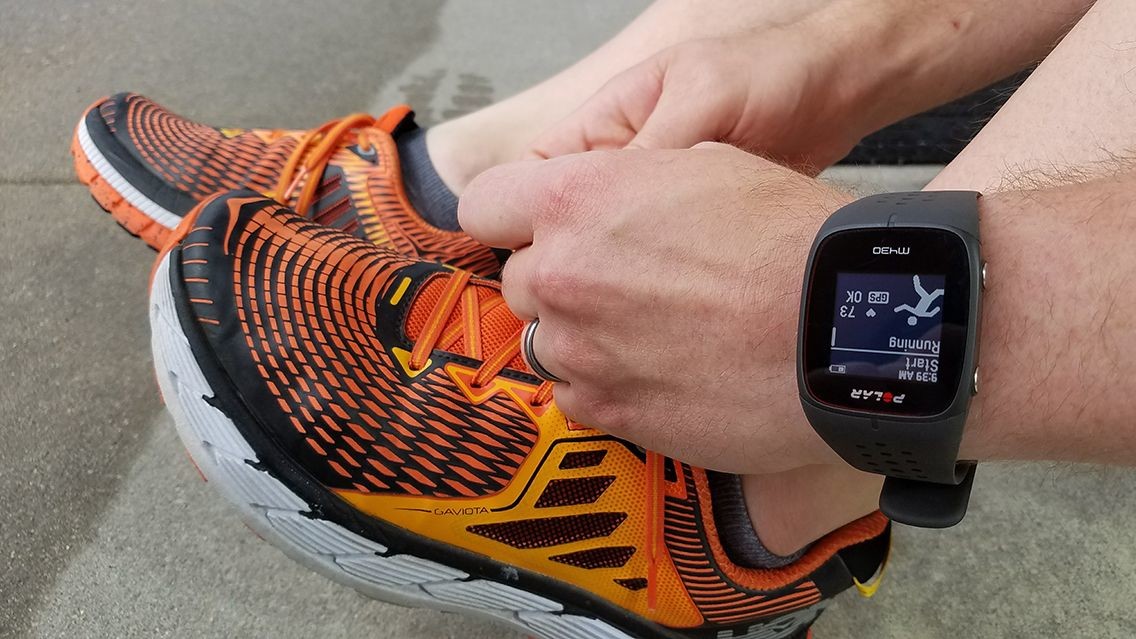
Some other interesting facts emerging from Strava’s research over the past year: we knew that running is hugely popular in Japan, but the Japanese are not stopping at the marathon–according to Strava in 2019, the island nation has more ultramarathoners per capita than any other country in the world.
Further, almost 24 per cent of runners in Japan have completed a marathon or ultra. That’s an increase of 23 per cent over last year, and more than double the percentage of marathoners and ultrarunners in the next most marathon-mad country, France (which had 10.4 per cent). The US was third, with 7.6 per cent.
by Anne Francis
Login to leave a comment
Joyciline Jepkosgei wins the New York City marathon out running last year’s winner and Geoffrey Kamworor wins the men race
The world record holder for the women's half marathon running 1:04:51 in 2017, Joyciline Jepkosgei in her marsthon debut out-ran last year's winner Mary Keitany to win this year's New York City Marathon clocking 2:22:38. Keitany finished second in 2:23:32. Both are from Kenya.
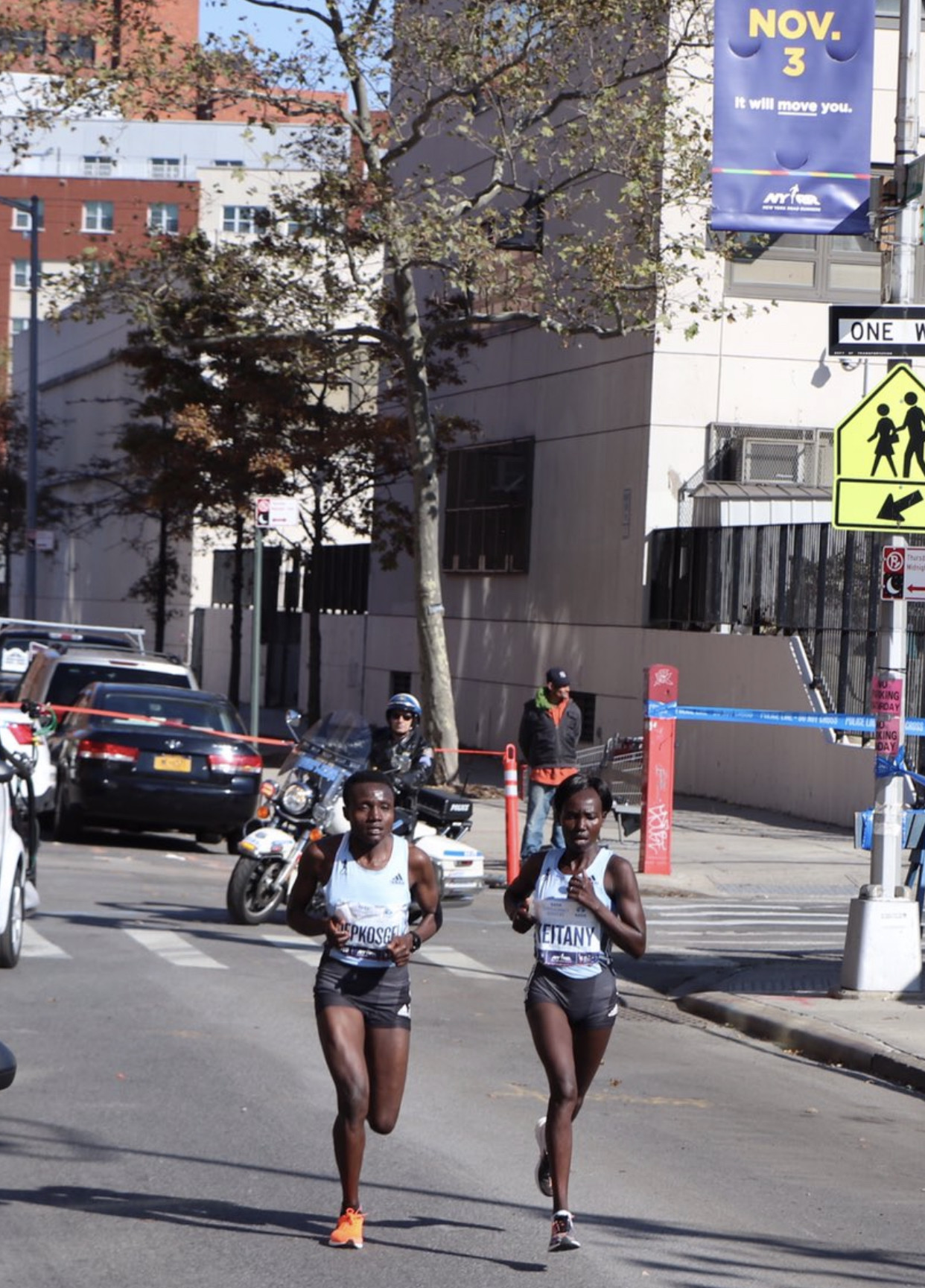
Boston Marathon champion Desiree Linden lead much of the first half and held on to be the first American placing sixth running 2:26:49 just three seconds ahead of Kellyn Taylor also from the US who ran an amazing well paced race.
Australian, 42-year-old Sinead Diver placed 5th clocking 2:26:23. At one point early she took the lead and looked in control.
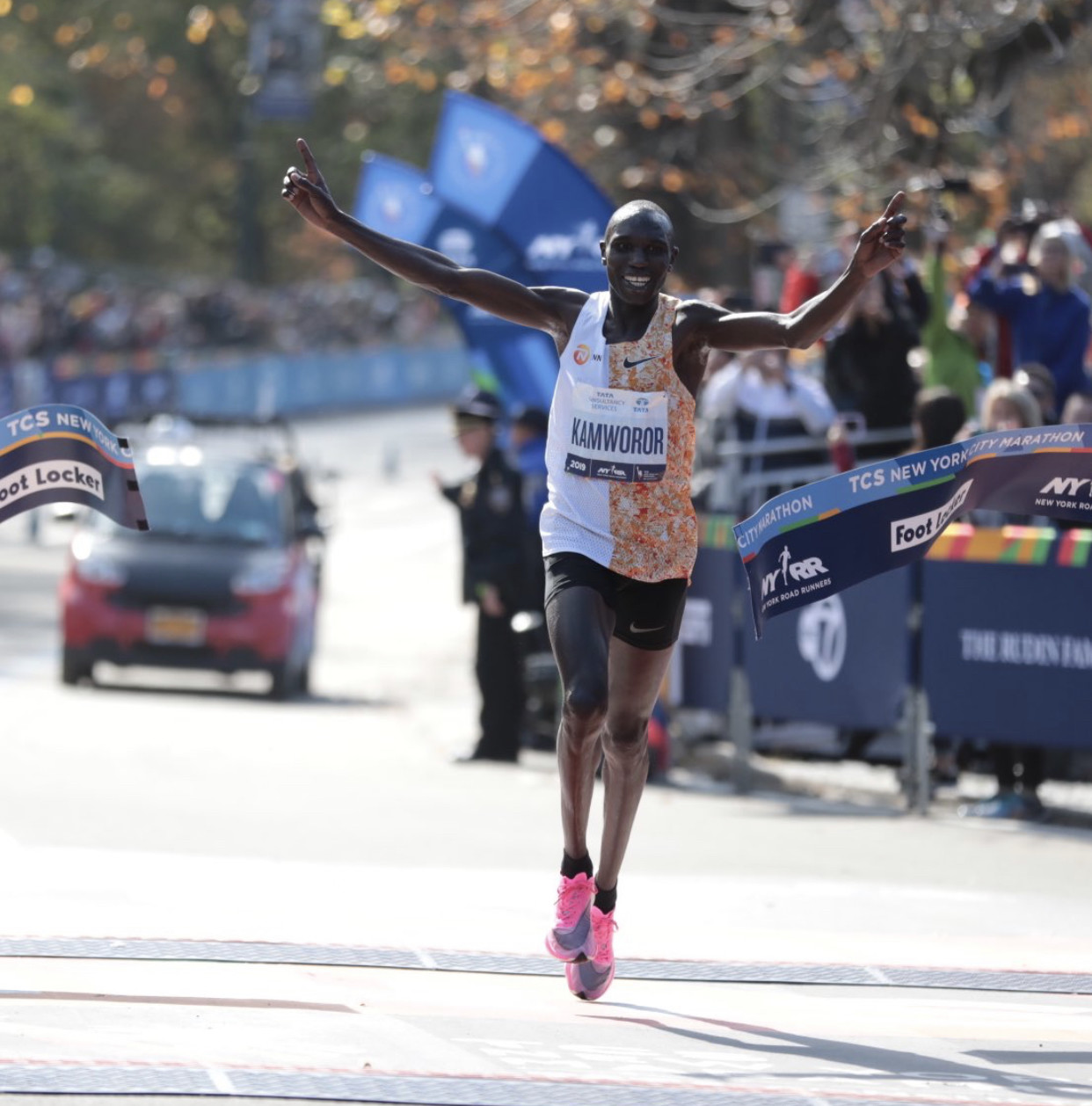
It was 46 degrees at the start and the wind at points did slow down the times. Over 52,000 runners started.
Kenyan's Geoffrey Kamworor who set the world record for the half marathon in Copenhagen running 58:01 in September ran away from the field to win the men's race clocking 2:08:13. This was his second win. Albert Korir placed second clocking 2:08:36.
Jared Ward was sixth overall and first American clocking 2:10:45. There were many outstanding performances today. 71-year-old Gene Dykes finish with 3:11:19.
Login to leave a comment
TCS New York City Marathon
The first New York City Marathon, organized in 1970 by Fred Lebow and Vince Chiappetta, was held entirely in Central Park. Of 127 entrants, only 55 men finished; the sole female entrant dropped out due to illness. Winners were given inexpensive wristwatches and recycled baseball and bowling trophies. The entry fee was $1 and the total event budget...
more...Gene Dykes was hoping to break Ed Whitlock's M70 record at STWM, but a lingering illness has taken him out of contention
Gene Dykes, who came close to breaking the late Ed Whitlock’s M70 marathon world record at last year’s Scotiabank Toronto Waterfront Marathon, and broke it unofficially in Jacksonville, Florida in December (on a non-record-eligible course) was hoping to make another attempt at this year’s Scotiabank Toronto race on October 20, but has decided to bow out due to illness and the resulting loss of training time.
Whitlock’s record, set in 2004, is 2:54:48. He was the only person ever to run a sub-3 marathon over age 70 until Dykes, who has now done it four times: first in Rotterdam in 2018, where he ran 2:57. At last year’s Scotiabank Toronto (which doubled as the World Masters Marathon Championships), he ran 2:55:18, missing Whitlock’s record by 30 seconds. At Jacksonville, he ran 2:54:23, breaking the record by 25 seconds–or so he thought, until he discovered that although the course is certified, the race is not USATF-sanctioned, which means you can’t set records there. At Boston this year he ran 2:58:50, shattering his own age-group course record of 3:16:20.
Dykes is optimistic he is on the mend, and has a number of fall races scheduled, including a 100K in Texas this weekend, a small marathon in Maine (on the same day as he would have raced Scotiabank), and the New York City Marathon on November 3.
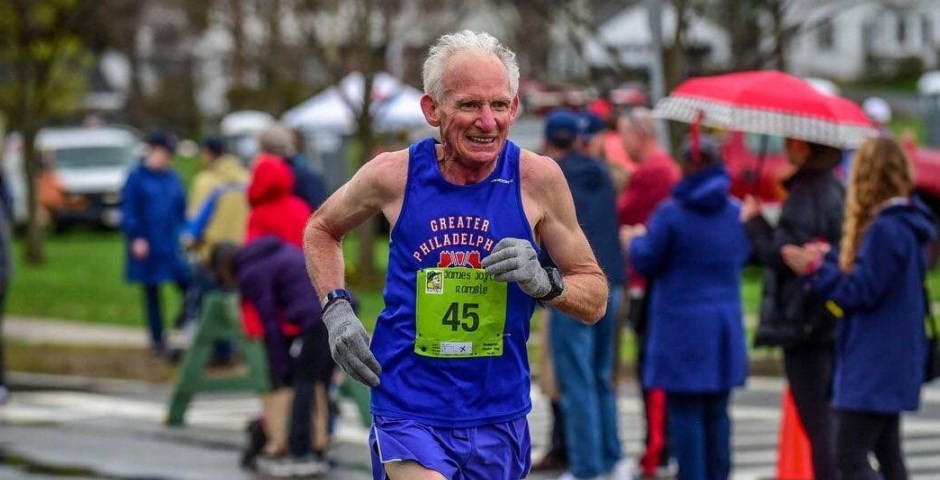
Dykes remains the only living human over 70 years of age to run a sub-3 marathon.
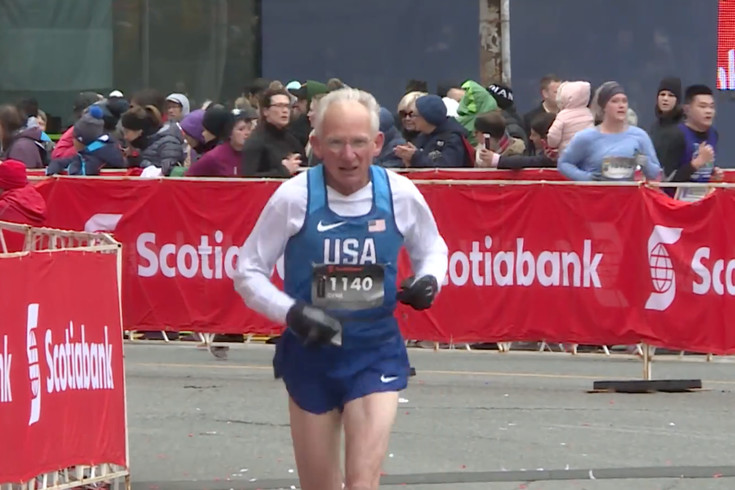
by Anne Francis
Login to leave a comment
TCS Toronto Waterfront Marathon
The Scotiabank Toronto Waterfront Marathon, Half-Marathon & 5k Run / Walk is organized by Canada Running Series Inc., organizers of the Canada Running Series, "A selection of Canada's best runs!" Canada Running Series annually organizes eight events in Montreal, Toronto and Vancouver that vary in distance from the 5k to the marathon. The Scotiabank Toronto Waterfront Marathon and Half-Marathon are...
more...Gene Dykes did it again by setting new US 100-mile and 24-hour M70 records in Pennsylvania
Gene Dykes, aka the #Ultrageezer, is a modest fellow, not given to trumpeting his achievements (especially after discovering that his takedown of Ed Whitlock’s M70 marathon world record at Jacksonville in December 2018 would not be ratified due to the race not being a USATF-sanctioned event).
This could be why we only just learned that last month at the Dawn 2 Dusk 2 Dawn 24-hour ultramarathon in Sharon Hill, Pennsylvania (not far from where he lives), in the pouring rain, Dykes quietly broke the M70 100-mile and 24-hour track records.
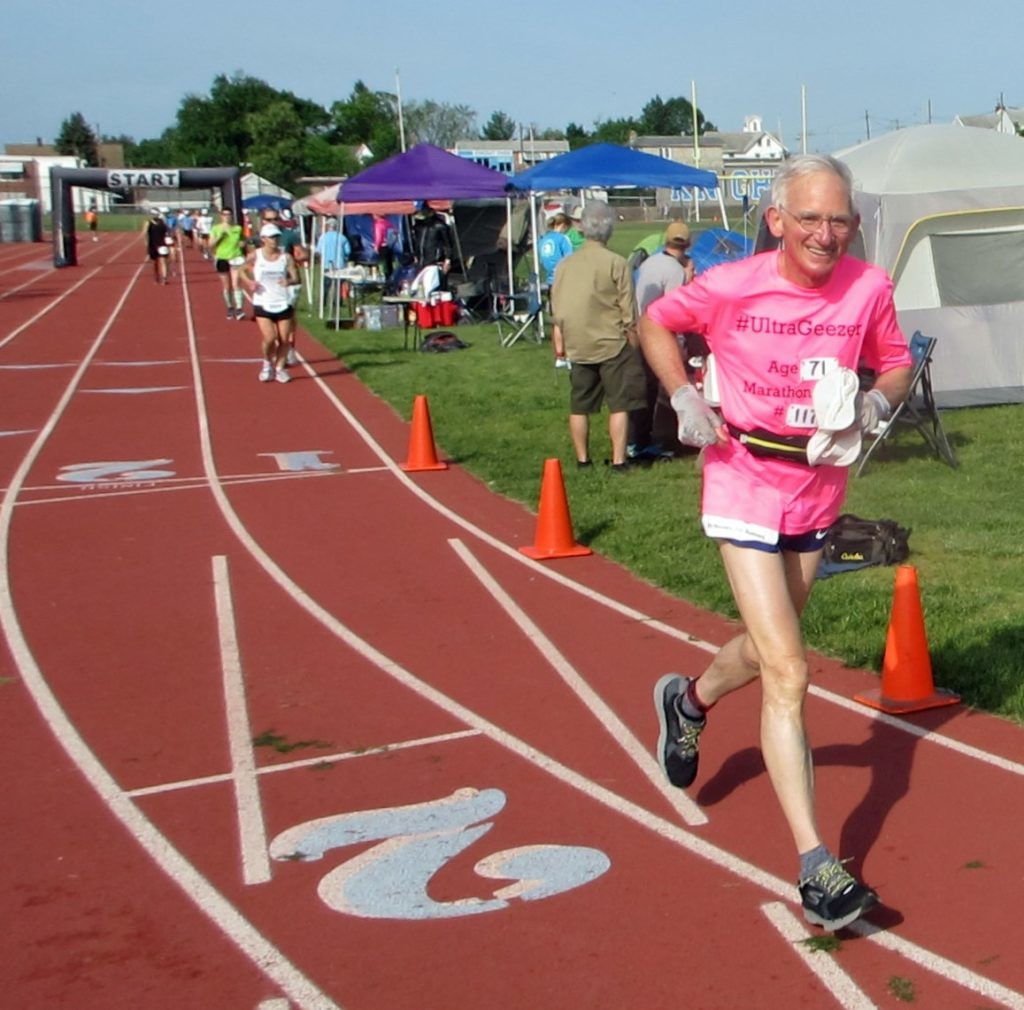
Dykes ran 100 miles in 21:06:07 and 111.79 miles (179.98K) over 24 hours. Records are ratified by the American Ultrarunning Association, though Dykes’ latest records have not been updated on the site. The previous records were both held by Edson Sower, 72, of Arizona, at 22:01:34 and 172.80K.
However, if you take a look, you’ll see that Dykes already holds the US age-group records in the 50K, 50-mile, 12-hour, and 100K categories. He set those last year at the same race.
“I am starting a 24-hour race,” Dykes posted on Facebook beforehand. “By 7:03, I will have seen the entire course!”
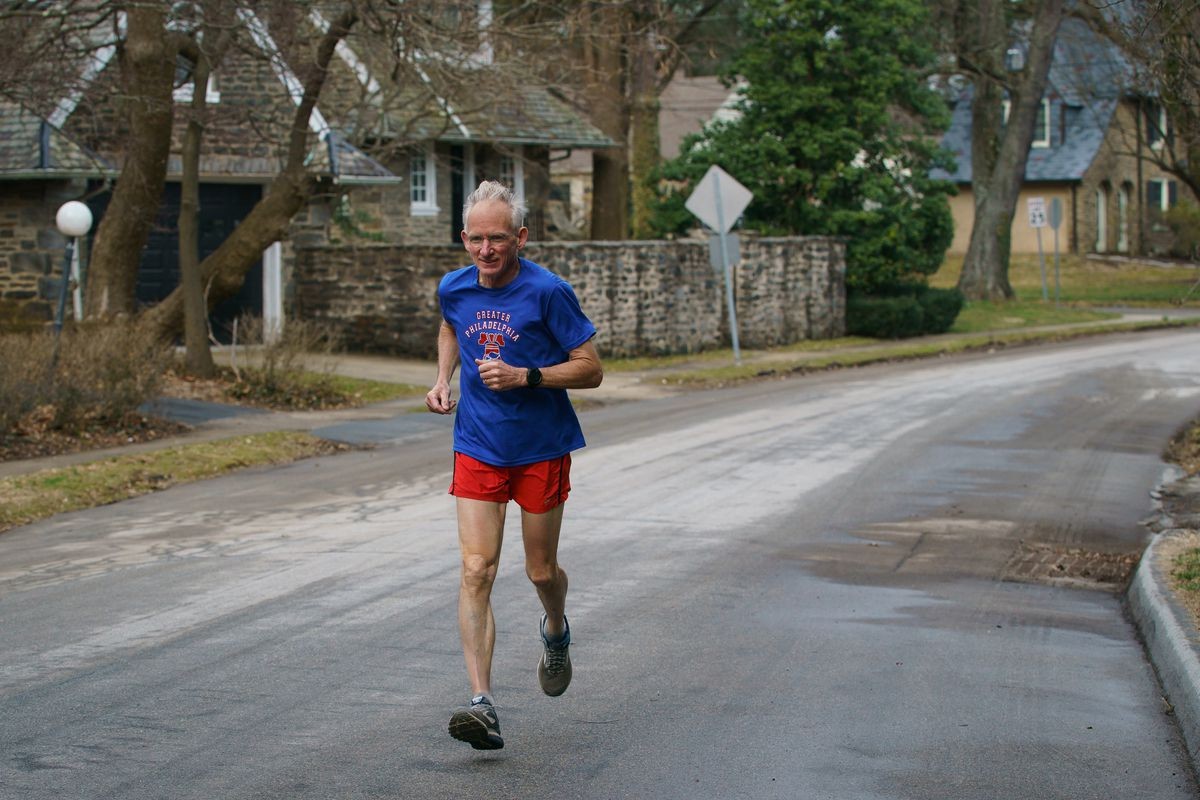
“I really have mixed feelings about fixed-time races,” Dykes goes on, “but the main feeling is, ‘I should really have my head examined!’ …The main reason I occasionally do them… is that I like to get out of my comfort zone now and then, but this race was WAY out of my comfort zone!”
As so often happens at long races, the weather changed drastically over the course of the day, and never conformed to what was forecast. “The forecast was promising–cloudy during the day with a high in the upper 60’s and showers at night–but what we got was something altogether different. Brilliant sunshine all day, and, not being prepared for that, I got some nasty sunburn on my calves.
At night it was cold, rainy, and windy–not the light rain I expected. Fortunately, I brought along a down jacket, which I wore under my raincoat, and heavy wool gloves.”
by Anne Francis
Login to leave a comment
Gene Dykes, 71, is looking to break the Big Sur International Marathon record for his age group this weekend
For someone who has done two marathons 24 hours apart, two weeks between Boston and Big Sur may seem like an eternity for Gene Dykes.
Unlike others that have challenged themselves by doing the two marathons in a short time span, it’s not the reason Dykes is running in Sunday’s 34th Big Sur International Marathon.
Instead, the Philadelphia resident is calling it unfinished business from his last trip out west to run the world-renowned course.
“They took my record away when I was 65,” Dykes said. “I owned the course record in my age class for about two months. Then it was discovered on paper that someone ran faster years earlier.”
Ray Piva set the record in the 65-69 age division in 1992 at 3 hours, 10 minutes. Dykes ran 3:26.44 in 2013.
Dykes, 71, can’t get that record back. But he’s looked at the record in the 70-older division — 3:46.36 by Heinrich Gutbier in 1997. His eyes are set on rewriting the mark, adding to his mantel of record-setting accomplishments of late.
“I shouldn’t have trouble beating that mark,” said Dykes, who broke the Boston Marathon record in his age group on April 15, clocking 2 hours, 58 minutes, 50 seconds. “It’s how fast do I want to go.”
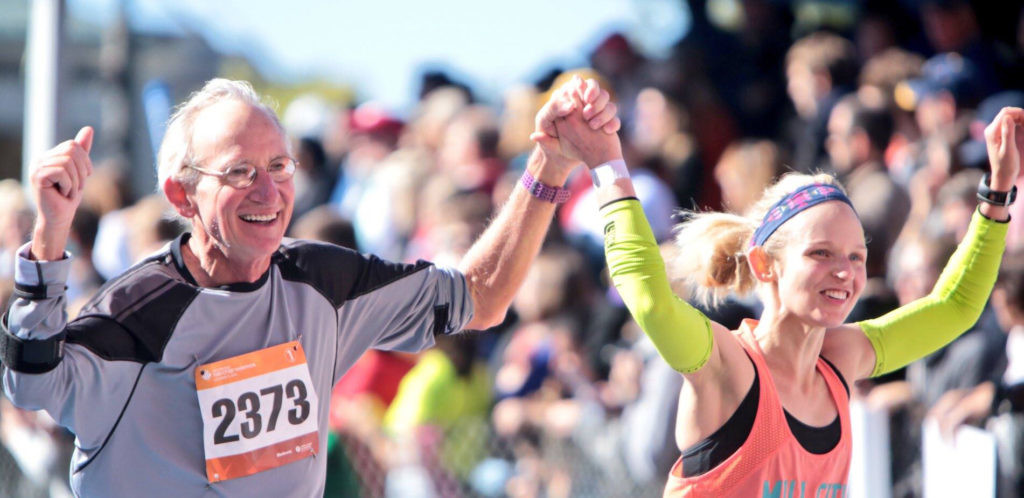
What could derail Dykes from shattering the record is he will run the race with his daughter, who is roughly 30 minutes slower than him in a marathon.
“It will depend on how long we run together,” Dykes said. “I’m going to try and get her to run a little harder in the first half. Then I’ll do a negative split the last half of the race.”
While Dykes is six years older than during his last appearance on the Monterey Peninsula, he’s gotten faster covering marathons of all kinds. Most of his personal bests have come in the last year.
“I hired a coach a few years back,” Dykes said. “I just keep dropping time. It’s more of a retirement achievement.”
This will be Dykes’ third crack at Big Sur, but the first time he’s running it after tackling Boston in the same year.
“I guess I’ve always wanted to do Boston-Big Sur,” Dykes said. “Running marathons close together is nothing new to me. It seemed like a good time to do it. Two weeks is plenty of time to recover.”
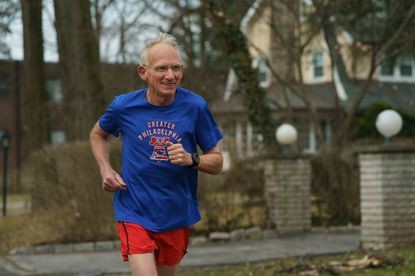
Dykes’ accomplishments as an ultra distance runner have gained nationwide attention. Last year, the Wall Street Journal labeled him “Earth’s fastest 70-year-old distance runner.”
After setting the record at Boston, men’s winner Meb Keflezighi tweeted “Special shout out to 71-year-old Gene Dykes, who ran an outstanding 2:58.50.”
For someone who didn’t run his first road race until 12 years ago, Dykes has become one of the top ultramarathon runners in his age class in the world.
“I was a jogger my whole life,” Dykes said. “I wasn’t very good in track in high school or college. I was a mediocre runner at best. So I golfed and bowled a lot. I jogged for fun.”
That is until Dykes got in with what he now jokes as a bad crowd — a group of runners, who talked him into his first road race, a half marathon in 2006.
From that point, running became an addiction. Dykes ran well enough that his time allowed him to bypass the lottery for the New York Marathon.
“I could not pass that up,” Dykes said. “So I ran my first marathon. I ended up earning a qualifying time for Boston. So I had to do that.”
By his estimation, Dykes will do 10 to 20 road races a year ranging from 200 miles to the regular 26-mile, 385-yard marathon.
“I race longer and more frequent,” Dykes said. “I’ve done five 200 milers. It’s an endurance race. The clock is running. You run when you can and sleep when you have to. I’ve done them in four days.”
Six weeks before Boston, Dykes completed a 200-mile race, a 100-mile event and two 50-mile races in 2019.
“Every year I try and stretch the boundaries,” Dykes said. “I don’t know if I can do it. So there’s only one way to find out. The hardest part is finding time to sleep. Four hours over four days isn’t much.”
Dykes comes into each race with a plan. After completing his ultra road races — totaling 400 miles — he began preparing for Boston with the mindset of breaking the record in his age division.
“I told my coach you’ve got six weeks to get me under three hours at Boston,” Dykes said
by John Devine
Login to leave a comment
Big Sur Marathon
The Big Sur Marathon follows the most beautiful coastline in the world and, for runners, one of the most challenging. The athletes who participate may draw inspiration from the spectacular views, but it takes major discipline to conquer the hills of Highway One on the way to the finish line. Named "Best Marathon in North America" by The Ultimate Guide...
more...Joan Benoit Samuelson and Gene Dykes clocked outstanding times at this year's Boston Marathon
There were many outstanding performances at the 2019 Boston Marathon. Two that really stand out are: Forty years after her first win at the Boston Marathon, Joan Benoit Samuelson scored a victory of a more personal nature during Monday’s 123rd edition of the race.
The Cape Elizabeth native and Freeport resident met her stated goal of finishing the 2019 race within 40 minutes of her winning time in 1979, completing the 26.2-mile trek from Hopkinton to downtown Boston in an even 3 hours, 4 minutes while running much of the marathon with her daughter Abby (photo).
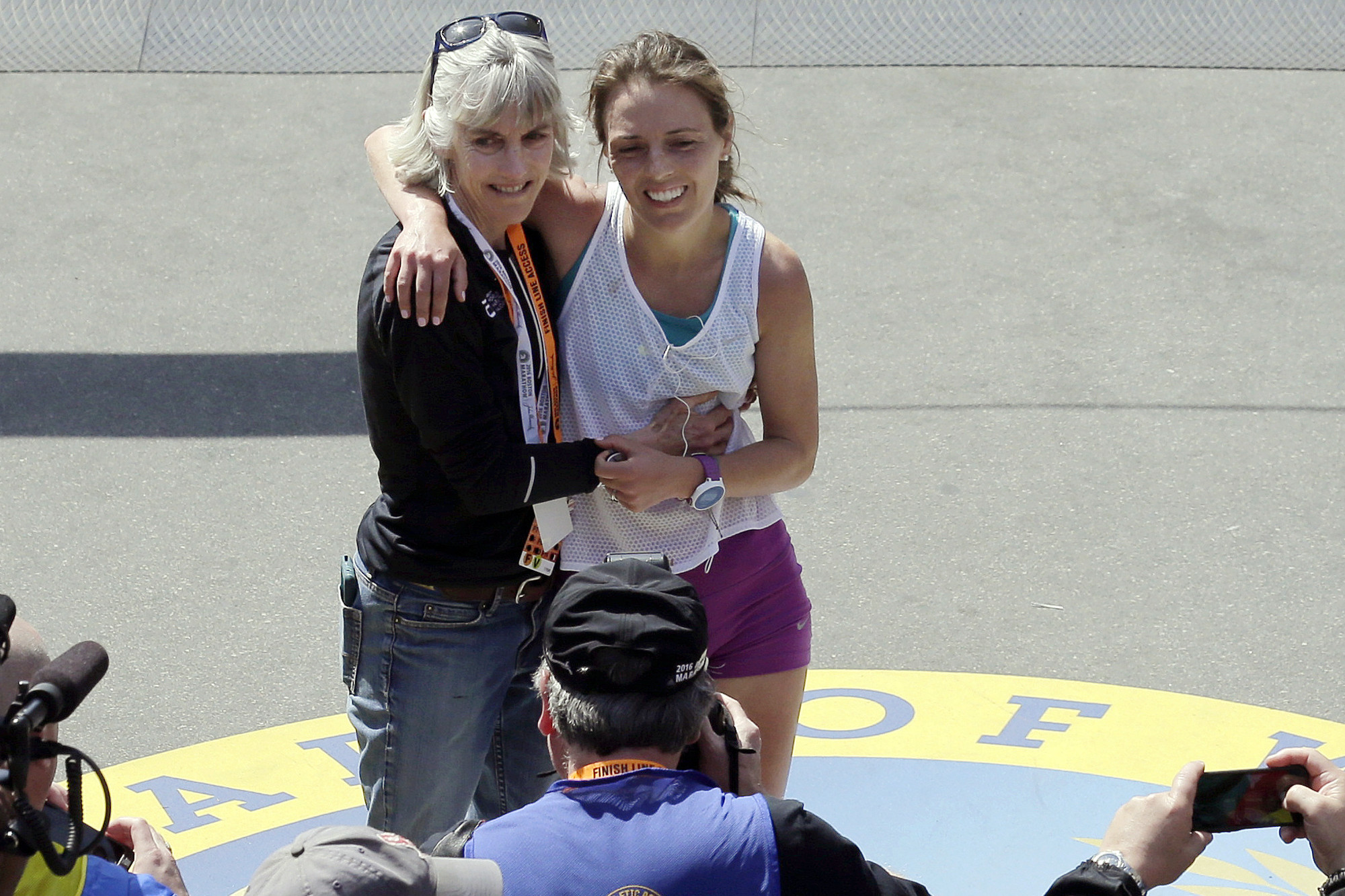
The effort not only enabled the 61-year-old Samuelson to place first in her age group (women 60-64) and 249th among all the women in the 30,000-runner field, but she also finished just 28 minutes and 45 seconds behind the 2:35:15 she ran to win Boston in her first-ever attempt at the distance as a college student four decades earlier.
“I did and I’m really happy about it,” Samuelson said during a postrace interview near the finish line with WBZ-TV.
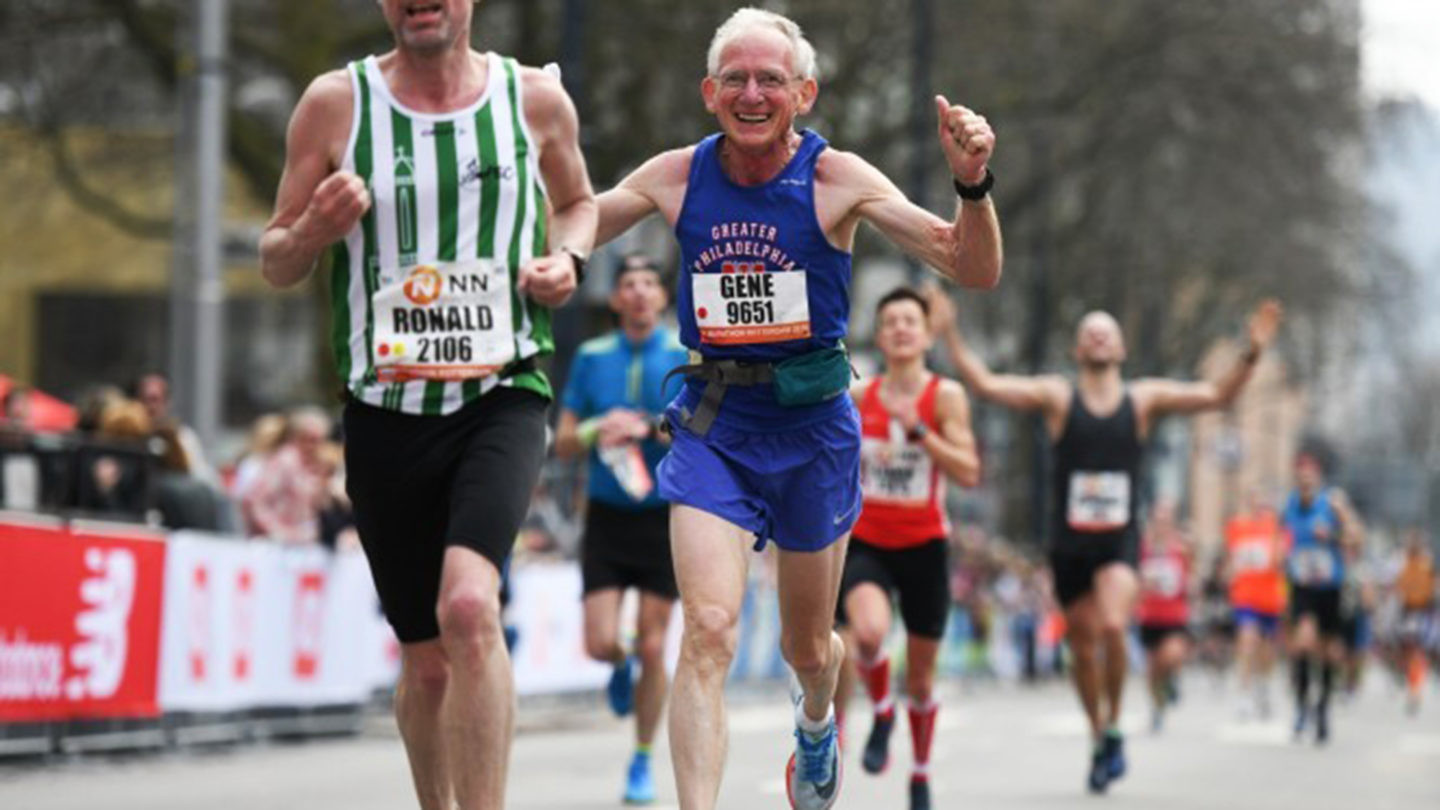
“To have our daughter in this race with me meant a great deal to me. She’s as passionate about the sport as I am, and to be out there with everybody cheering us on and the weather backing off to maybe coming on a little too warm, I can’t complain,” she said.
On the men's side: 71-year-old Gene Dykes of Bala Cynwyd broke his own age-group record on Monday, posting the fastest course time for a 70-to-74-year-old at 2 hours, 58 minutes, 50 seconds.
Dykes set the previous course record for that age group in 2018 at age 70, posting a time of 3:16 in driving rain.
Login to leave a comment
Boston Marathon
Among the nation’s oldest athletic clubs, the B.A.A. was established in 1887, and, in 1896, more than half of the U.S. Olympic Team at the first modern games was composed of B.A.A. club members. The Olympic Games provided the inspiration for the first Boston Marathon, which culminated the B.A.A. Games on April 19, 1897. John J. McDermott emerged from a...
more...Gene Dykes has an insane racing schedule for this year from 5k to 218 milles
Gene Dykes, the 70-year-old from Philadelphia whose marathon world record attempt ended in disappointment when he realized the event he chose (the Jacksonville Marathon in Florida) was not USATF-sanctioned has posted his chosen races for 2019 on his Facebook page–all 34 of them. (His 2:54:23 on a certified course is the fastest ever run by someone 70 plus.)
Dykes is as prolific a racer as 2018 Boston Marathon champion Yuki Kawauchi. Here’s what he has lined up for this year: 34 races, consisting of five marathons (including Boston, Big Sur, New York and Philadelphia), 13 ultras (10 of them on the trails, and including no fewer than four 100-milers and a 24-hour track race), and 16 shorter races.
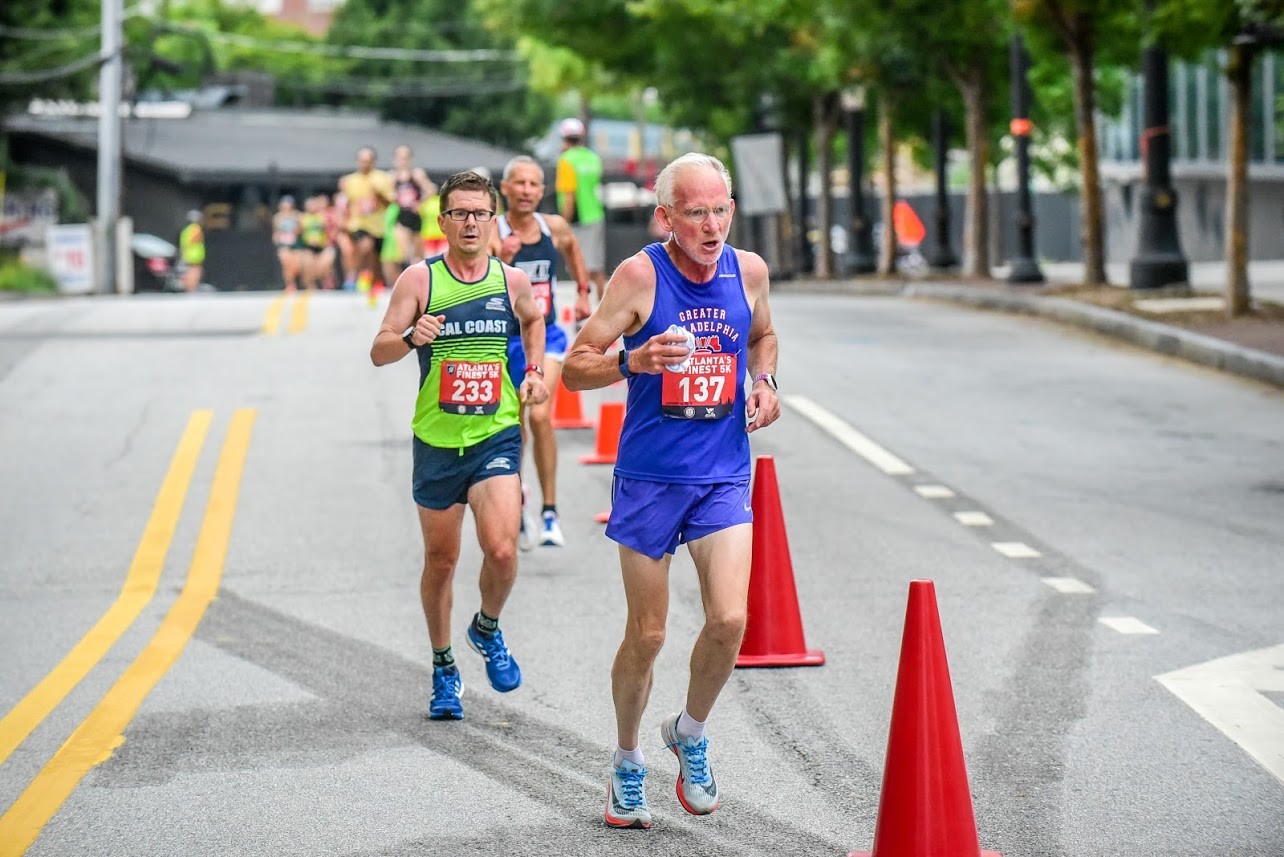
What does not appear on the schedule is another stab at the record he thought he’d bagged in Jacksonville. Though Dykes told us in December that he was planning another attempt at Ed Whitlock’s M70 record at either the Houston Marathon or the Louisiana Marathon (both are January 20), he has now said that’s off, partly because he’s recovering from a fall at the Wild Azalea 50-miler in Louisiana January 5.
Gene wrote on his Strava account, "Trail was particularly treacherous this year. Wet, roots covered in fallen leaves. I went down hard more than a dozen times. I banged up my knee pretty badly at the 30 mile mark but I was able to finish off the next 20 miles.
"I couldn't walk that evening or the next day. Often wondered if I'd ever run again. It's a week later now, and the swelling has mostly subsided."
He did post on Monday that he is feeling just fine now. He was able to run 8.5 miles January 15 at 7:49/mile pace. His next race on his schedule is the Chilly Cheeks 11k trail race January 20.
Login to leave a comment
A new running podcast is going to start up January 10 from Strava
Strava is starting another running podcast beginning January 10. The fitness tracking app is about to unveil a new podcast entitled “Athletes Unfiltered,” for the runners and cyclists who use it.
It will be hosted by The North Face-sponsored ultrarunner Hillary Allen and feature interviews with extraordinary athletes and athletes in extraordinary circumstances.
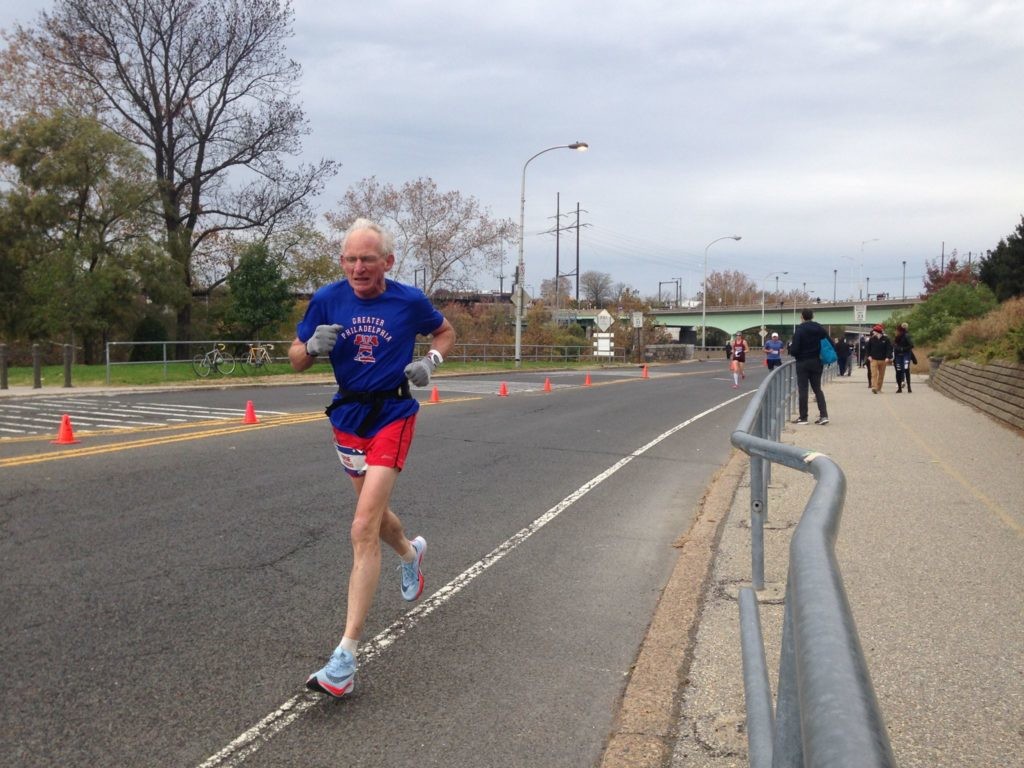
One of the first episodes will feature an interview with Gene Dykes (photo), who recently broke the late Canadian marathoner Ed Whitlock‘s WMA M70 marathon record with his 2:54:23 performance in Jacksonville, Florida.
Strava posted this on their website, “Athletes Unfiltered features normal athletes. They're good, inspiring people, daring enough to share their journey day after day, whether that's breaking a marathon PR or cutting a run short to desperately search for the nearest toilet.”
Login to leave a comment
The marathon that 70-year-old Gene Dykes ran 2:54:23 was not sanctioned by the USATF and his world record will not be accepted
70-year-old Gene Dykes clocked 2:54:23 at the Jackson Marathon but it is not going to be accepted as an official world Record because the race was not sanctioned by the USATF. Gene posted this on Facebook.
“Before running the Jacksonville Marathon, I reached out to the race director for assurance that it was a suitable venue for setting a world record, and I received the response that "you should have a good shot at the record".
“I assumed that he was correct, but I was remiss in not doing my own homework. It appears that, although the Jacksonville Marathon (course) is certified by the USATF, the race was not sanctioned by the USATF, and both must be valid for recognition of records by USATF/IAAF.”
Many races do not pay the fee to be sanctioned by the USATF because they do not see the benefit. The larger races with elite runners have to be sanctioned and they do pay the fee.
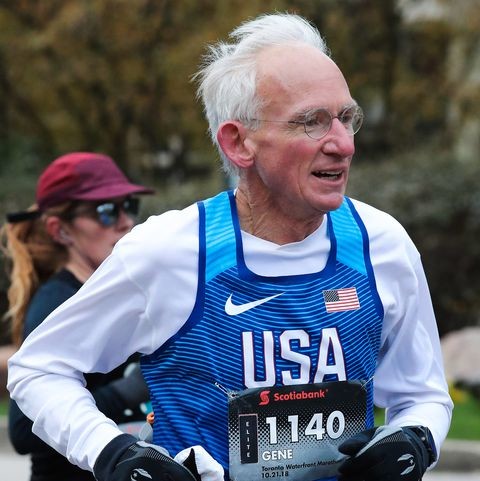
A race of 30,000 plus runners pay $15,300 to the USATF. A smaller race of 3000 pay $1460.
These fees have nothing to do with the course being certified. Most races know the importance of having their course certified. It appears in this case, Jacksonville paid to have their course certified but not the sanctioned fee.
This would have gone completely unnoticed and maybe the race Director did not realize Gene Dykes was going to break Ed Whitlock world record.
But Gene did and now it is not going to be accepted as an official record because this fee was not paid. Maybe in a case like this the fee could not be paid after the fact?
“Gene Dykes deserves the record,” says Bob Anderson “and there should be something that can be done to make this right. If it is just about money, we can pay that.”
Obtaining a USATF sanction involves filling out a sanction agreement to form a relationship between the sanctioned event and USATF. Basically, it means that an event has agreed to follow applicable USATF rules and will be afforded the benefits like insurance and other things as outlined on their site.
Gene continued on FB. “Thank you all so much for the nice things posted about my race. I am still proud of what I've accomplished - it just looks like it's not going to be "official". That said, I still have four more years to do it right, and, who knows, that might happen sooner than you think!”
”Let’s not give up on what you already did Gene. You ran 26.2 miles in 2:54:23 and it should be accepted as the official world record,” says MBR Bob Anderson. “This time is too amazing to ignore.”
by Bob Anderson
Login to leave a comment
Ed Whitlock’s world 70 plus marathon record has been broken by Gene Dykes
Many thought Ed Whitlock’s 2:54:48 Marathon world Record for 70 plus was untouchable until Gene Dykes came on the scene this year.
The 70-year-old Gene Dykes, a retired computer programmer clocked 2:54:23 December 15 in Jacksonville, Florida. This breaks the world record for 70 plus by 25 seconds.
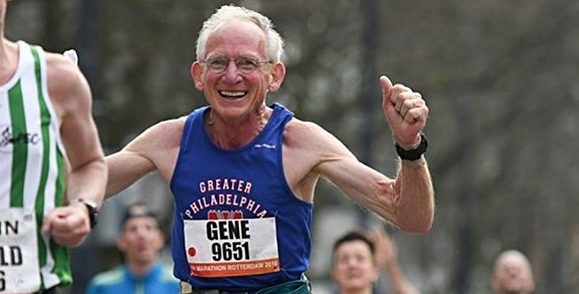
He was over a hour ahead of second place in his division and Gene ran the fastest time for men 55 plus. (Click on the link to read more about Gene in our exclusive two part profile done a couple of months back.)
Gene has only been racing serious a few years now. He had gone under three hours twice already this year and felt he was ready to break the world record by year end.
He decided to hire a coach recently and ever since then Gene has been winning and setting records from 1500m to 200 miles.
Unlike a lot of marathoners he also believes in running races up to 200 miles. Another key element he says is to make sure his weight is just right. It is hard because he loves to eat.
Login to leave a comment
Gene Dykes is getting faster every year - My Best Runs Exclusive Profile Part Two
My Best Runs Exclusive Profile Part Two. Gene Dkyes is only the second man in history over the age of 70 to run a marathon under three hours. He has done it twice. He ran 2:58:28 at the Rotterdam Marathon and then he clocked 2:55:18 in Toronto Oct 21.
Only Ed Whitlock have run faster. Gene Dykes was born in 1948 in Canton, Ohio.
All of his PR's from 200 miles to 1500m (accept for the 5k) have been set in the last year. He has a B.A. in chemistry and a Ph.D. in biochemistry from Cornell University in 1978.
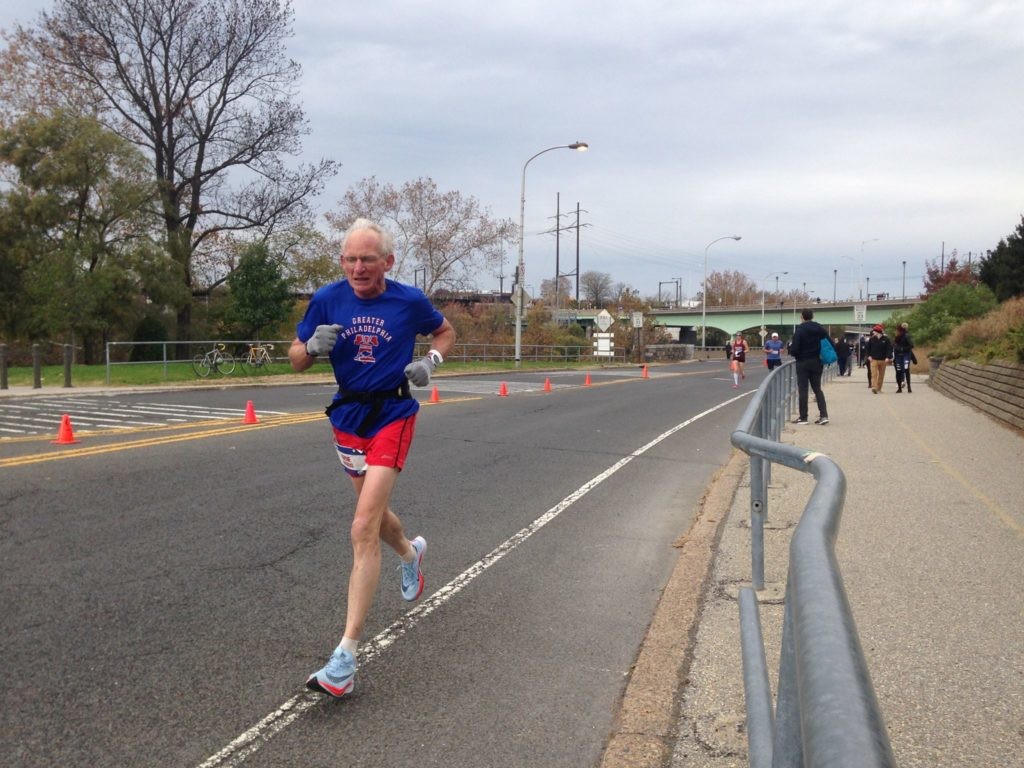
He has been married since 1982 and they both moved to Philadelphia from Ithaca, New York in 1993. After his Toronto Marathon we asked Gene about his race strategy.
"I’m a slave to my GPS watch while running a race," says Gene. "I nearly always run negative splits on any race shorter than a marathon, and I’m rarely more than a minute or two slower in the second half a marathon.
I consume far fewer calories before and during a race than most runners seem to." How about your weight? He thinks the "Two seconds per pound per mile is a rule that is awfully important. Keeping weight down for a major race is the hardest part of training.
It’s especially hard when I use the “See Food” diet. I’ll eat just about anything, especially when I see it."
In 2017 he was only one of 13 to complete the Triple Crown of 200's and he was the oldest finisher in each of them.
In August he ran the 206.5 mile Bigfoot 200, September was the 205.5 mile Tahoe 200 and October was the 238 mile Moab 240. In 2018 he won ten USATF National Championships from 1500m on the track to 100 mile on the trail. So what is ahead for Gene?
"Having turned 70 this year, I decided that I would spend the year chasing records and national championships and forego many of the big ultra races that I really love.
I still have one national age group record to topple which I expect to happen at the Philadelphia Half Marathon in November. Having come up just 34 seconds short of beating Ed Whitlock’s venerable M70 age group record in the marathon, you can be sure that I’m making plans on another attempt within a year.
I’m keeping those plans secret, though," Gene told My Best Runs. In the meantime Gene has signed on to the Run The World Challenge 3 team.
Gene is at the top of the 70 plus world and don't you get the feeling he is going to be setting a lot more records? (Photo taken at the USATF National Outdoor Championships in Spokane)
by Bob Anderson
Login to leave a comment
Gene Dykes is currently the world's top 70 Plus runner - My Best Runs Exclusive Profile Part One
Gene Dykes is the world's best runner in the world currently seventy plus. "One of my 'secret' training methods for marathons is to run a lot of ultras," Gene told My Best Runs in this exclusive profile.
"I’ll begin training for Boston in January, and to kick it off I’ll run a 50-miler in January and both a 100-miler and a 200-miler in February. During March I’ll convert that training base into marathon speed."
Sounds wild and unconventional but it has been working for 70-year-old Gene Dykes from Philadelphia..."It was thought by many of us that Canada's Ed Whitlock's records were way beyond reach," says lifelong runner and Runner's World and My Best Runs founder Bob Anderson.
"At age 73 Ed became the first 70 plus runner in the world to run the marathon under three hours." In 2004 73-year-old Ed Whitlock clocked an amazing 2:54:48 at the Scotiabank Tornonto Waterfront Marathon.
No one ever had run a marathon that fast 70 plus. The late Ed Whitlock was in a league of his own until now. At the same marathon this year on October 21, 70-year-old Gene Dykes clocked 2:55:18.
My Best Runs wanted to find out more about this new super star, a runner who has set PR's at all distances (other than the 5k) over the last year from 1500m to 200 miles. How did Gene discover running?
"It’s probably more accurate to say that I discovered running twice," said Gene. "The first time, when I was about fourteen, it just kind of popped into my head to run three miles to the house of a girl I was interested in. After about a mile and a half, I had to walk for a bit. I was really disgusted with myself, and I swore I would never again resort to walking on a run.
"I actually kept this promise, until I started doing trail races, of course, where there are lots of good reasons to walk now and then."
After this he ran track in high school for a couple of years. "In my senior year I thought I was pretty good when I dominated the 2-mile run in my county. That notion was quickly dispelled when I ran track in college and I was totally blown away by the competition. For the next four decades, I would stay in jogging shape much of the time, but it never occurred to me to race because it had been firmly impressed upon me that I wasn’t a very good runner," Gene remembers.
He rediscovered running in 2004 at the age of 56 after a six year layoff because of a torn hamstring... "A golfing acquaintance told me he had a running group and that I should join him sometime. A classic case of falling in with a bad crowd. They encouraged me to run some races with them, and discovering that I wasn’t half bad, my running career was born," Gene told us.
So how important is running to Gene? "It started out as an activity I looked forward to on weekends, and it slowly took over as my main hobby. Probably starting around 2011 when I ran my first adventure race and started training for Comrades (56-mile race in South Africa) it became way more than just a hobby. While it will never quite reach the point of being 'all-consuming.' I suppose you would be forgiven for thinking that, considering that I’ll have done 38 races in 34 weekends this year."
The obvious next question was, tell us about your training. "For about nine years I just stumbled my way through training. I did lots of long, slow runs with occasional track workouts. I gradually improved, and I was having a lot of fun, but I was worried that my best days were behind me when I fell miserably short of a new marathon PR at the 2013 Toronto Marathon.
"Swallowing my pride and opening my wallet, I hired a coach. What a life changing decision that was! In just five months I went from a half decent runner with modest goals to a runner capable of competing at the highest levels. Training now consists of fewer miles, but harder workouts and fewer rest days," says Gene.
He has set PR's in the last 12 months from 200 miles down to the 1500m. He clocked 98 hours, 10 minutes 22 seconds for 200 miles, 23:41:22 for 100 miles, 1:26:34 for the half marathon and 5:17 for 1500m.
In 2018 he won ten USATF national championships. His 2:57:43 clocked at this year's Rotterdam Marathon was a world single age record until he bettered it in Toronto.
Gene says, "I’m particularly fond of having won championships at both track 1500 meters and trail 100 mile this year.” In part two Gene talks about his diet, going after more records, dealing with injuries and a lot more. Coming tomorrow October 29 on My Best Runs.
by Bob Anderson
Login to leave a comment
70-year-old Gene Dykes has been named USATF Athlete of the Week
Gene Dykes from Bala Cynwyd, Pennsylvania set an American masters 70-74 record in the marathon to earn USATF Athlete of the Week.
Dykes, 70, won the 70-74 age group in the WMA Marathon Championships at the Scotiabank Toronto Marathon, running 2:55:18 to take more than two minutes off his own American record. He was also only 30 seconds off the world 70-74 best, set by Canadian legend Ed Whitlock. Dykes and Whitlock are the only two men over 70 to have broken three hours in the marathon.
Gene wrote this on FB before the race, "On Sunday I will be running the Scotiabank Toronto Waterfront Marathon, and the big goal is to beat one of the most revered marathon records on the books - Ed Whitlock's M70-74 age group record of 2:54:48, which he ran in 2004 at the ripe old age of 73.
If all goes well, it will probably be a nail-biter. I've been training hard for about eight weeks and training has gone well."
Login to leave a comment
Gene Dykes is only the second person 70 plus to run a sub three hour marathon
Login to leave a comment


